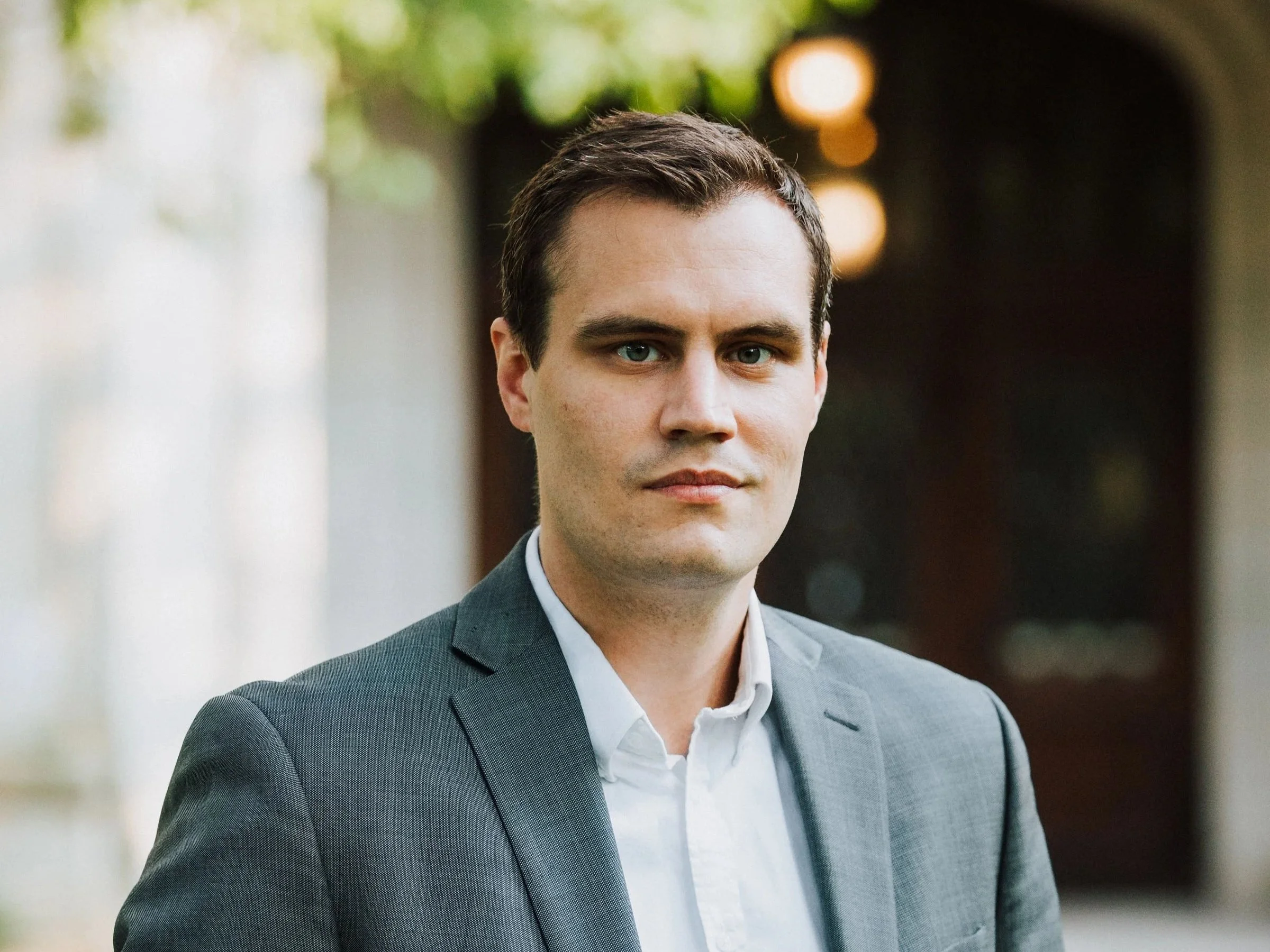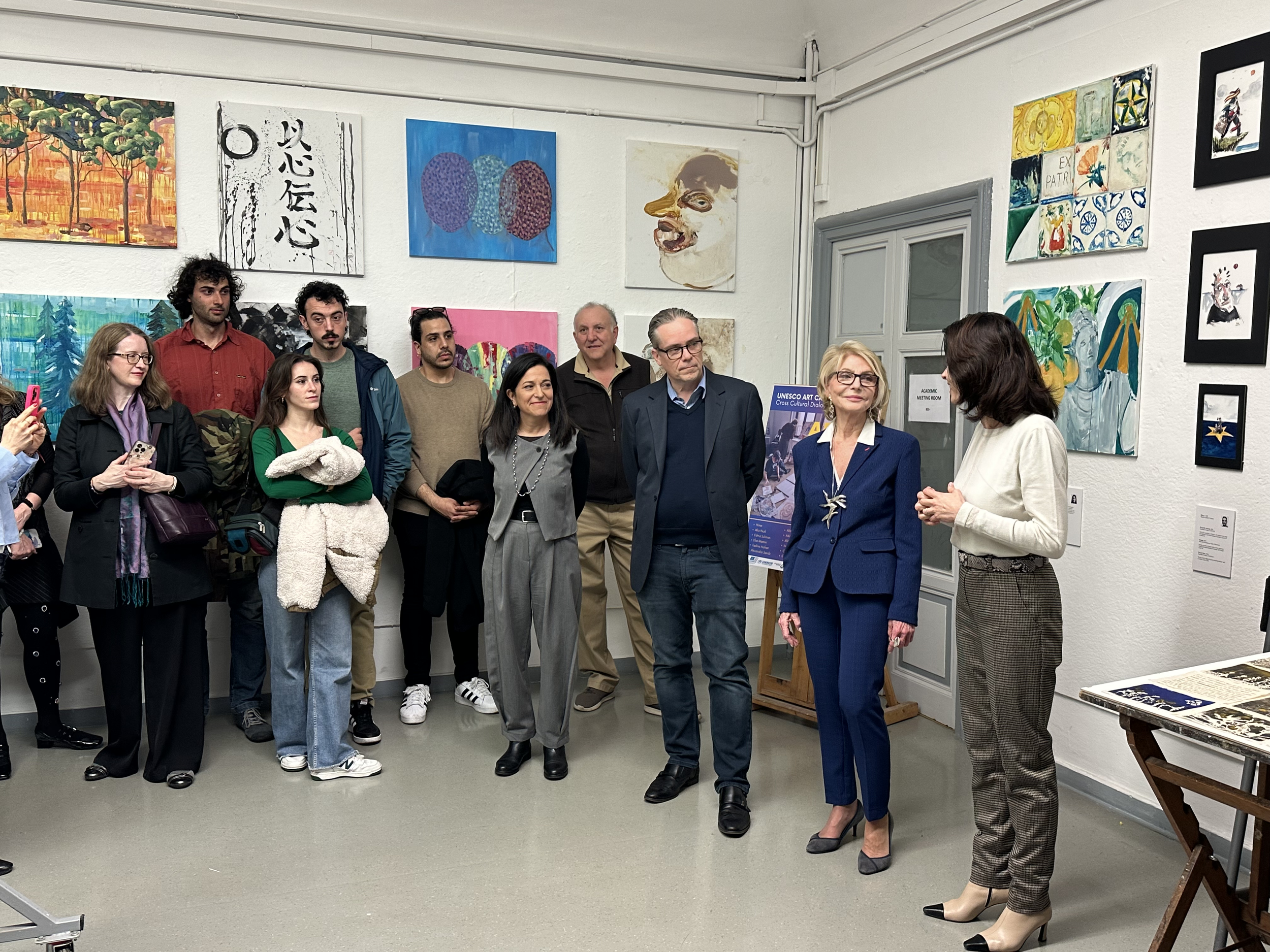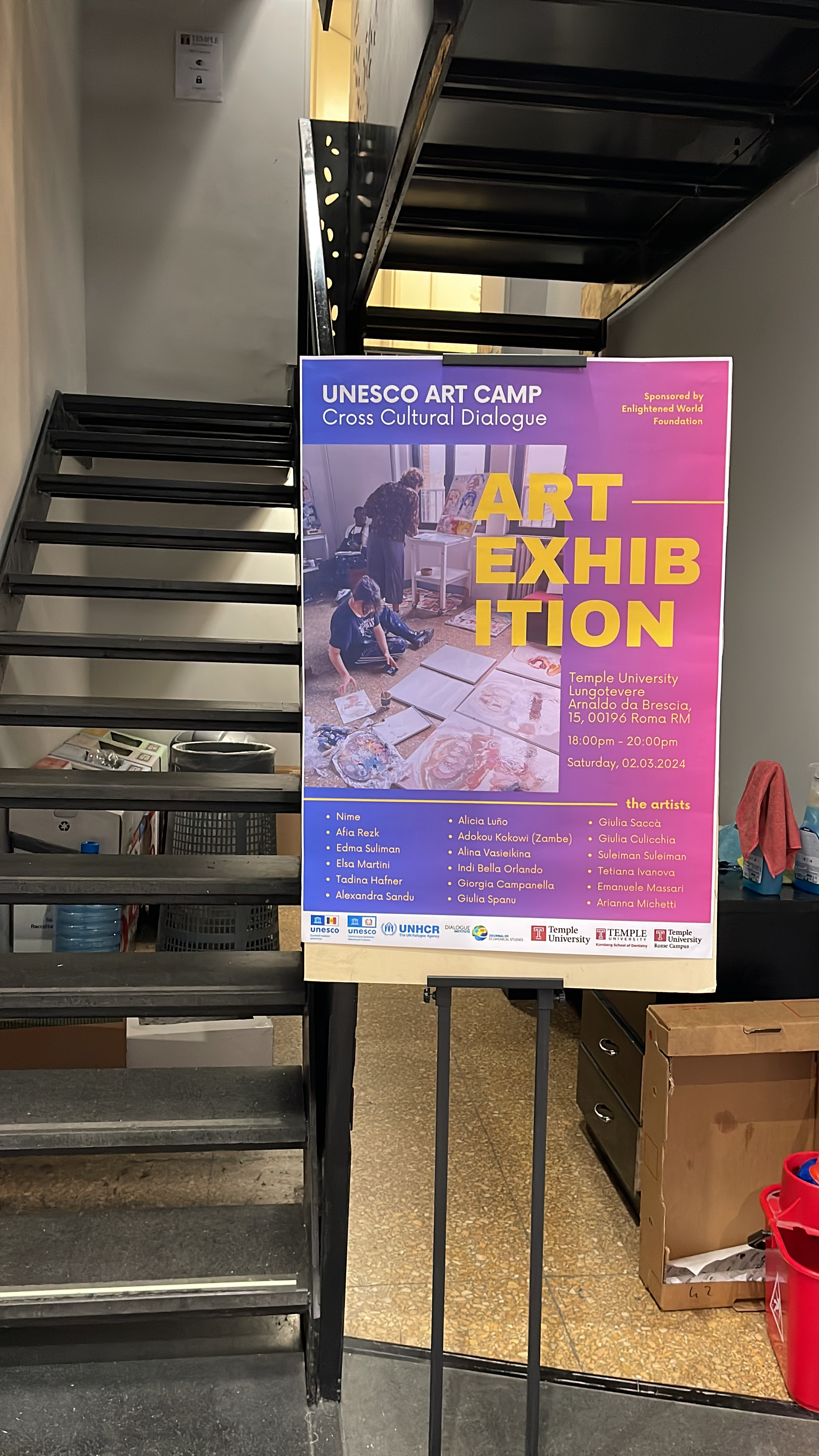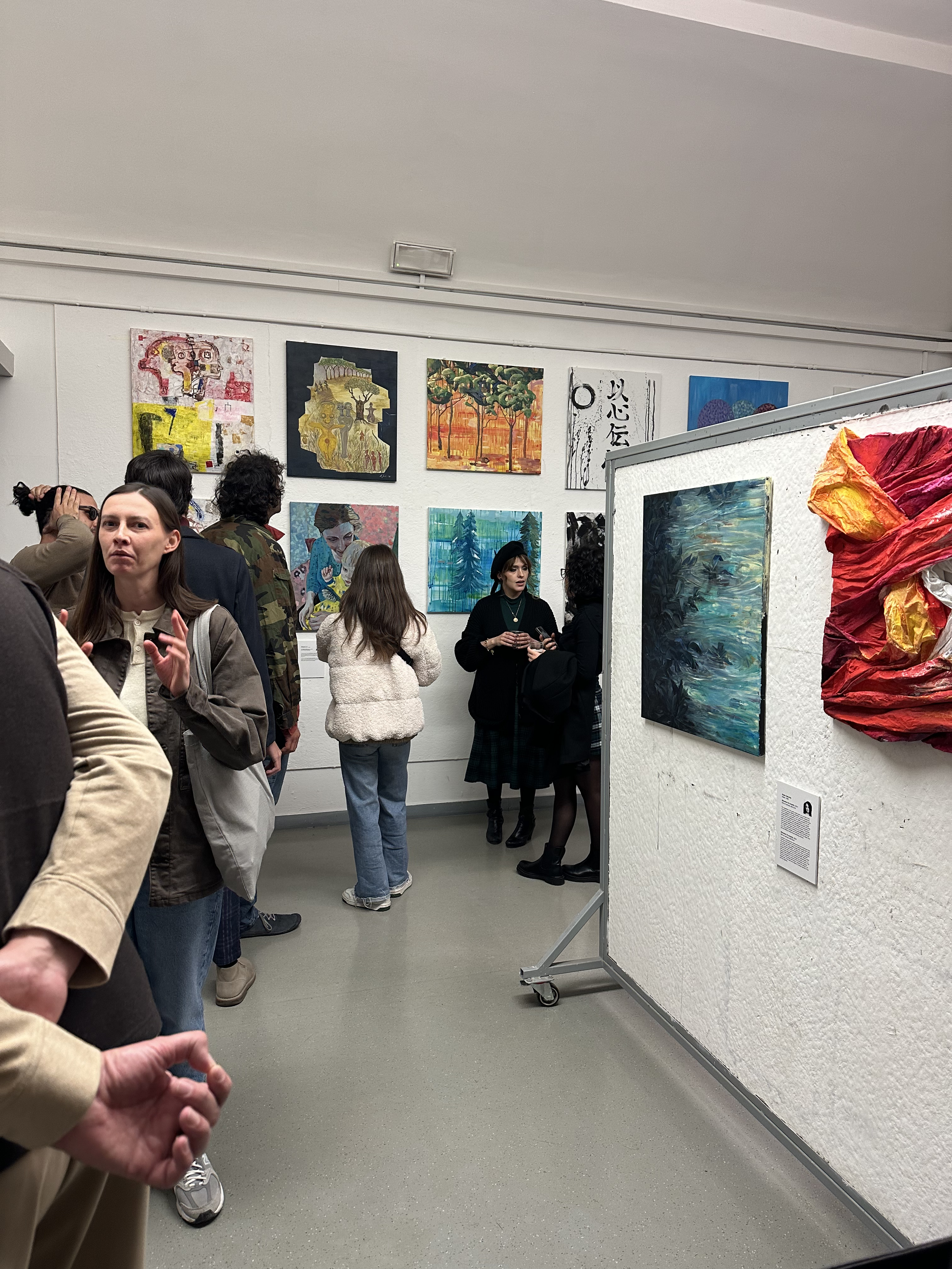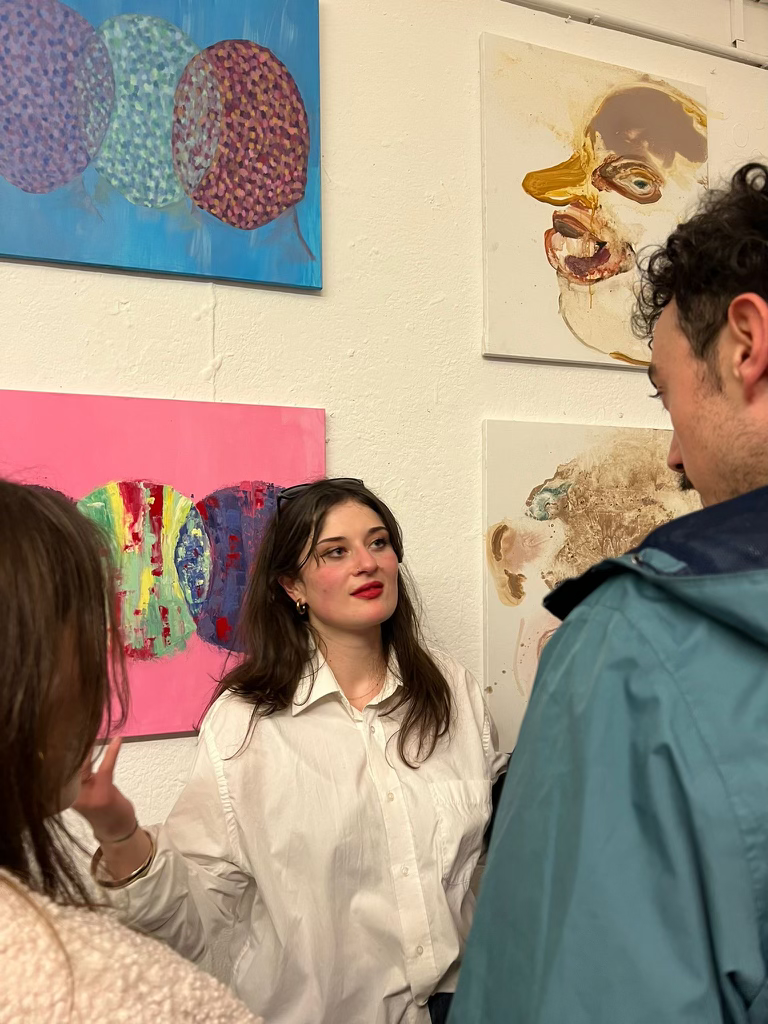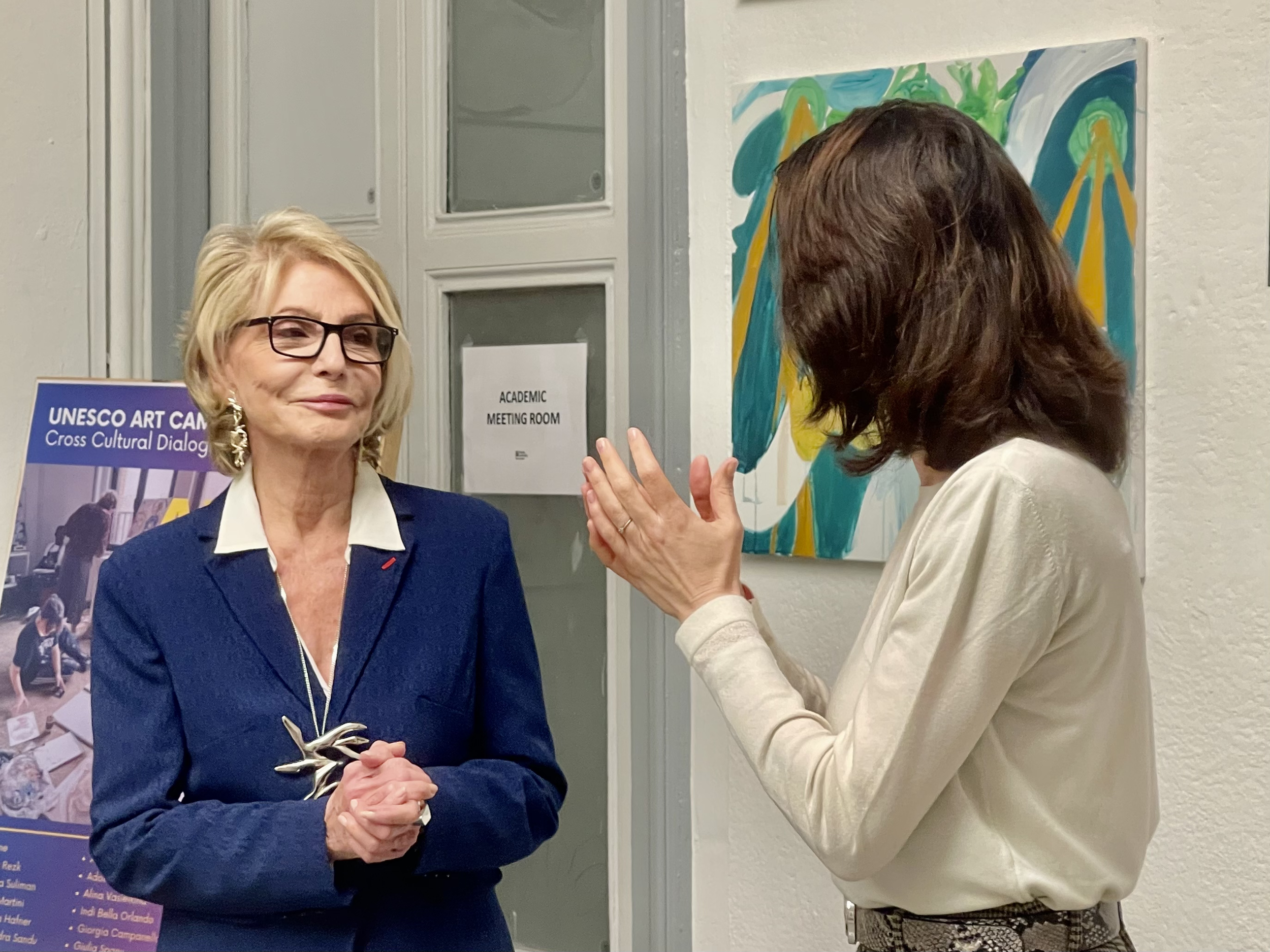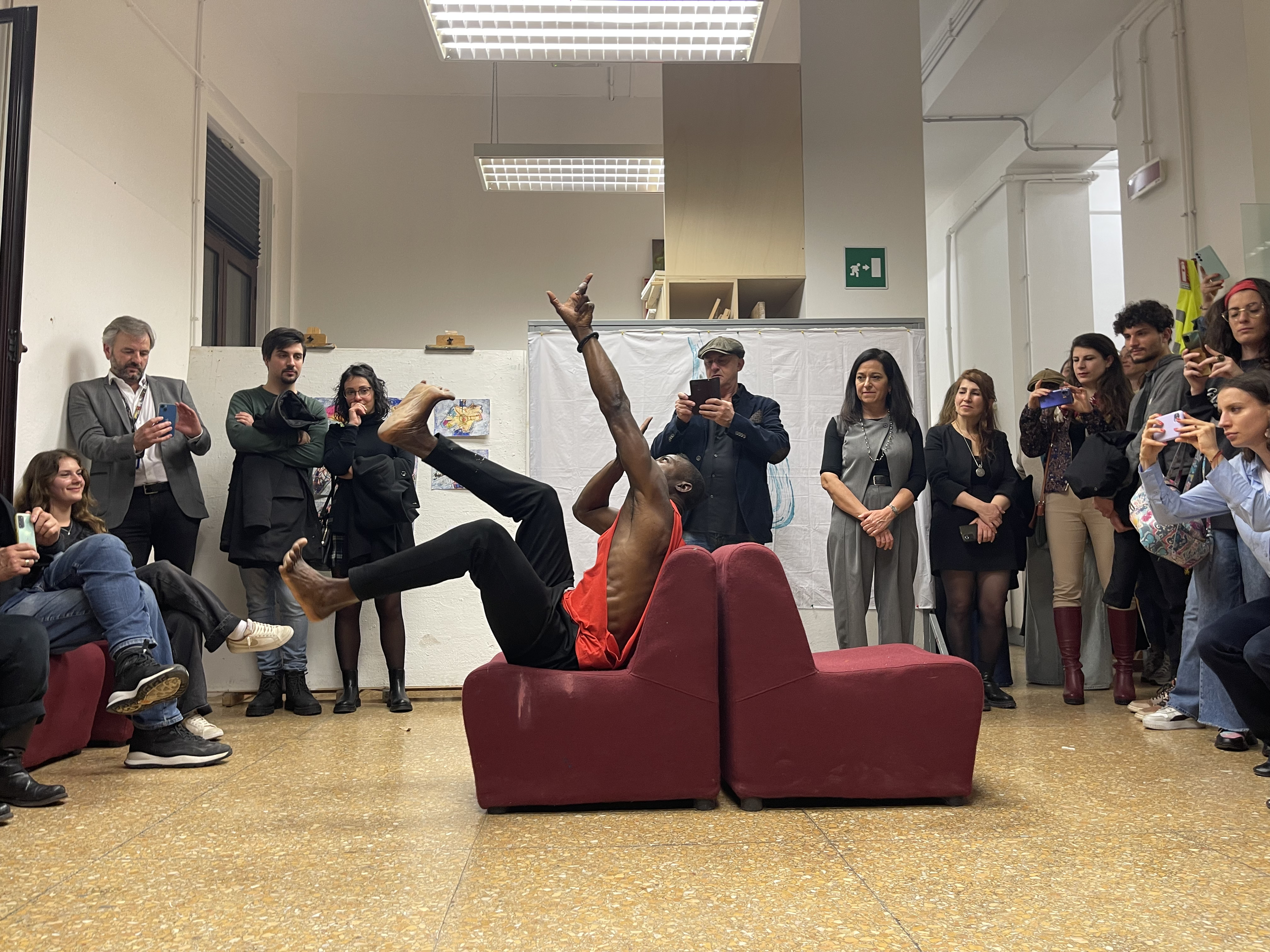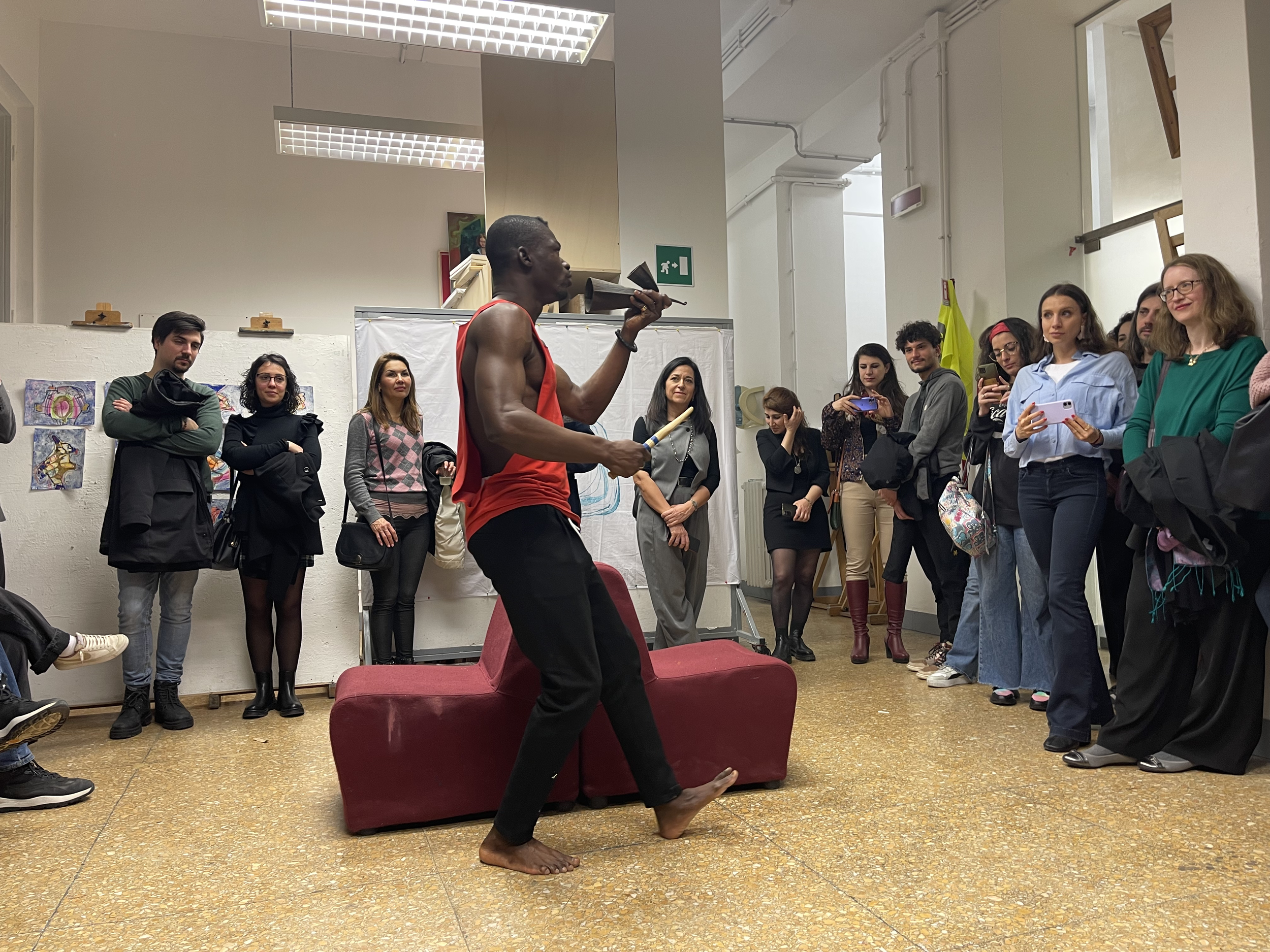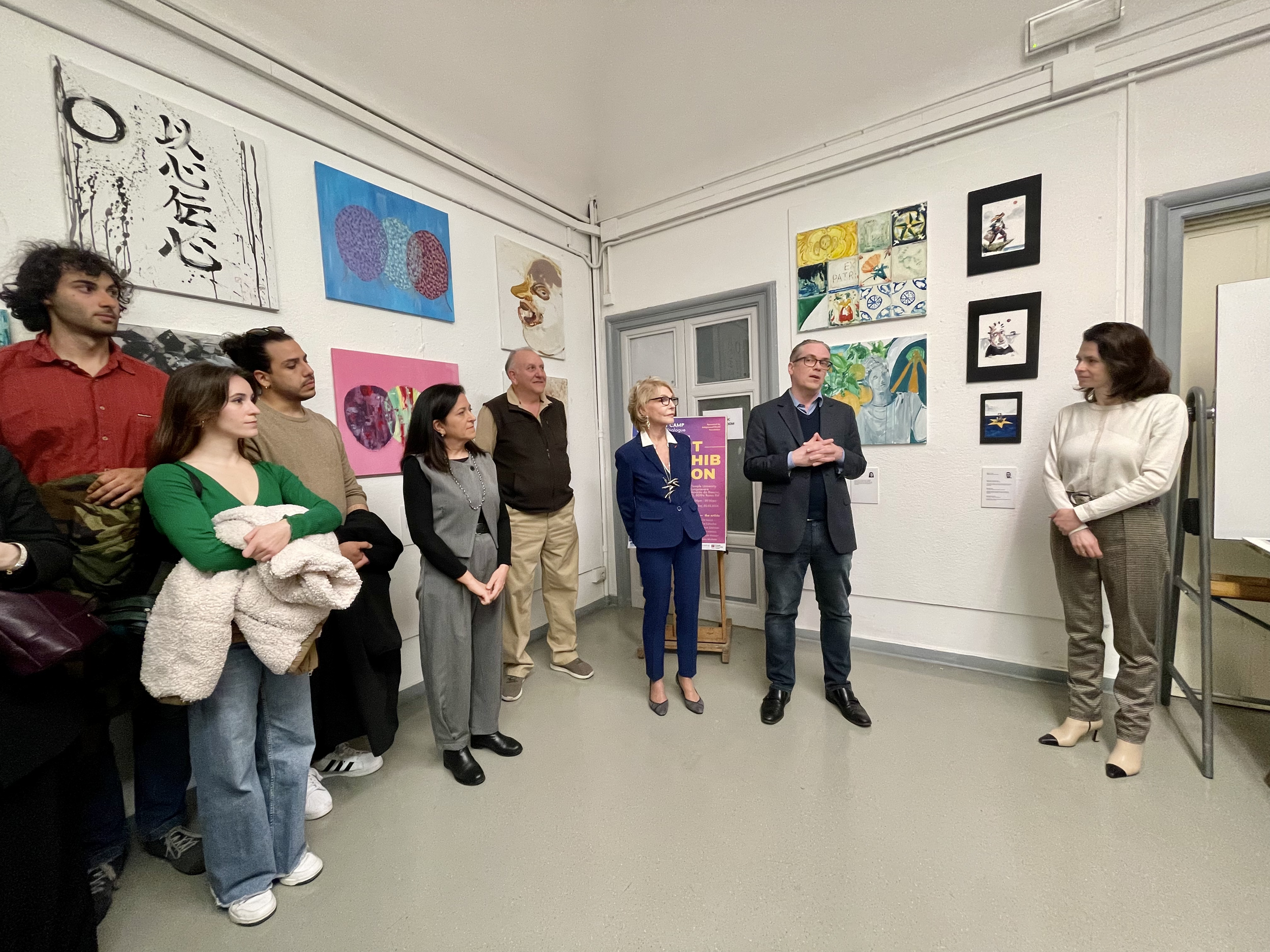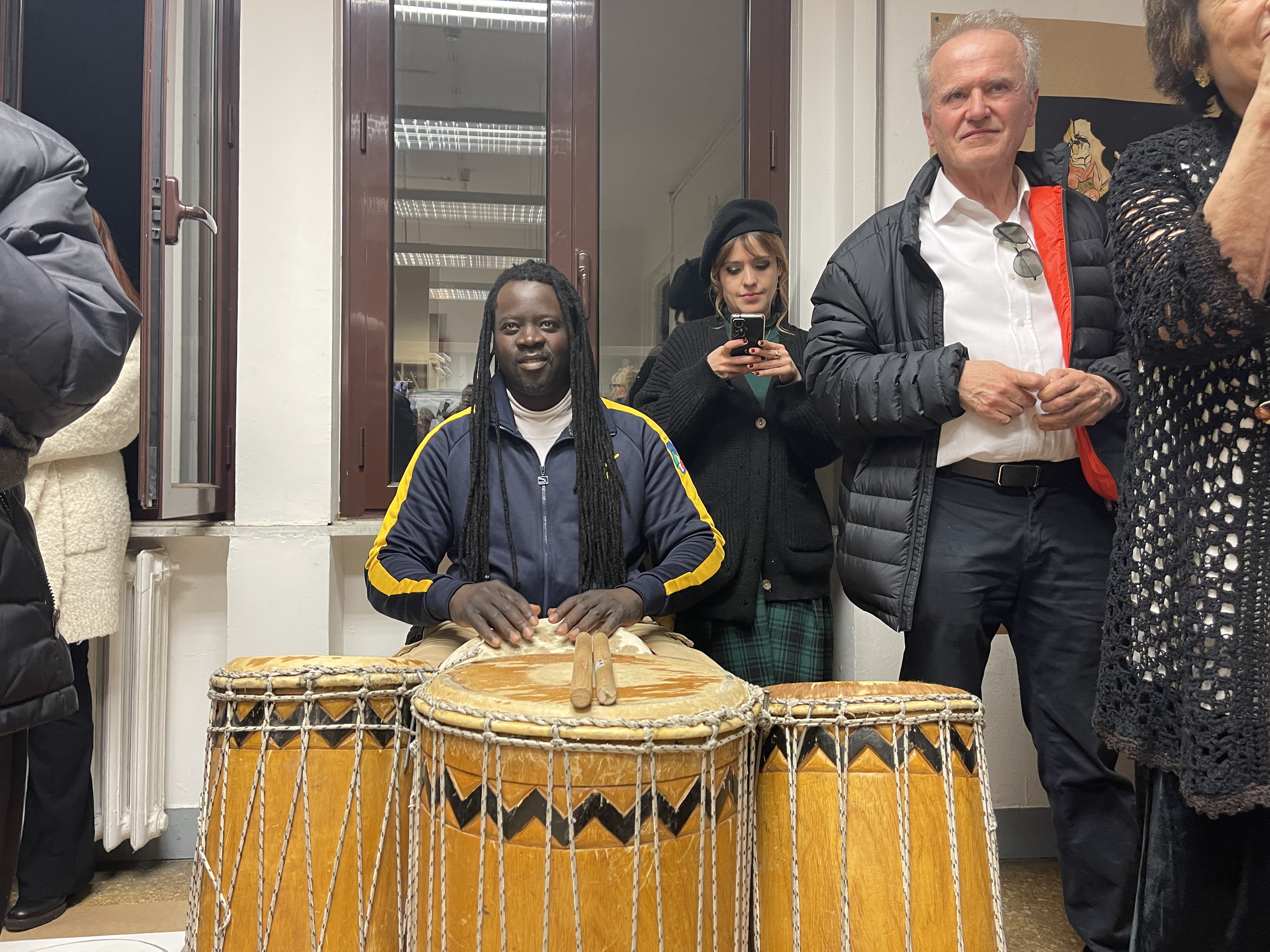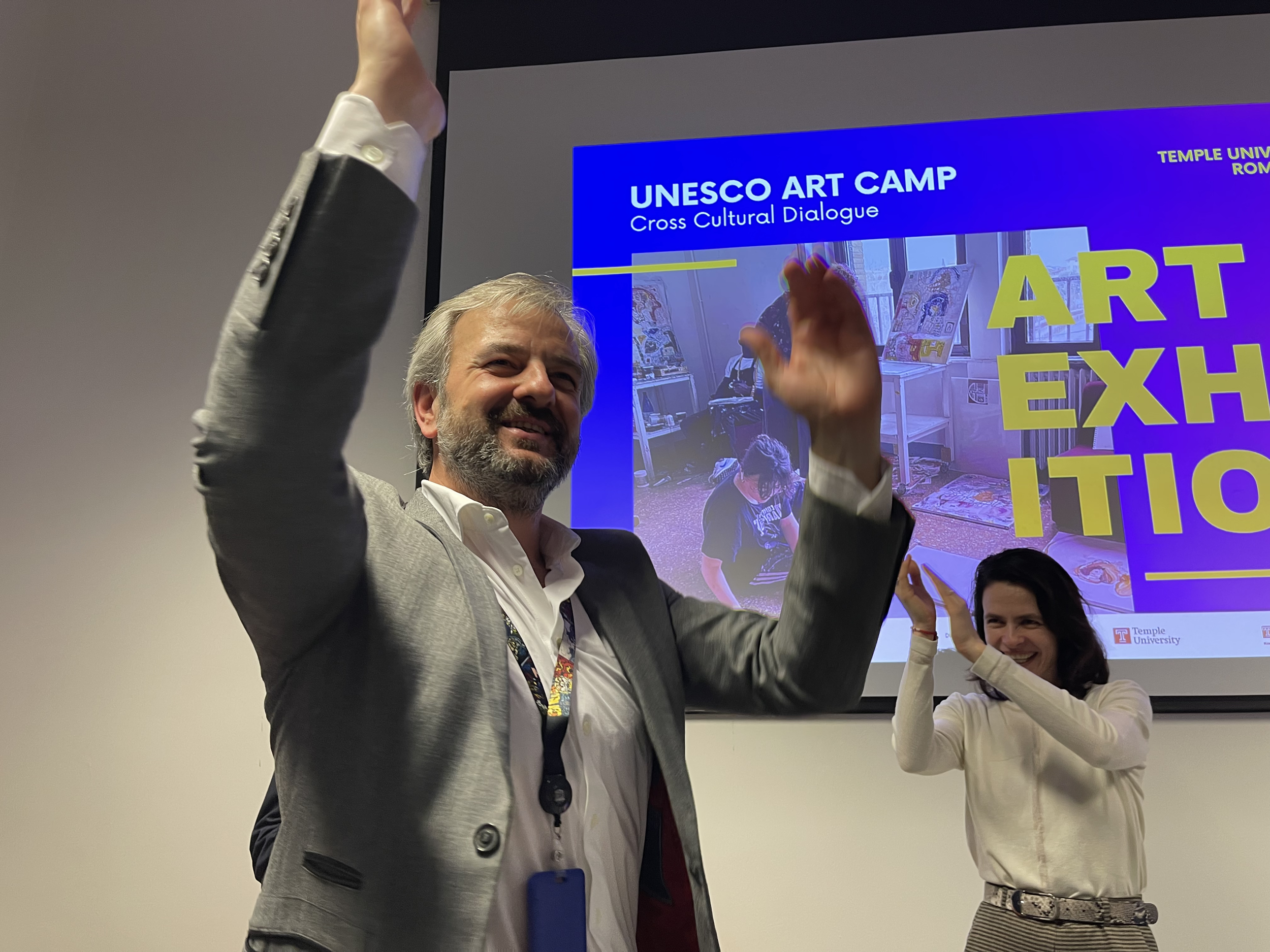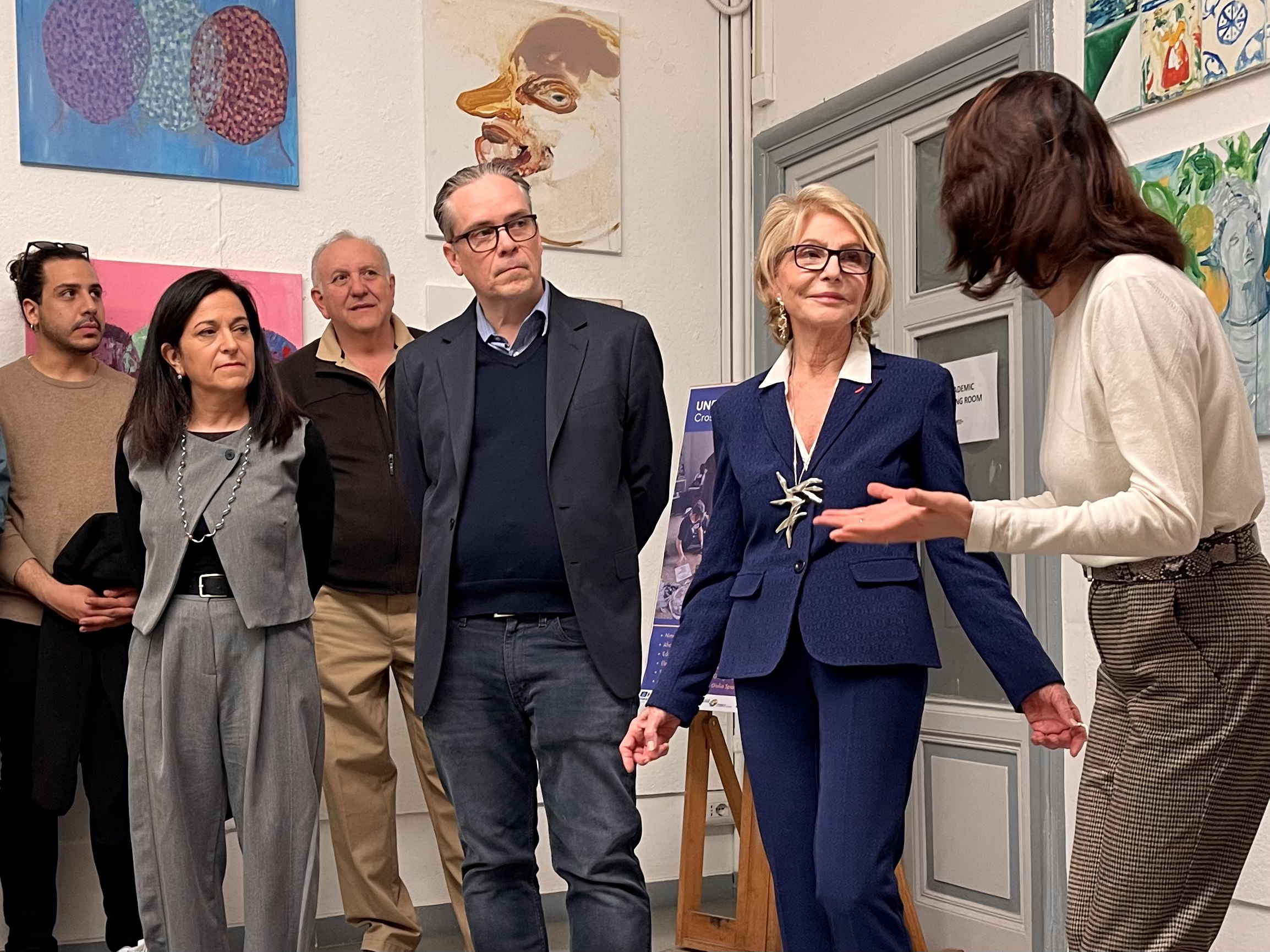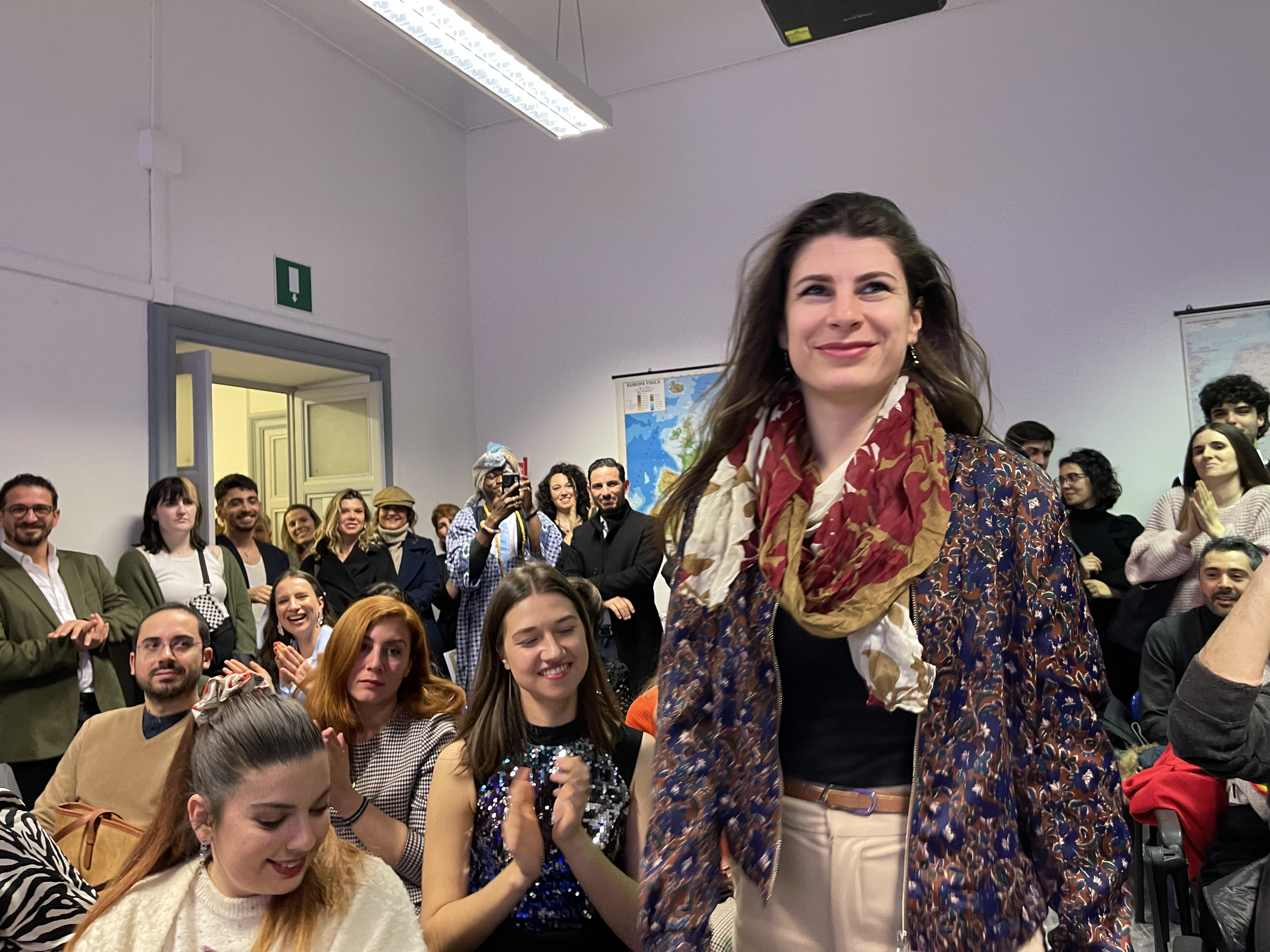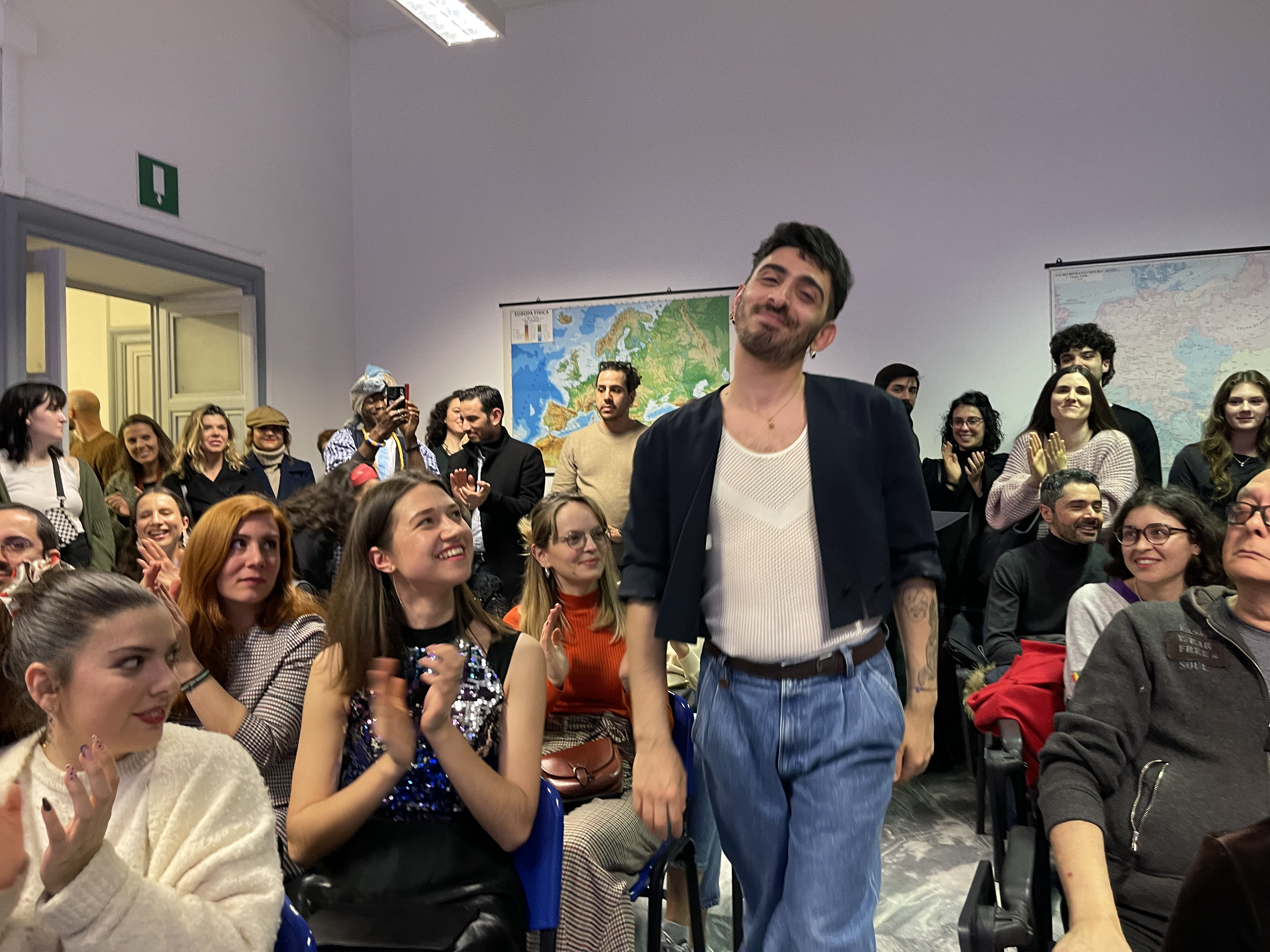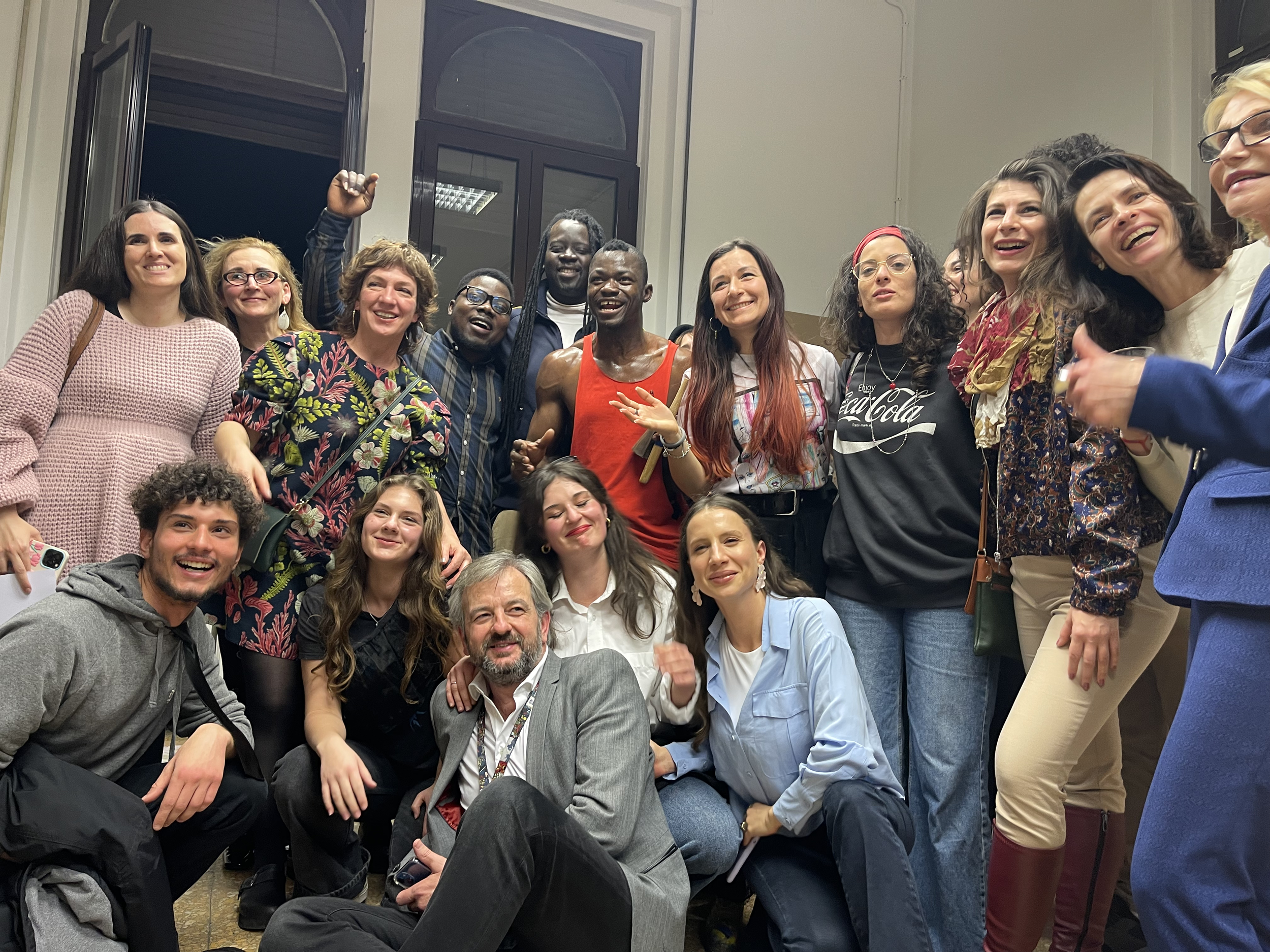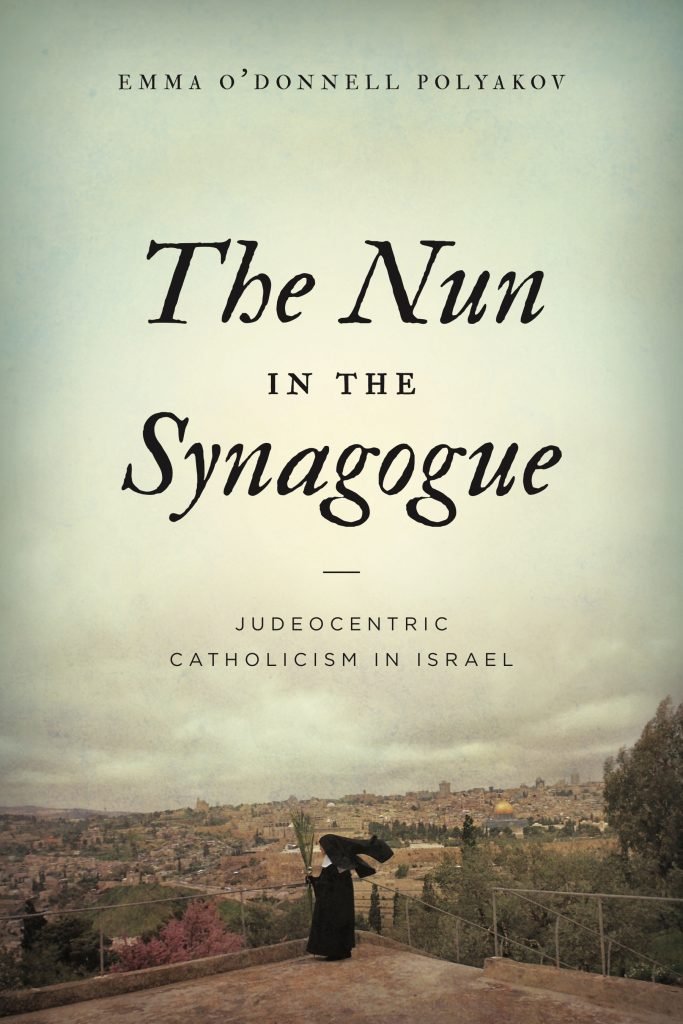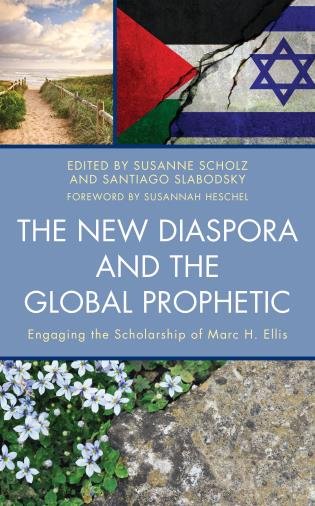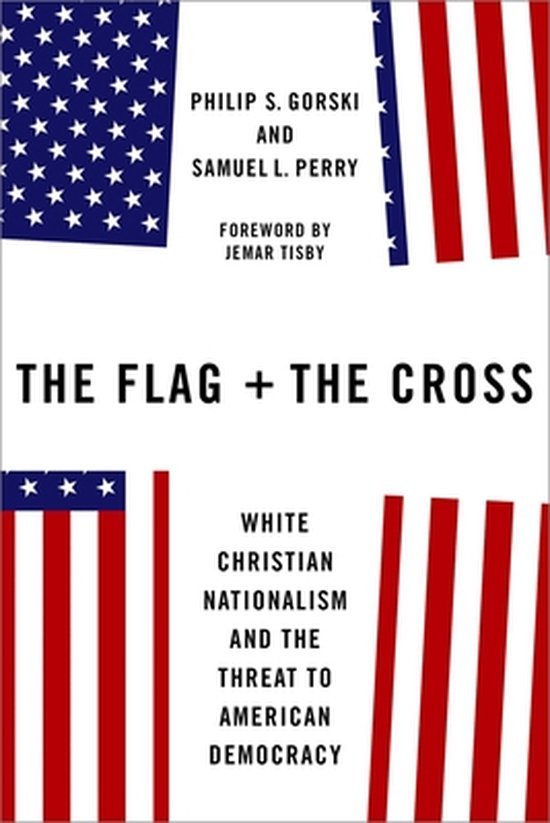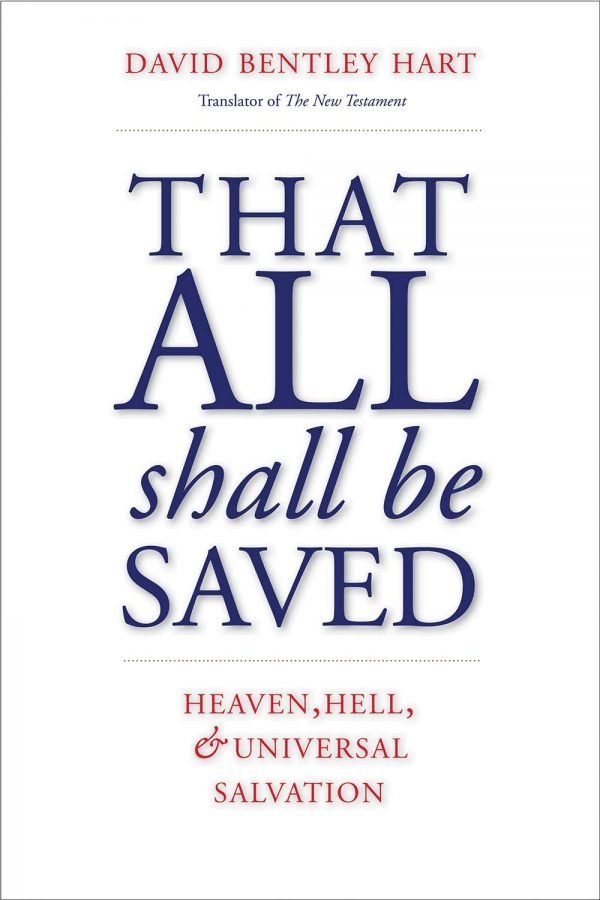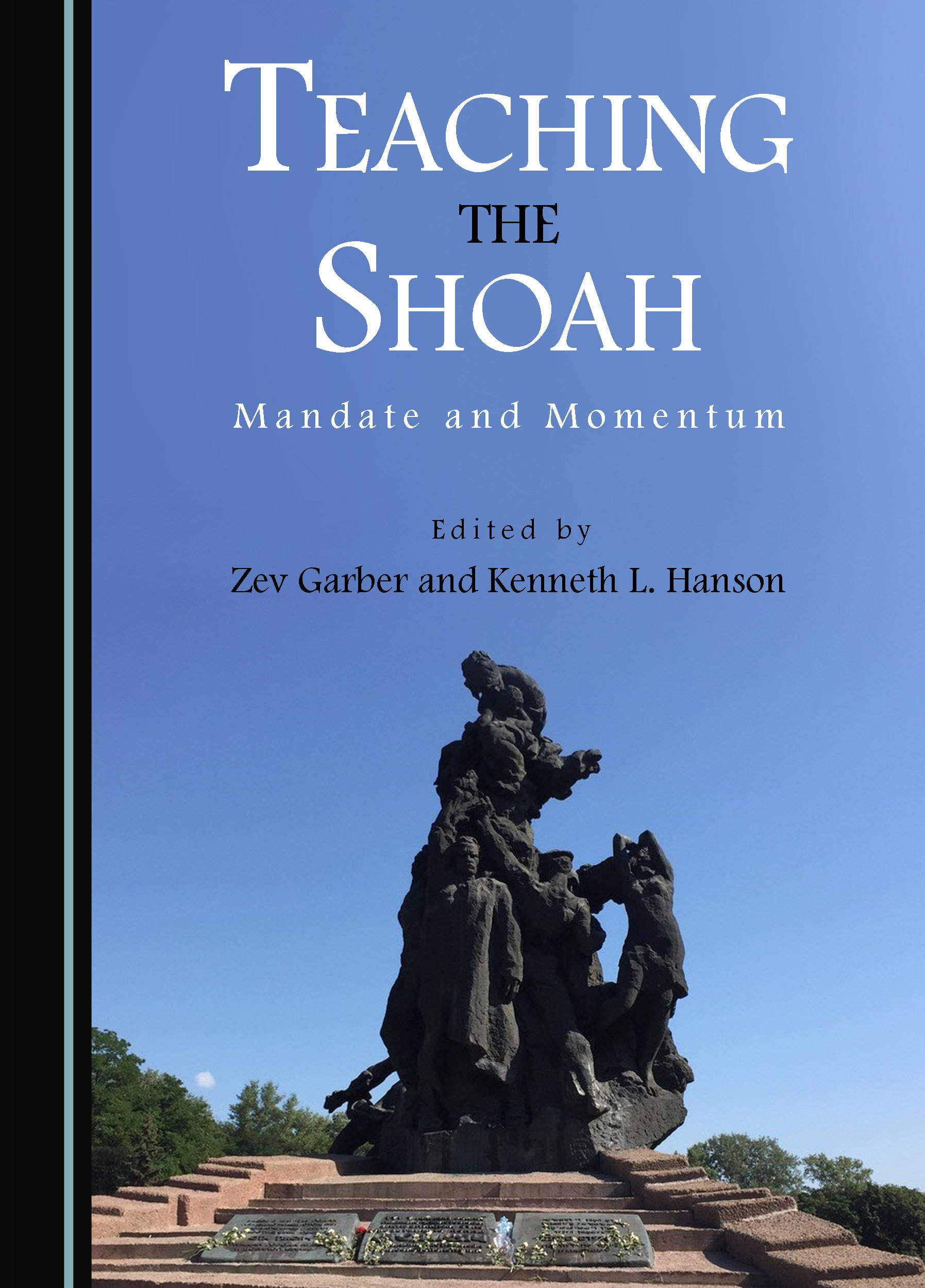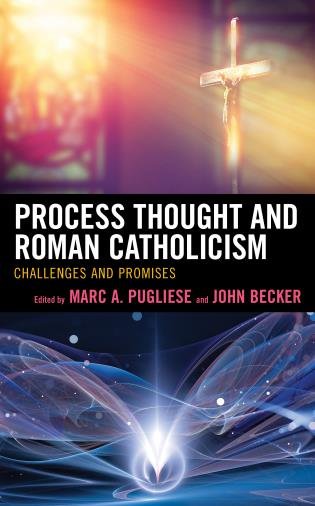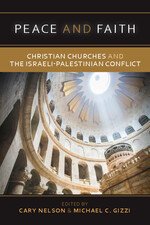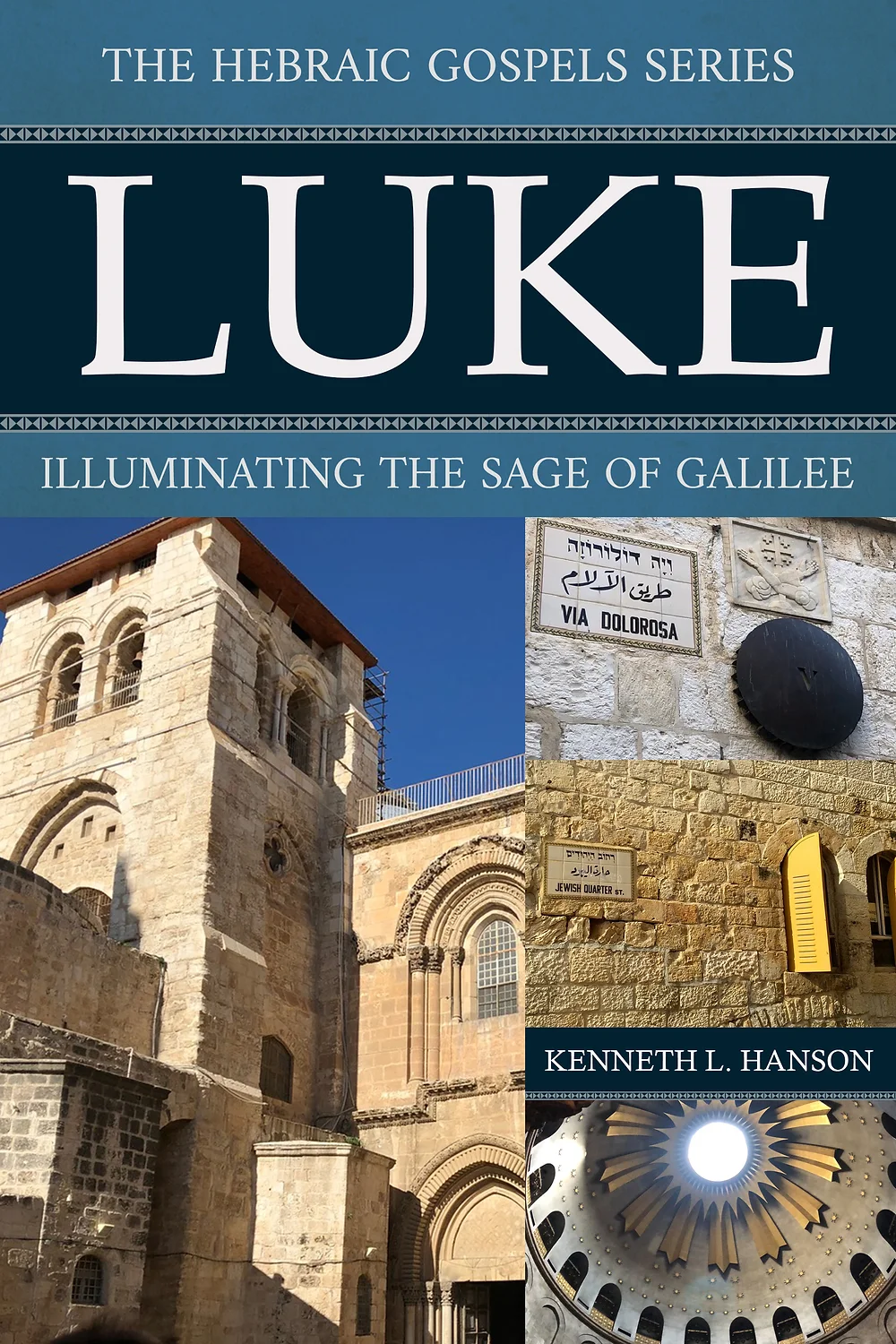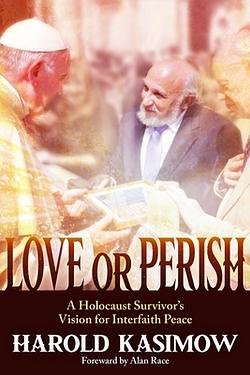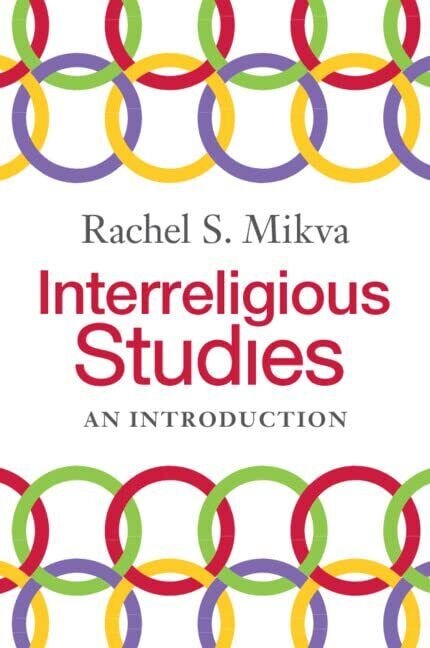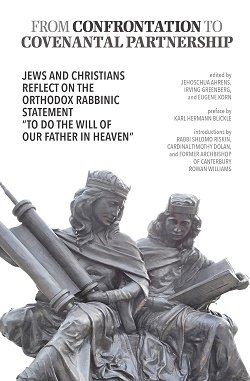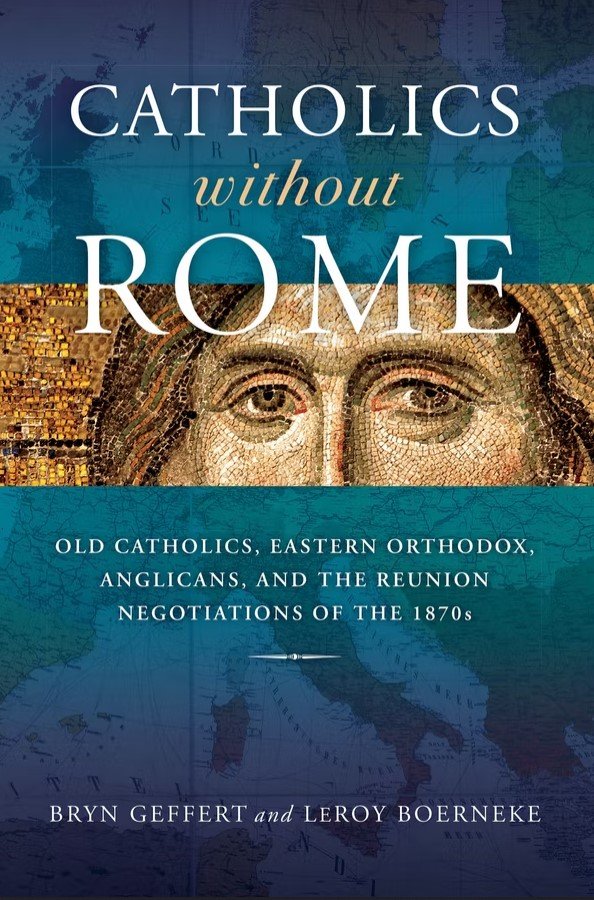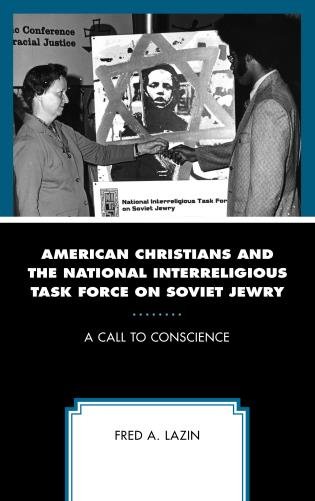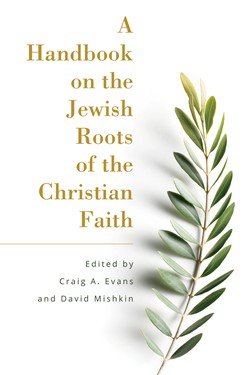Featured J.E.S. Author: Russell Johnson on The Next Word: Tutu and Bakhtin on Dialogical Disagreement
Issue 60.3 of the Journal of Ecumenical Studies is now available via Project Muse. The issue features articles on memory, truth and reconciliation.
For this issue, we highlight Russell Johnson’s essay “The Next Word: Tutu and Bakhtin on Dialogical Disagreement” which can be accessed HERE.
In two sentences, what is the main argument of your J.E.S. article?
Instead of trying to have “the last word,” we should strive to say “the next word”—to respond to others and invite them to respond to us. This dialogical approach is compatible with protest on matters of ethics, politics, and theology because it demands that everyone act responsibly and recognize their interdependence.
In bringing the work of Desmond Tutu and Mikhail Bakhtin into conversation with each other, you explicitly place both in a philosophical context which neither are popularly associated with. What were the challenges in examining these two thinkers outside of the fields to which they are usually assigned?
While Bakhtin insisted he was a philosopher, people think of him primarily as a literary theorist. This is because much of his philosophical work is grounded in the interpretation of novels. Likewise, Tutu is best known for his activism, and his theology of reconciliation is grounded in the situation in South Africa. Fittingly, they are both responsive thinkers—not building a system in isolation but taking inspiration from others and speaking to audiences. The biggest challenge for me was comparing their ideas without compromising the dialogical quality of their thinking.
In your discussion of Bakhtin, you briefly contrast his dialogism with Stalin's project, which "insists it knows the end of history and presumes to have 'the last word.'" How would you contrast Tutu and Bakhtin with Christian projects which see Christ's second coming as a similar moment of inevitable historical completion?
Though neither author says much about eschatology, their work reminds us that any end Christ brings about will only be an end to sin and not an end to our interactions with one another and with God. I see some similarities between their work and dynamic visions of the afterlife, like Gregory of Nyssa’s, in which people are always learning, always becoming more loving, always coming to appreciate more and more of God’s infinite goodness.
In some sense, God will have the last word. But just as God’s power is “made perfect in weakness,” we can expect that this ending will reconfigure how we imagine finality.
You insist on a few occasions that you are not advocating relativism. How have dialogue and relativism become associated, and what are the shortcomings of that association?
For a lot of people, “dialogue” names a way of interacting that is non-confrontational. Especially following the work of David Bohm, dialogue is seen as an open-ended process in which we refrain from trying to persuade one another or figuring out what’s right. It’s easy to slide from “every perspective has something to contribute” to “every perspective is equally true.” By contrast, Bakhtin and Tutu help us think about disagreeing dialogically, which means going beyond “you have your story and I have mine” and into collaborative, and sometimes confrontational, discernment. It is because we care about the truth that we listen to our opponents who might be able to shed light on facets of the situation that we had misunderstood. It is because we care about the truth that we insist on what we know, even if it makes people angry—as Rosa Luxemburg said, “The most revolutionary thing one can do is always to proclaim loudly what is happening.”
How did you get interested in the topic?
I first read Tutu when I was studying nonviolent direct action. As with so many practitioners of nonviolence, Tutu’s ethics is not simply about obeying the command to love your enemies, but encompasses a comprehensive vision of humanity, communication, and social change. While this vision helps us name the evils of apartheid (sadly, something that is still necessary), it can also help us navigate disagreements morally and effectively. That’s something I’ve been interested in for as long as I can remember.
What is your next project?
I am working on my second book, titled Opposites Attract: A Brief Introduction to Dialogue and Dialectic. I’m looking at philosophical dialogue as a genre to explore how the interaction of multiple voices within a text can make readers more engaged and more willing to think outside dualistic, us-versus-them frameworks.
Russell P. Johnson (Mennonite) is the associate director of the University of Chicago’s Undergraduate Religious Studies Program and Core Sequence and was a Divinity Teaching Fellow at the University in 2019–21. He teaches courses on comparative religious ethics, epistemology, and religion and film. He holds a B.A. from the University of North Carolina at Chapel Hill; an M.T.S. from Duke University, Durham, NC; and both an M.A. in philosophy and a Ph.D. (2019) in philosophy of religions from the University of Chicago. His Beyond Civility in Social Conflict: Dialogue, Critique, and Religious Ethics was published by Cambridge University Press in 2024, and Opposites Attract: A Primer on Dialogue and Dialectic is expected from Integratio Press in 2026. A dozen of his journal articles have been published, as have nine book chapters and nearly twenty reviews.
He has also written for more popular audiences and has been a monthly columnist and now editor of Sightings. In addition to public lectures, he has delivered papers at two dozen scholarly conferences throughout the U.S. and in Canada. He has refereed manuscripts, moderated panels, and served as a panelist and a conference coordinator on several occasions. A member of the American Academy of Religion since 2011, he has co-chaired its Ethics Unit since 2023, as well as being a board member of the Fellowship of Protestant Ethics. He is also a member of the Society of Christian Ethics and the Religious Communication Association. This is his second article for J.E.S.
Featured J.E.S. Author: Marianne Moyaert on the Role of Race in Interreligious Dialogue
Issue 60.2 of the Journal of Ecumenical Studies is now available via Project Muse. For this issue, we highlight Marianne Moyaert’s essay “Interreligious Dialogue, the Religiosecular, and the Race-Religion Divide: Musing from an Interfaith Scholar (and a Catholic Theologian),” which can be accessed HERE.
What is the central argument of your J.E.S. essay?
In this essay, I explore how, in Christian and, more specifically, Roman Catholic calls for interreligious dialogue, the acceptance of the so-called religiosecular divide goes hand-in-hand with the projection of the distinction between race and religion. I hypothesize that the dialogical turn in the Roman Catholic Church contributes to what Anya Topolski has called the masking of the religioracial constellation and what Geraldine Heng has called the refusal of race. Ironically, this becomes especially clear in the document We Remember, in which the Roman Catholic Church dedicated itself to exploring the extent to which it was co-responsible for the Shoah.
How did you become interested in this topic?
As a theologian of religions and interfaith educator, I was trained—like many—to treat religion and race as distinct domains. But over time, I became increasingly aware of how this separation restricted the critical scope of my work. Engaging with scholarship in critical race and secularism studies helped me see how deeply entangled these categories are, and how theology has often functioned to obscure that entanglement.
As a theologian of religions and interfaith educator, I was trained—like many—to treat religion and race as distinct domains. But over time, I became increasingly aware of how this separation restricted the critical scope of my work. This insight deepened while writing my recent book, Christian Imaginations of the Religious Other: A History of Religionization (Wiley-Blackwell, 2024), in which I trace how Christians throughout history have imagined religious others—Jews, Muslims, heretics, and pagans—and examine how these processes of religionization intersect with racialization. Engaging with critical race and secularism studies alongside this historical work made it increasingly clear how theology has often contributed to obscuring these entanglements, rather than confronting them.
You call attention to the corpus christianum and how excluding the religio-racial other was presented as a matter of societal health in the Middle Ages—an argument that draws comparisons to xenophobic violence in both the 20th and 21st centuries. If modern racism is not, in fact, modern, how do you think it has changed in the last hundred years?
What’s changed is not the logic of exclusion but the terms in which it is justified. In the Middle Ages, Christian authorities framed Jews, Muslims, and others as bodily threats to the purity of the Christian social body. Today, that same logic resurfaces in secularized language—invoking security, civility, or integration—but continues to mark certain bodies and beliefs as out of place. Understanding these continuities is essential for meaningful theological engagement with race.
What is your next project?
My next project, co-authored with Michelle Voss Roberts, is titled Multiple Voices, Multiple Salvations: Entangling Theologies of Religions. This comparative theological project reimagines salvation by engaging voices long excluded from dominant Christian theology, foregrounding race, gender, coloniality, and ecology. Each chapter brings Christian traditions into conversation with other theological perspectives, reworking central themes through embodied and entangled approaches to explore what multiple, liberative visions of salvation might look like today.
Marianne Moyaert, Ph.D., is a Professor at KU Leuven in Belgium, where she joined the Research Unit for Systematic Theology and the Study of Religions in 2023. Previously, she was Chair of Comparative Theology and Hermeneutics of Interreligious Dialogue at VU Amsterdam, where she led the master’s program in Interreligious Studies and the Emoena interfaith leadership program. Her research encompasses comparative theology, interreligious hermeneutics, and Jewish-Christian relations, with a particular interest in the ritual and material aspects of interfaith encounters. Since 2020, Dr. Moyaert has directed the VIDI research project Unequal Partners? a comparative ethnographic study examining how Christian-Jewish and Christian-Islamic couples in the Netherlands navigate their daily lives. She is also the editor-in-chief of Currents of Encounter, a Brill series at the intersection of theology, intercultural studies, and interfaith dialogue. A long-standing leader in the field, she serves on the steering committee for the Interreligious/Interfaith Studies group and has co-chaired the Comparative Theology group at the American Academy of Religion. Her magisterial new book, Christian Imaginations of the Religious Other: A History of Religionization (Wiley, 2024), crafts a Western European mosaic of religionization's turbulent history by unveiling how religious identities are constructed, hierarchies function, and how they are relevant for engaging diverse societies today worldwide.
The Significance of Interfaith Dialogue in the Contemporary World by Danyar M. Ali
Authored by SUSI 2023 Alumni Danyar M. Ali
It is fast becoming important in today's world for interfaith dialogues to be appreciated more amidst the religious and cultural diversity characterizing society. This dialogue will not only help people understand one another, but it is also a very important tool in building bridges, and creating peace, and coexistence among such communities. Interfaith dialogue can play a fundamental role in reducing tensions and conflicts, countering extremism, and opening up society towards tolerance.
Another significant result of interfaith dialogue is that it aspires to the complete elimination of misunderstandings and biases between the adherents of various confessions. These usually come from a shortage of knowledge and gaps in personal contact with other people, so very often, this disunity can be solved after the representatives of various confessions sit down together to discuss problems openly and honestly. This helps lessen the fear and suspicion of one another and builds even more trust among religious groups.
Interfaith dialogue leads to increased respect and tolerance in society. As people learn to listen to and understand different perspectives, this will contribute to the development of respect for differences and to a more diverse and open society. Such a dialogue also makes one introspect his belief system yet be open to the thoughts of another. This eventually leads to a vibrant and resourceful society where differences become a form of blessing rather than a point of intimidation.
On the other hand, interfaith dialogues can serve as a looming factor in settling social and political issues. Often, religious factors have to do with problems of global complexity. Inter-religious dialogue thus forms a channel for religious leaders and their believers to find peaceful solutions through their cooperation. This cooperation could also extend to other specified areas, such as the fight against poverty, inequality, and climate change. To this effect, when different religions make a common cause in serving the community, this serves to solve not only the problems at hand but also to reinforce their relations.
Interfaith dialogue also provides avenues for spiritual learning and growth. Each religion carries with it a certain wisdom and unique insights into life and existence. People can learn from the insights of one another through dialogue, thus broadening their horizons. Thus, this will enrich the spiritual and moral life of people and society as a whole. Additionally, interfaith dialogue may help individuals understand their own beliefs more deeply and to think more critically about religious issues.
It is also expected that interfaith dialogue can play a significant role in safeguarding and strengthening religious freedom from the religious oppression and discrimination that still exist in the current world. When religious groups work in unison, they can be stronger to protect the rights of religious minorities against every other form of oppression. This becomes important in bringing about a society where everybody can comfortably practice their beliefs without fear of oppression or discrimination.
Interfaith dialogue also proves to be very important in education. We can teach young people how to view differences and comprehend religious diversity through curricula and joint activities. It is an influence on the new generation in regard to opening up and being more open-minded towards religious or cultural differences. The less children and youngsters are introduced to the existence of different religions, the more they will create a society where differences are a source of fear and hostility rather than a source that enriches social and cultural life.
The other positive aspect of interfaith dialogue is that this dialogue can challenge extremism and terrorism. Religious leaders can, through dialogue, stand up together against any extreme interpretation of religion and disseminate a message of peace and tolerance. This is important in saving the youth from the clutches of extremist ideologies. Sending back to society a signal that different religions come together to raise their voices against violence and terrorism gives a powerful message to the groups who use religion for such violent purposes.
In this way, interfaith dialogue may also serve as a means of preserving cultural and religious heritage. The cooperation and mutual understanding may provide a way for the different religious groups to help each other in the preservation of sacred sites, traditions, and values that are deemed important to be kept in the culture. This goes a long way toward preserving some semblance of cultural diversity in the world and preventing the loss of historic sites and ancient traditions. Also, through dialogue, different religions can learn how to respect each other's sacred sites and work together to protect them.
Finally, interfaith dialogue brings human commonality into development. Irrespective of religious differences, we are all ultimately human, sharing the same basic needs and aspirations. Real dialogue lets us understand this human commonality and builds much better relations based on that. Something shared in common can become a platform on which to cooperate and come together against challenges that face all of humanity, such as poverty, disease, and climate change.
Interfaith dialogue also can play an important role in maintaining world peace. In a world where conflicts and wars are very often related to religious factors, interfaith dialogue can become an important tool for solution of conflicts and the search for peaceful solutions. When religious leaders and believers learn to sit together and discuss, it may become an example for politicians and decision-makers on how one can resolve differences in a peaceful manner.
Yet, interfaith dialogue is not easy-it is fraught with its own barriers. Deep differences in beliefs and traditions, a history of conflict and hostility, and the fear of losing one's unique identity stand as deterrents to effective dialogue. Some individuals and groups also harbor fears that this dialogue might make their convictions weak or that compromise on basic principles regarding their religion may have to be made.
It is, therefore, of essence to conduct interfaith dialogue in a proper and sensitive way. Participants should regard the differences of others with respect and try to achieve commonalities without the intention of convincing others about one's beliefs. A very essential aspect is that this interfaith dialogue should not remain restricted to religious heads; it reaches people at the grassroots level also. For that continuous education and sensitization is required.
We can derive from this that, notwithstanding all the obstacles and barriers, interfaith dialogue is one of the most important tools which can be used in trying to establish a world that is more peaceful and united. It is through dialogue that we understand how to respect differences and find commonality. We can solve together many of the problems that all human beings face. But together, we can foster a society that recognizes that diversity in religion and cultures is an asset, not a source of conflict or division.
That is why all of us-in our personal lives, our communities, our states-should take every possible measure to encourage and give support for interfaith dialogue. It is by encouraging and giving support to the people and organizations who work in this area of expertise. It is necessary that the values of tolerance and respect for differences be emphasised, taught, and spread through our education systems and the media. Only then will we be able to head toward a world where peace and coexistence will have first place over fear and hostility.
Interfaith dialogue is not, lastly, a religious but a human issue and one concerning the fate of all of us. It is the way to greater understanding, closer cooperation, and peace in this world. Let us all join this process and take part in building a good future for all humankind.
UNESCO Art Camp and Dialogue 2024 at Temple University Rome
This video piece was created by Alina Vasieikina - @alina_vasie on Instagram.
The UNESCO Art Camp and Dialogue program at Temple University Rome kicked off with a whirl of creativity, connection, and meaningful discussions. A diverse group of artists converged, armed with their art supplies and a passion for fostering intercultural dialogue. Around half of the group were Italian-born artists and the others were living as refugees in Italy or other European countries. The program provided a platform for participants to express their artistic talents while exploring important themes of identity, bias, and leadership.
The program commenced with a vibrant start as participants received their art supplies and savored a delicious breakfast at a local cafe. Fueled by energy and anticipation, the group gathered to embark on an enlightening journey. Dr. Andi Laudisio, Dr. David Krueger, and Sergio Mazza from the Dialogue Institute, UNESCO Goodwill Ambassador Hedva Ser, and Artistic Director Jean Michel Armengol set the stage with an introductory session on intercultural dialogue. The lecture prompted thought-provoking discussions, laying the foundation for the coming days.
Over the next week, we saw art become a vehicle for dialogue as participants engaged in various workshops. Following the workshops, the group engaged in a dialogue on identity and asked important questions like “How is identity created?” and “How is identity shifted during migration?”. Through this profoundly engaging session, we explored the shared experiences between immigrants and individuals within their home country when faced with the effects of migration. The day was a stepping stone towards bridge-building and lasting connections among the participants.
The creative process seamlessly intertwined with structured and informal dialogues, creating an immersive and enriching experience for everyone involved. Special guest, Ms. Lydia Ruprecht from UNESCO, added her invaluable insights to the workshops and joined the participants for a memorable dinner ceremony.
At the end of the program, participants shared their artwork, performances, and creative pieces during a public exhibition at Temple University’s Rome campus, hosted by Dean Emilia Zankina. During the closing ceremony, all participants received “Global Dialogue Through Art” certificates and digital badges from Temple University’s Office of Noncredit and Continuing Education.
The 2024 UNESCO Art Camp and Dialogue program has been a wonderful collaboration among the Andorran National Commission for UNESCO with the support of the Italian National Commission for UNESCO, Assistant Director General of UNESCO for Education, Ms. Stefania Giannini, and the United Nations High Commissioner for Refugees (UNHCR) in Rome, UNESCO Goodwill Ambassador for Cultural Diplomacy, Madam Hedva Ser, Dr. Amid Ismail, Dean, and Laura H. Carnell, Professor, Temple University Kornberg School of Dentistry, and our team of facilitators from the Dialogue Institute in Philadelphia. The program has provided a space for artistic exploration, dialogue, and connection. Funding was provided by The Enlightened World Foundation, a long-time supporter of the Dialogue Institute.
Meet the Artists
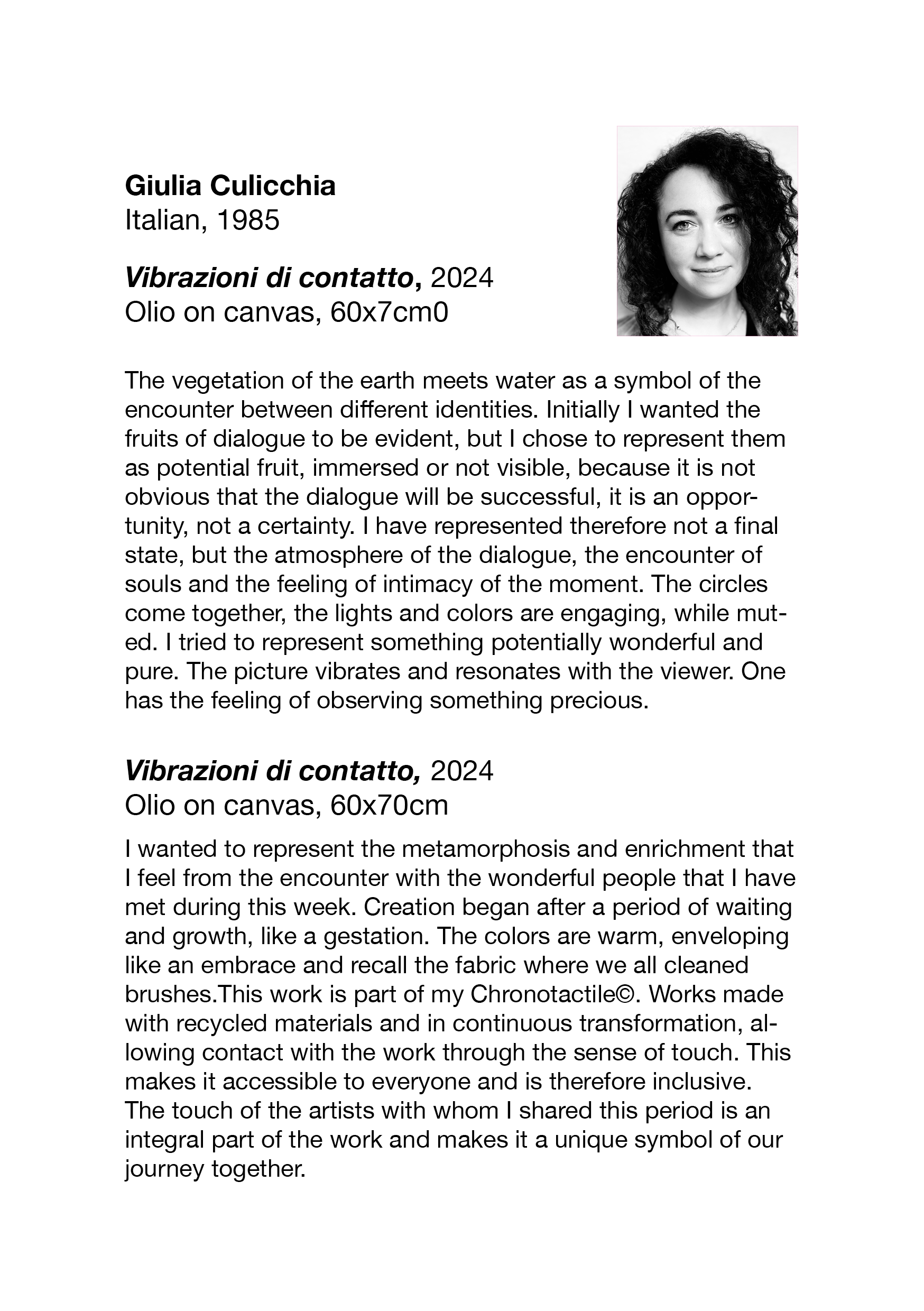
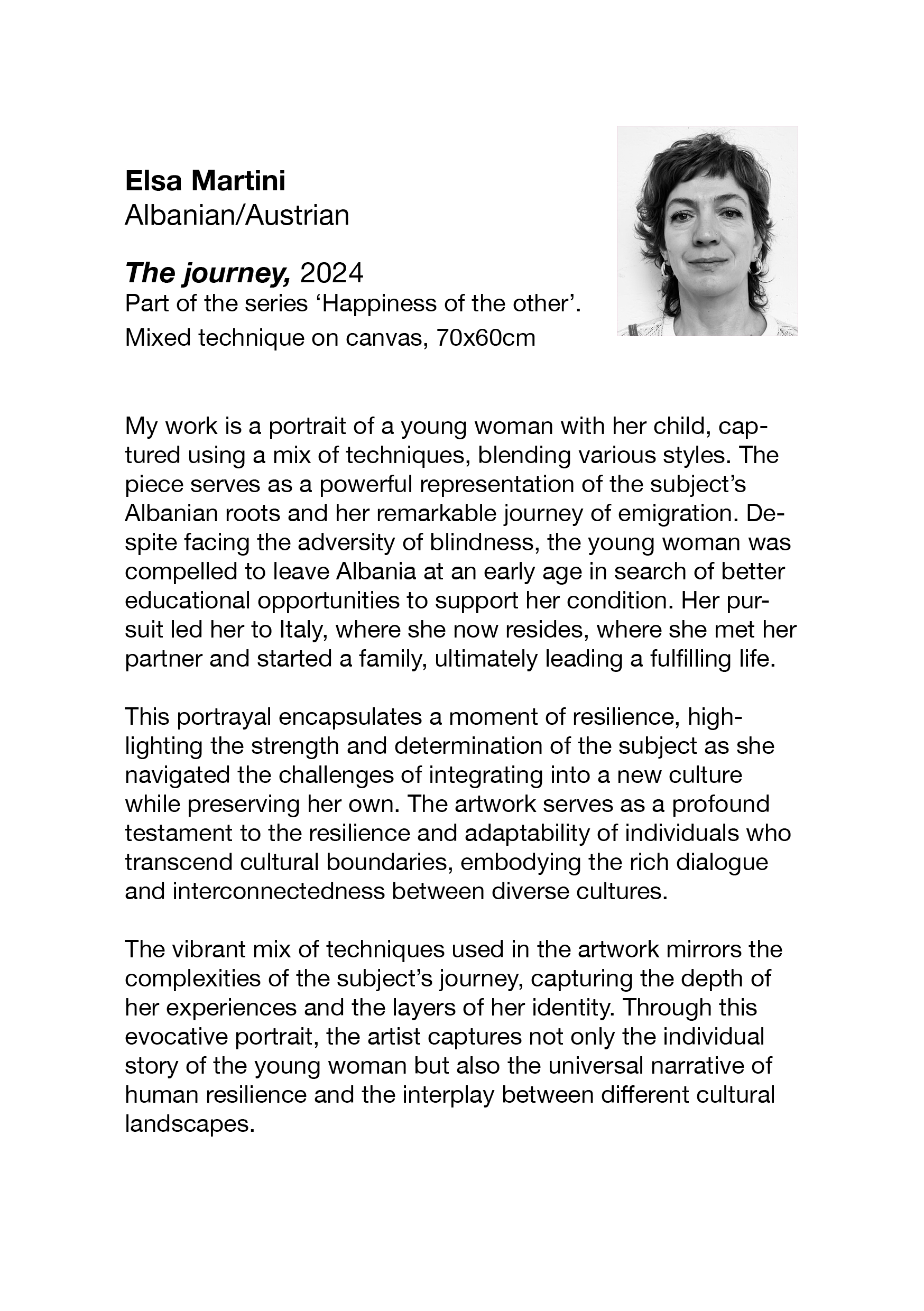
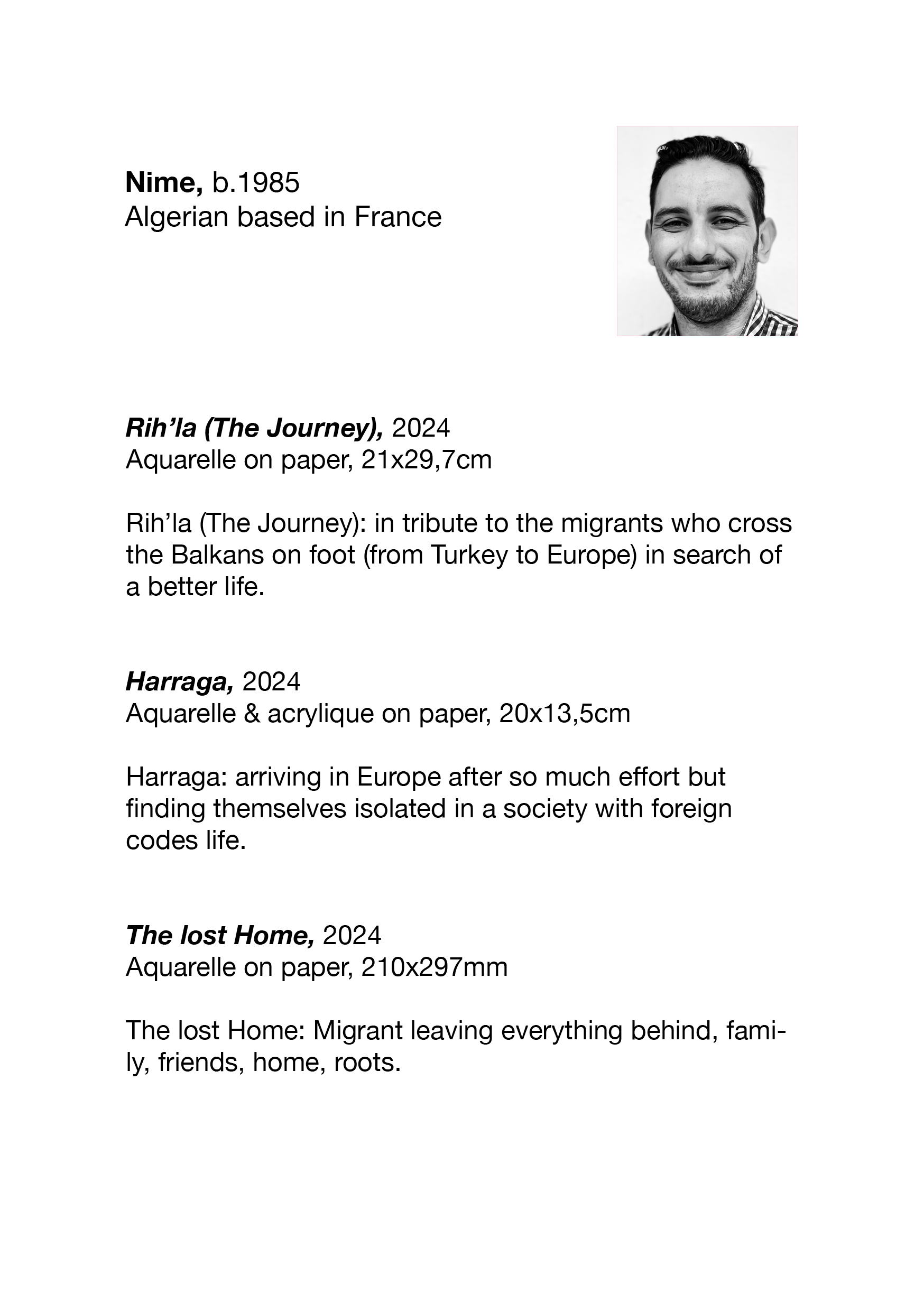
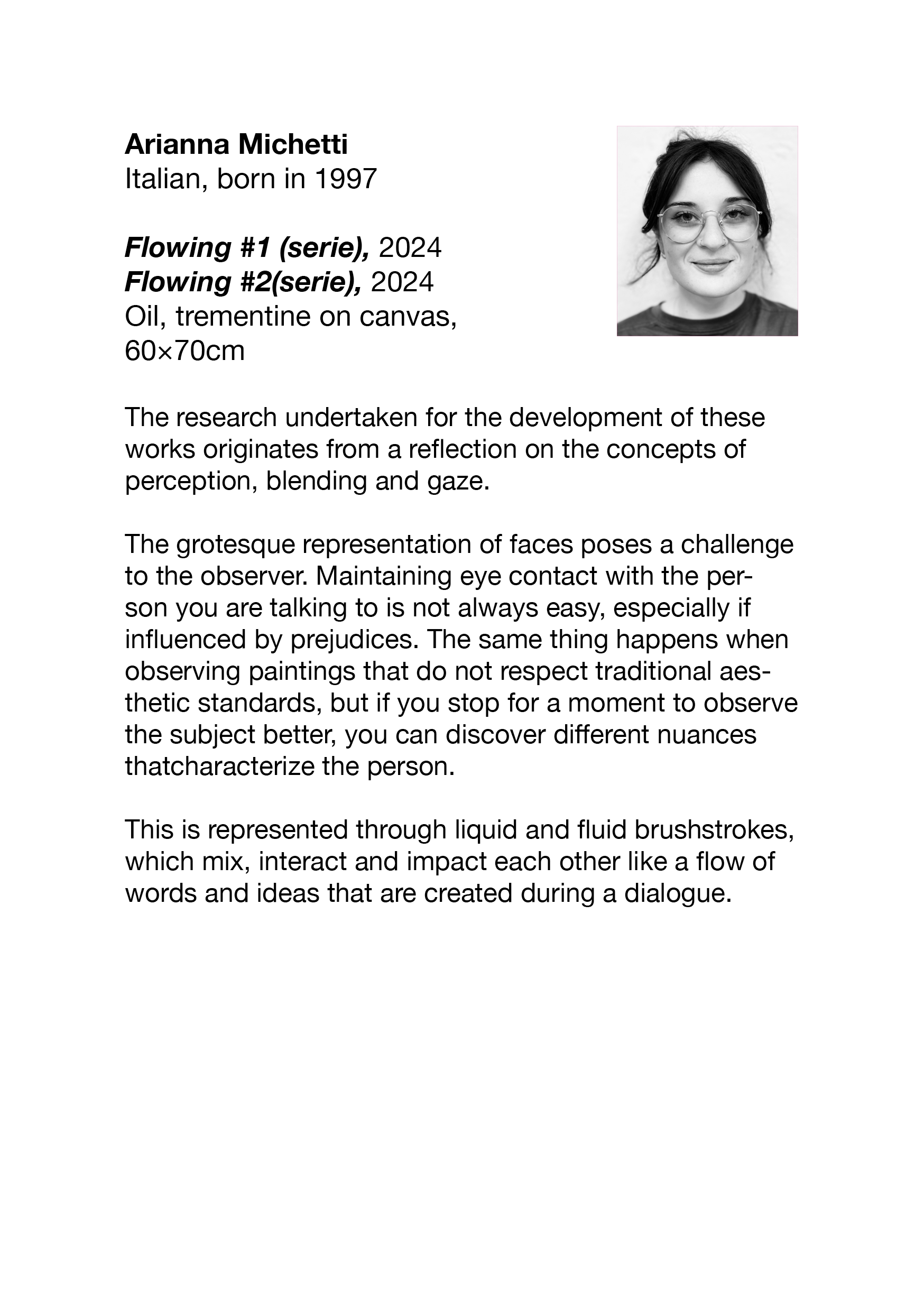
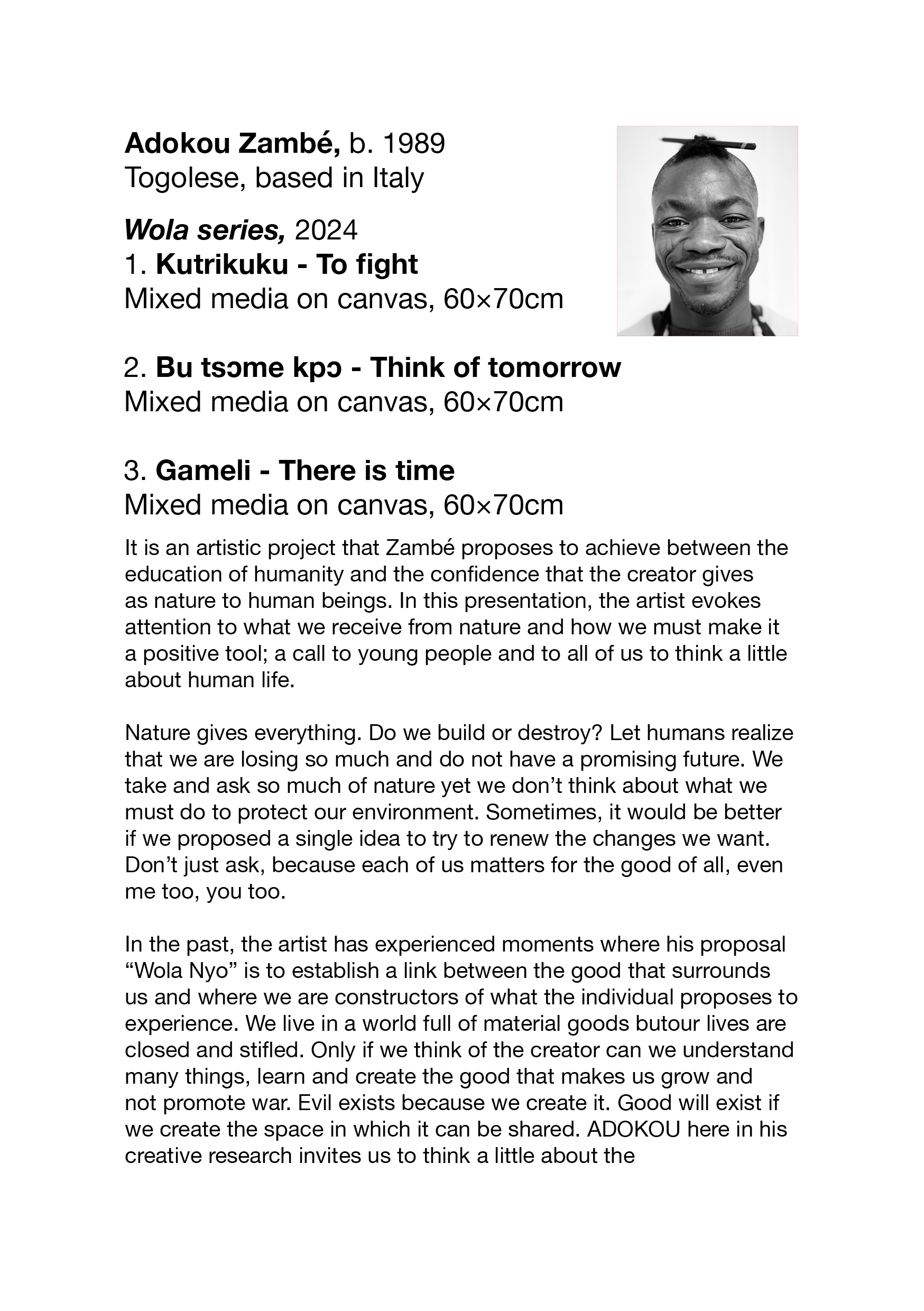
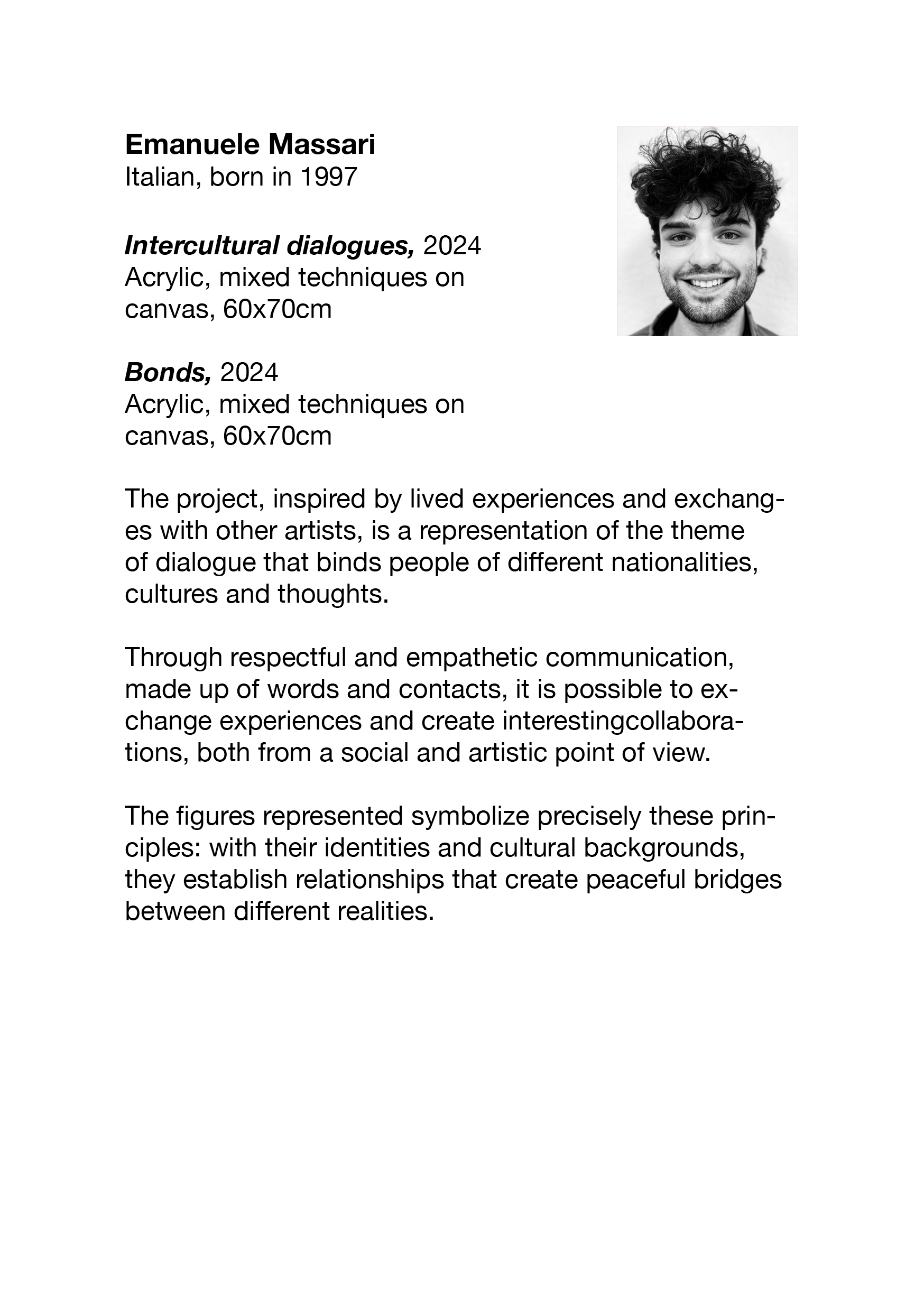
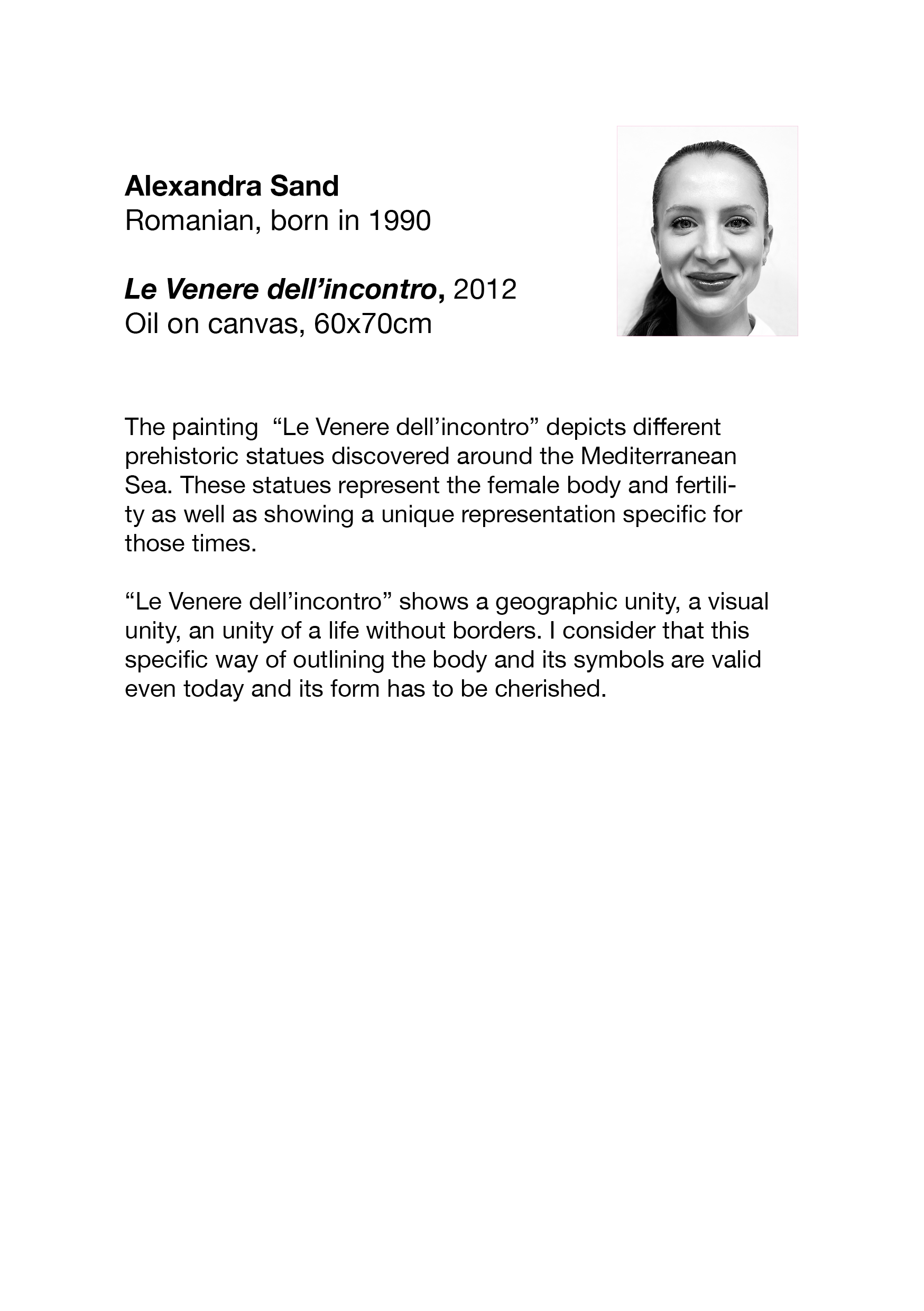
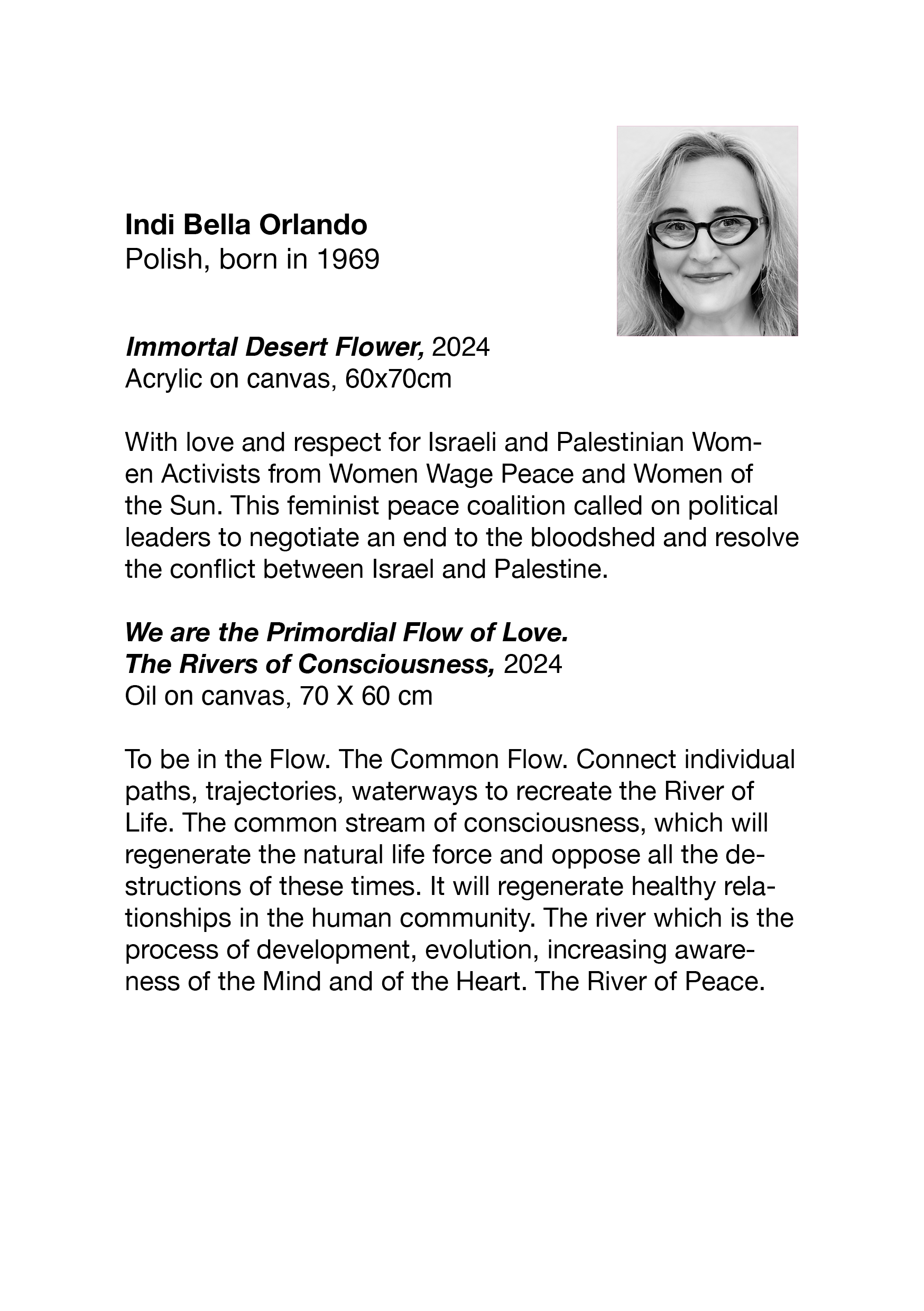
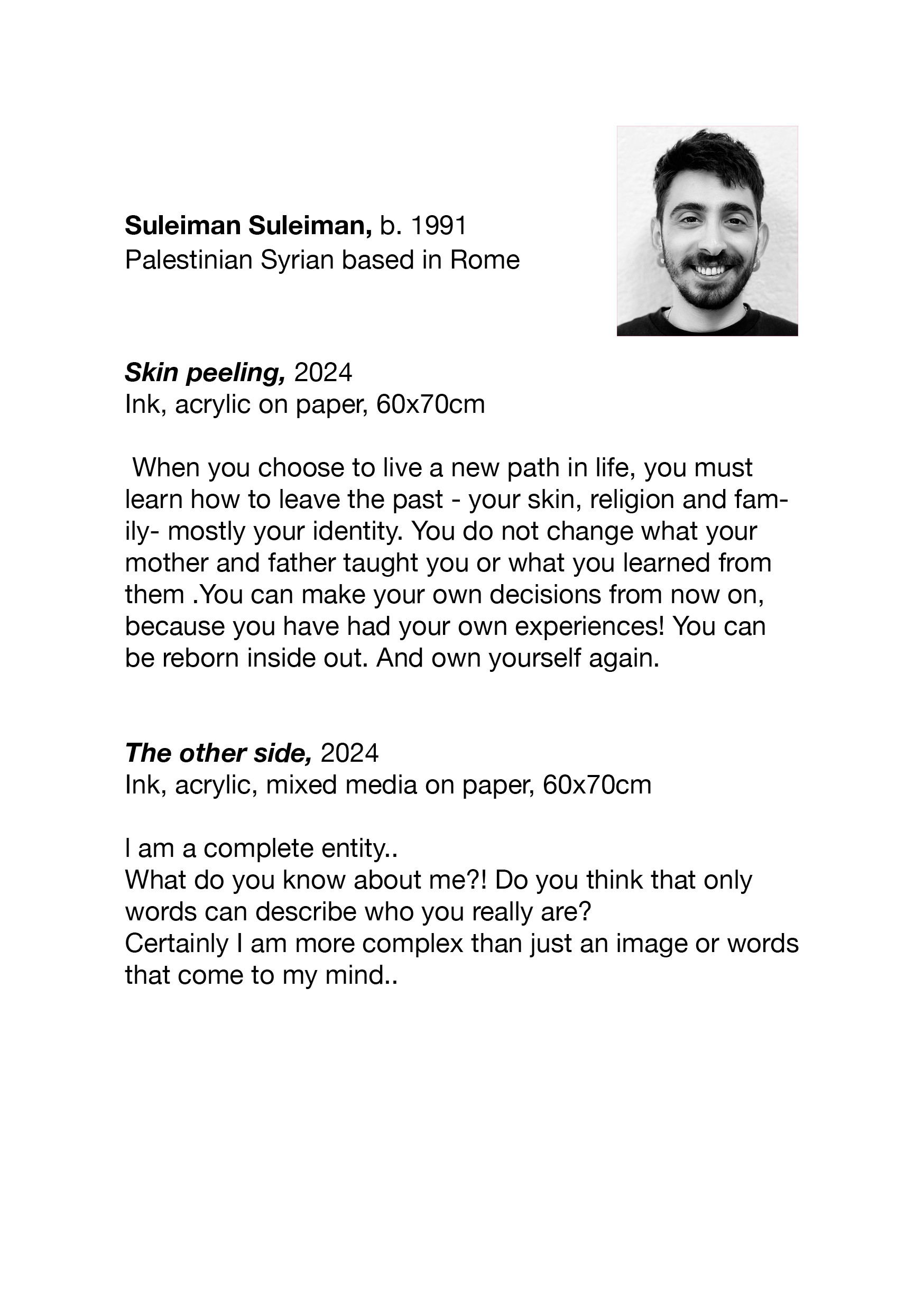
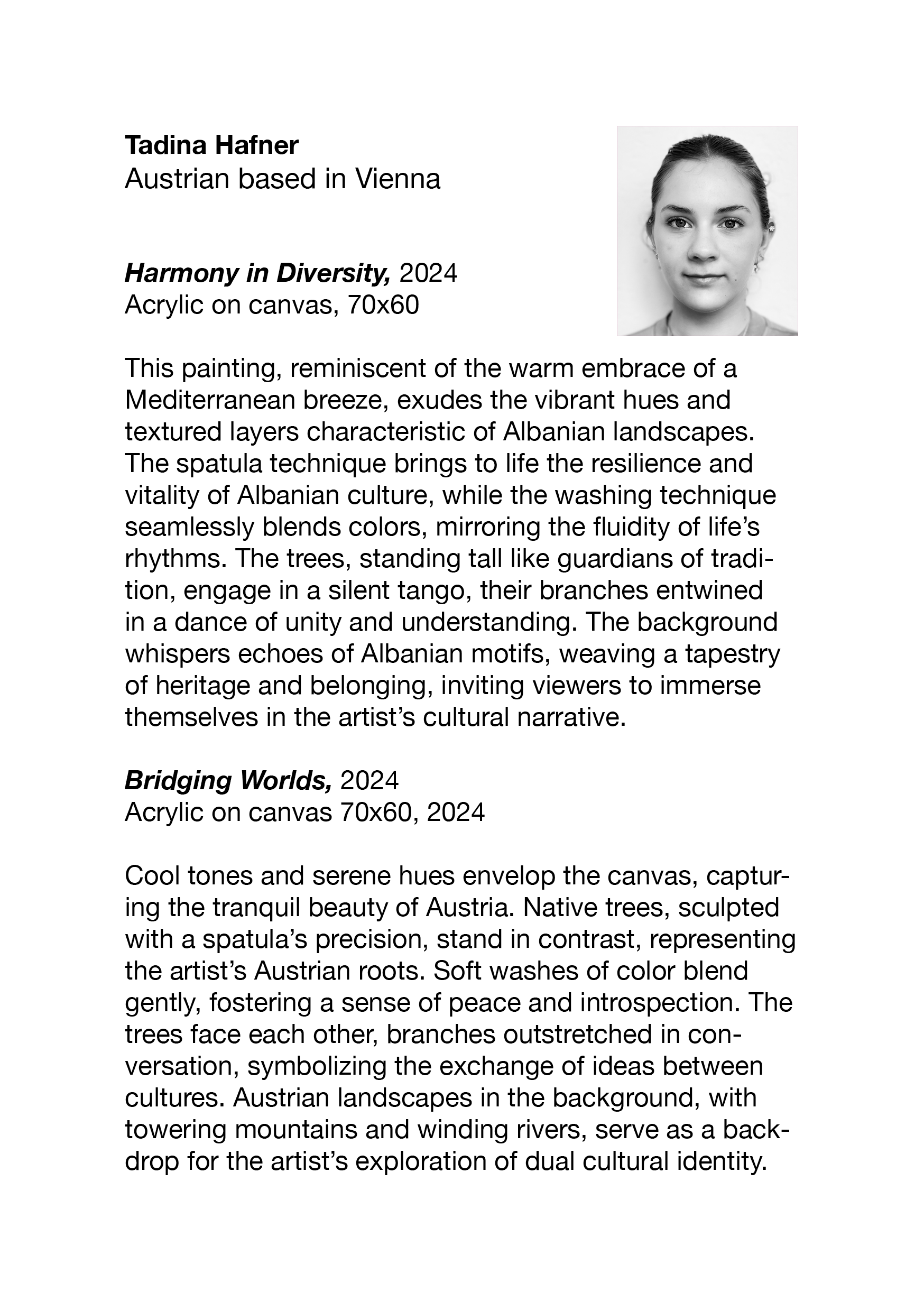
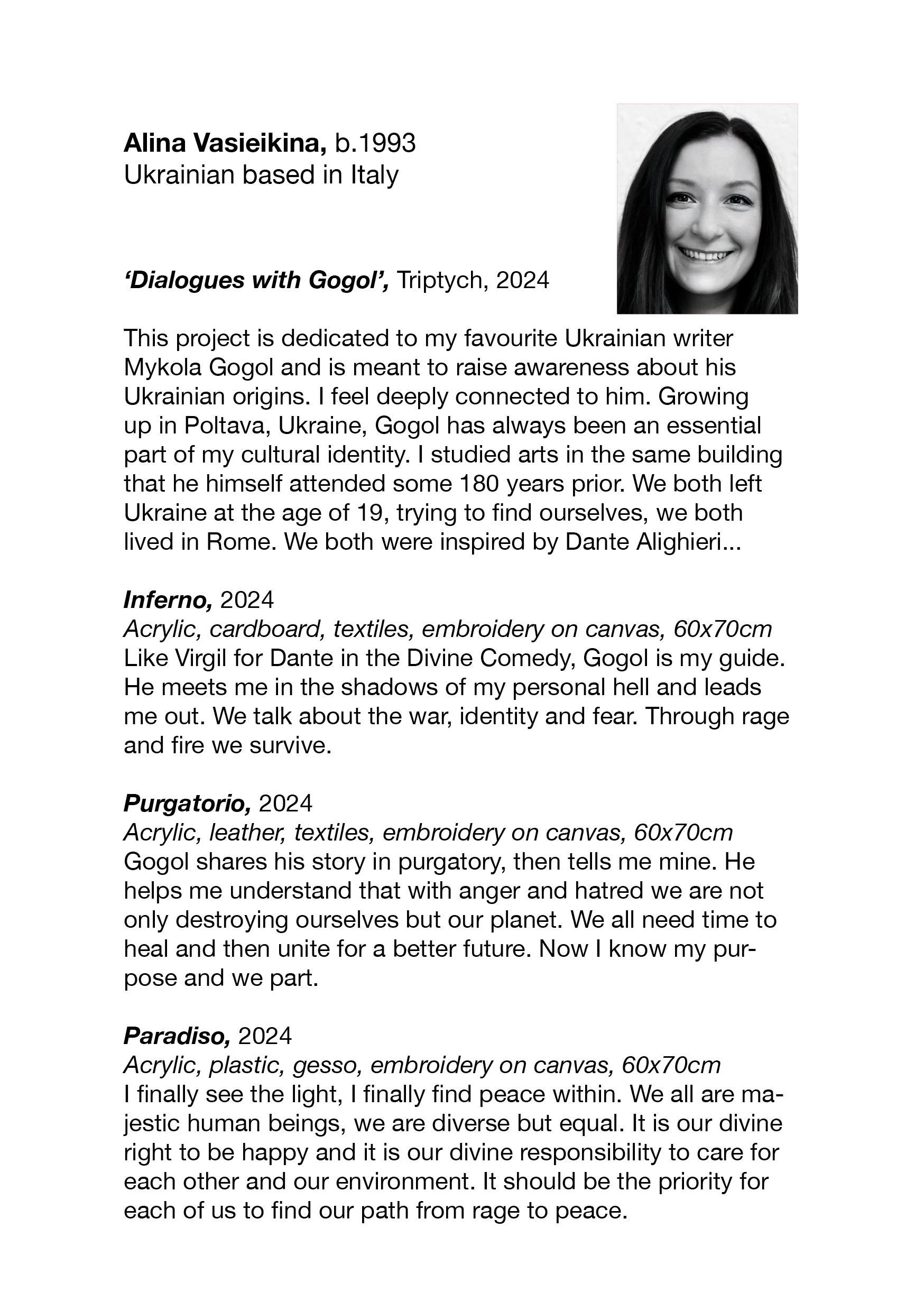
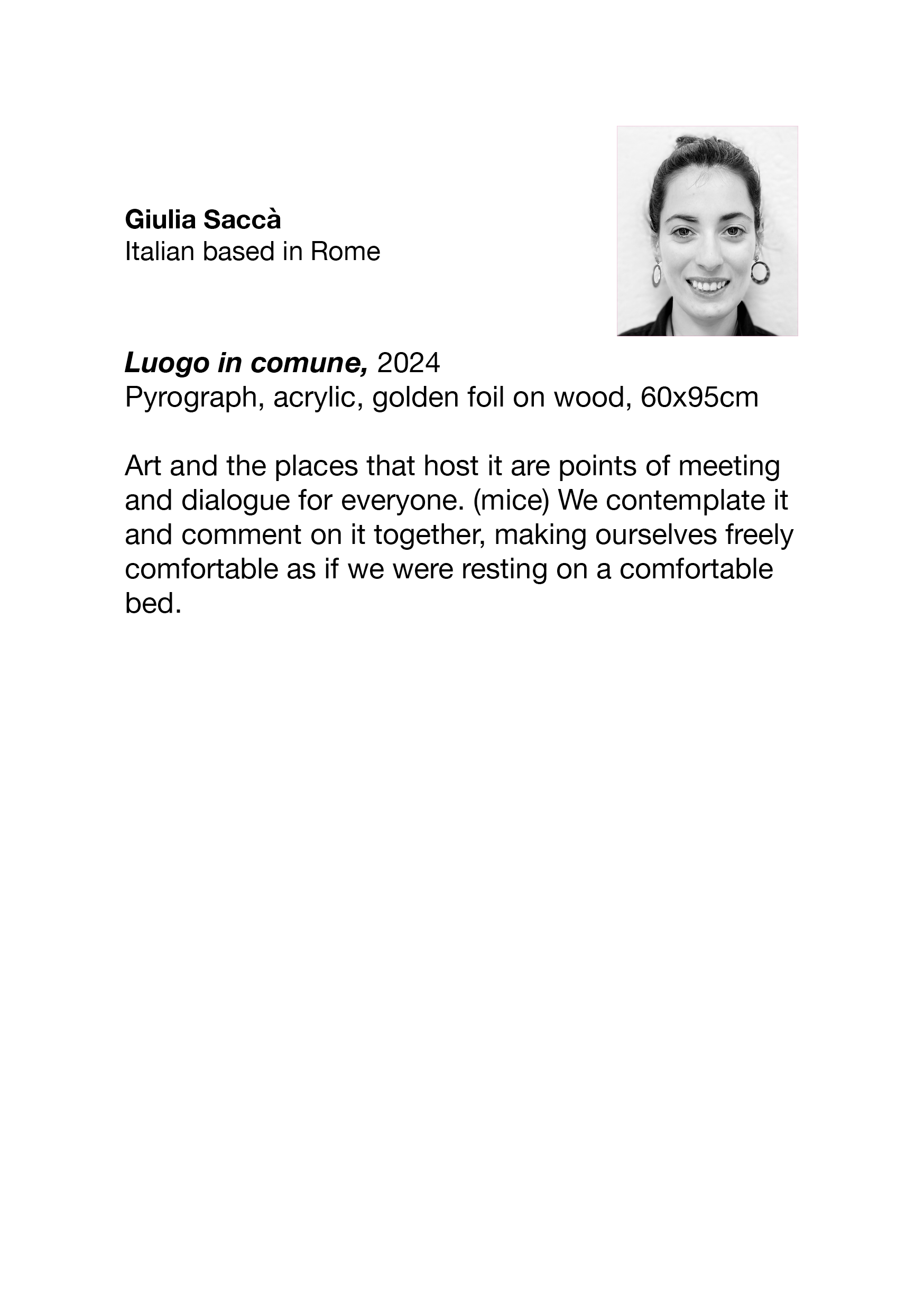
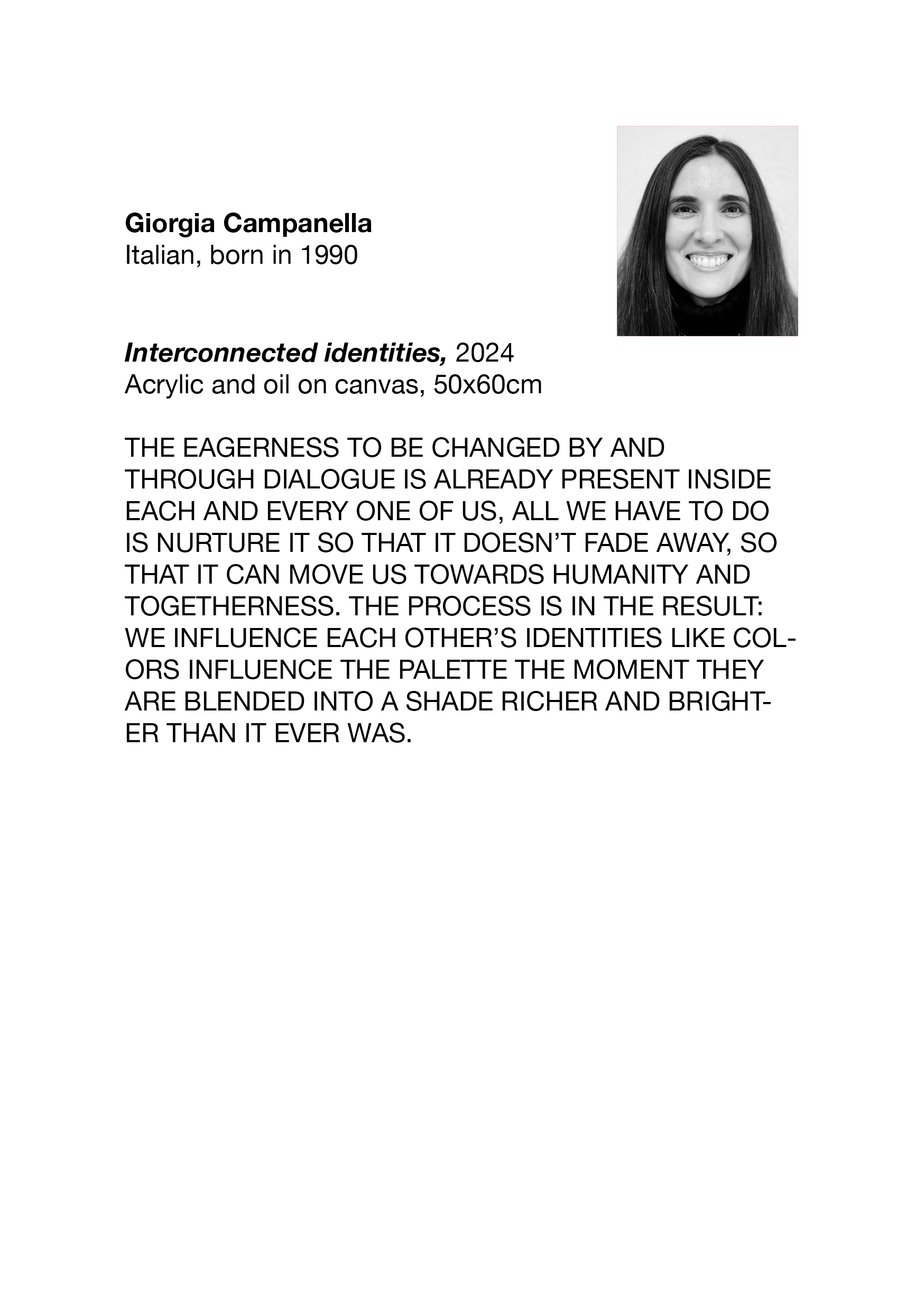
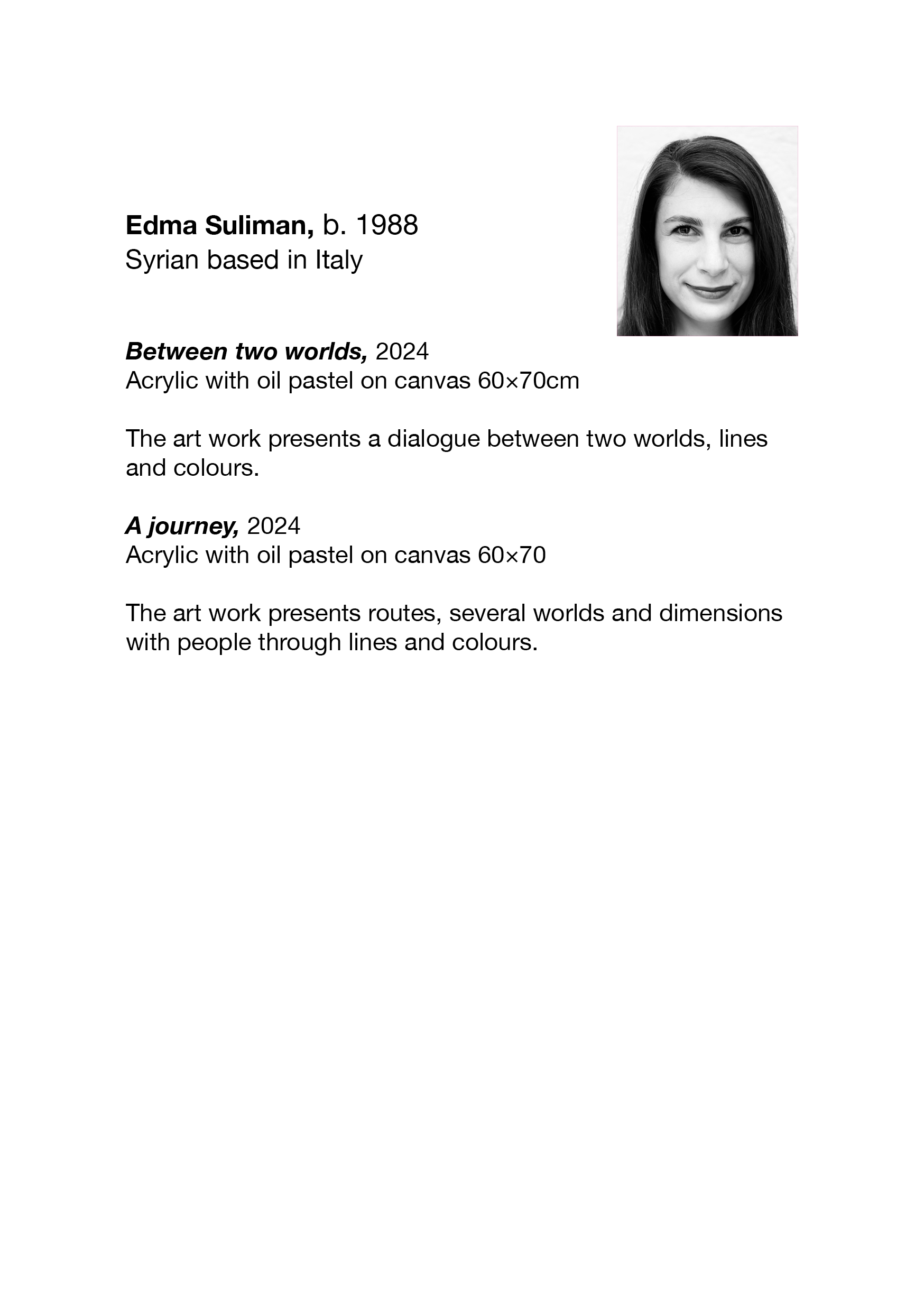
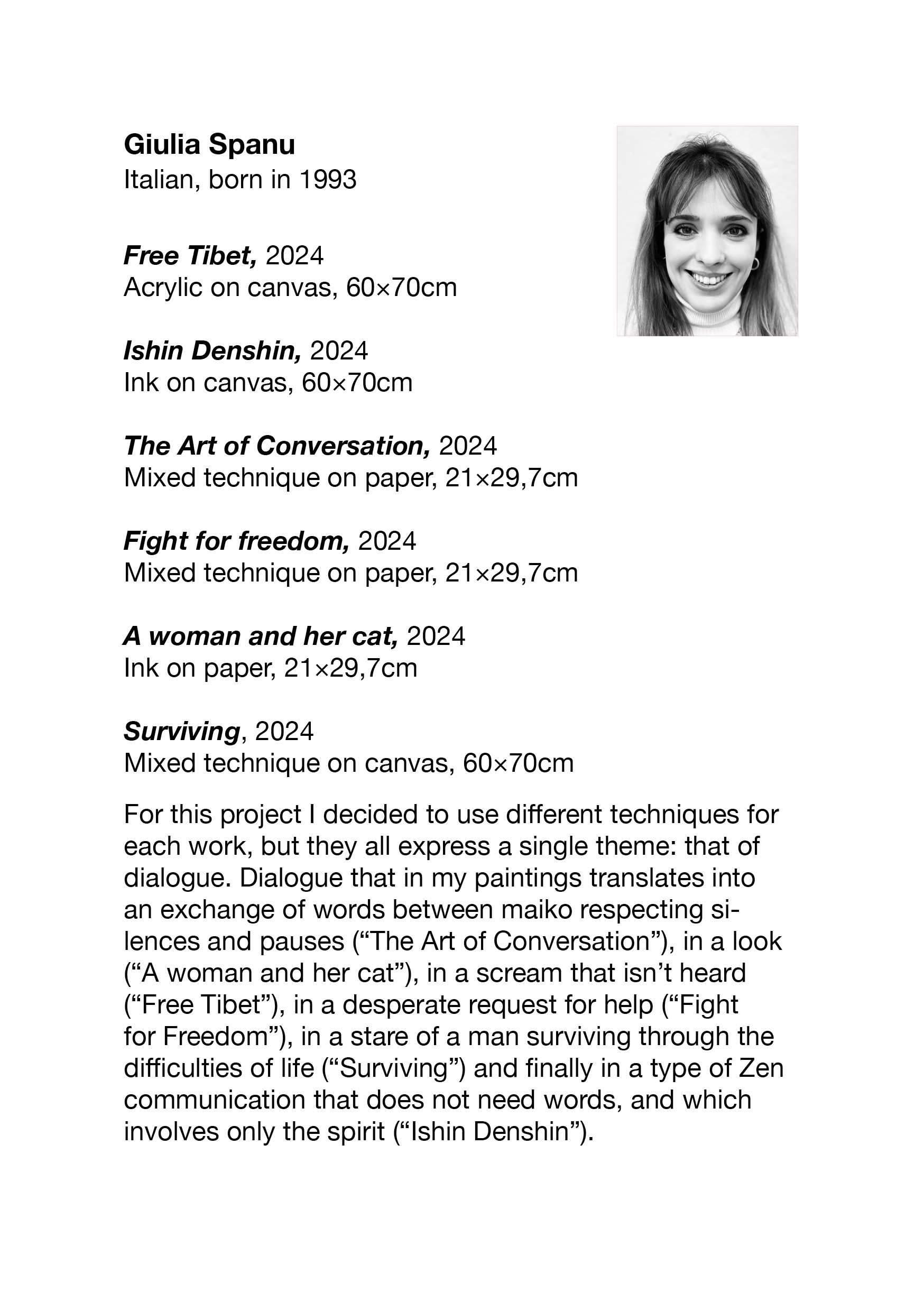
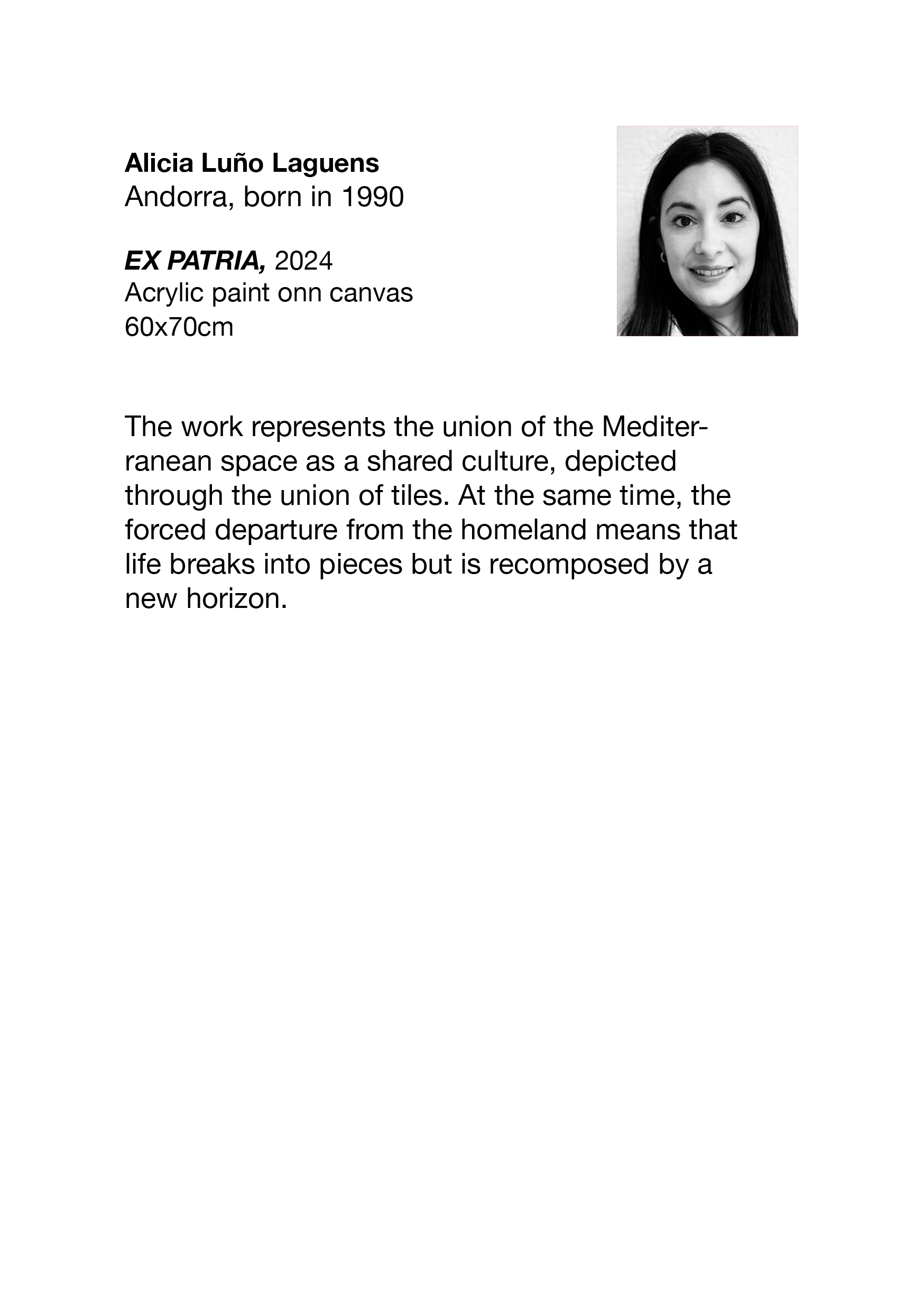
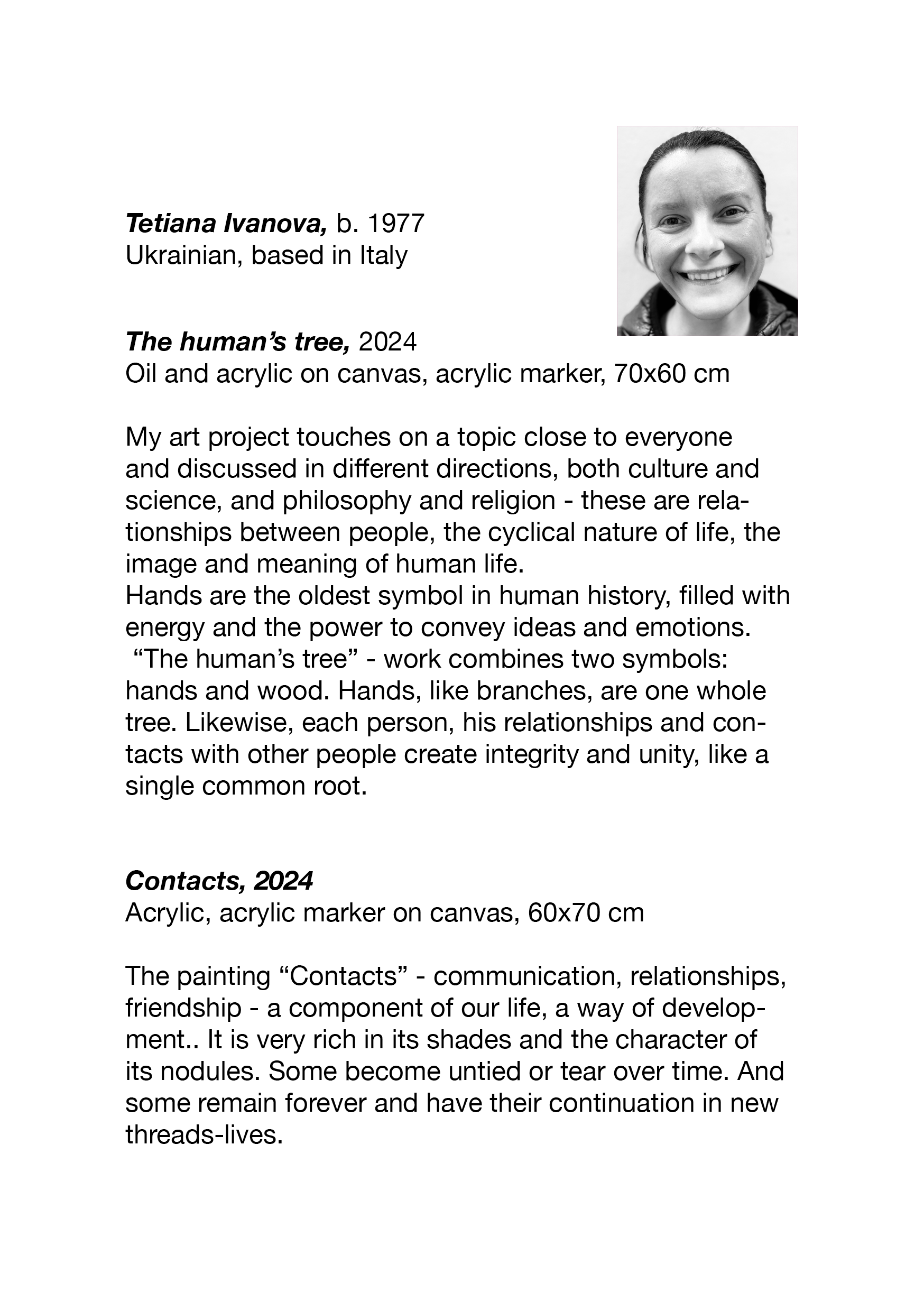
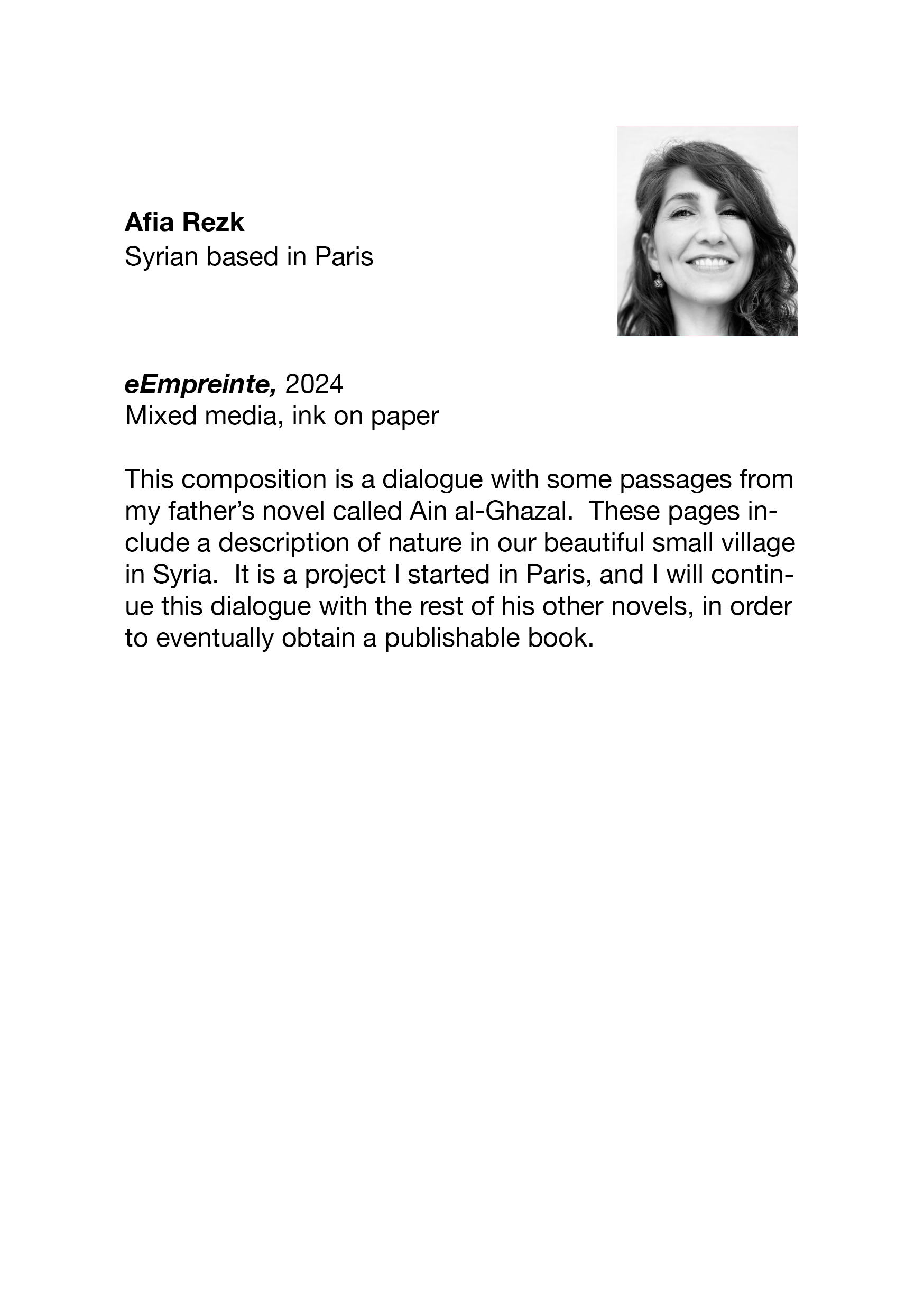
2023 Book Review Roundup: Journal of Ecumenical Studies
As 2023 comes to a close, we are happy to report that the Journal of Ecumenical Studies reviewed 14 books this year! We had a great selection of important interreligious and ecumenical works highlighting the diversity of the fields in 2023.
Our year started with Eugene Fisher reviewing Fred Lazin’s book American Christians and the National Interreligious Task Force on Soviet Jewry: A Call to Conscience, published by Rowman & Littlefield.
Read it here: https://muse.jhu.edu/pub/56/article/890324.
Glenn B. Siniscalchi reviewed David Bentley Hart's That All Shall Be Saved: Heaven, Hell, and Universal Salvation, published by Yale University Press, commenting that “This book is a mesmerizing defense of the claim that everyone will freely submit to the Christian God…” Read it here: https://muse.jhu.edu/pub/56/article/890325.
Seth Ward reviewed Susanne Scholz’s and Santiago Slabodsky’s edited volume, The New Diaspora and the Global Prophetic: Engaging the Scholarship of Marc H. Ellis, published by Lexington Books/Fortress Press. Review: https://muse.jhu.edu/pub/56/article/890326
"The supreme value of the book is Kasimow’s remarkable gift of self-portraiture.” Peter A. Huff reviewed Harold Kasimov’s book Love or Perish: A Holocaust Survivor's Vision for Interfaith Peace, published by iPub Global Connection.
Read it now at https://muse.jhu.edu/pub/56/article/890328.
Jonathan C. Friedman reviewed Peace and Faith: Christian Churches and the Israeli-Palestinian Conflict by Cary Nelson and Michael C. Gizzi and published by Academic Studies Press. The review is available here at https://muse.jhu.edu/pub/56/article/890327.
Journal of Ecumenical Studies co-editor David Krueger reviewed Philip Gorski and Samuel Perry’s book The Flag and the Cross: White Christian Nationalism and the Threat to American Democracy, published by Oxford University Press. Check it out at https://muse.jhu.edu/pub/56/article/890329
Our summer edition included three reviews, starting with Joseph Loya’s review of Catholics without Rome: Old Catholics, Eastern Orthodox, Anglicans, and the Reunion of Negotiations of the 1870s by Bryn Geffert and Leroy Boerneke and published by the University of Notre Dame Press. Available now at at https://muse.jhu.edu/pub/56/article/902009
“What is most interesting about this impressive, multi-authored volume is its genuinely ‘catholic’ character.” – Robert Nicastro in his review of Marc Pugliese and John Becker’s Process Thought and Roman Catholicism: Challenges and Promises published by the University of Pennsylvania Press. Read it now at https://muse.jhu.edu/pub/56/article/902010
Eugene Fisher reviewed Teaching the Shoah: Mandate and Momentum by Zev Garber and Kenneth L. Hanson for @CamScholars. You can read it on our ProjectMUSE at https://muse.jhu.edu/pub/56/article/902011!
We finished the year strong with 5 reviews in our winter edition! Zev Garber returned with a reviews of @RMikva’s Interreligious Studies: An Introduction published by @CambPressAsses Read it here: https://muse.jhu.edu/pub/56/article/914311
Zev Garber additionally reviewed Kenneth Hanson’s Luke: Illuminating the Sage of Galilee for @centergcrr.
Read it at the JES now! https://muse.jhu.edu/pub/56/article/914312
“This book is an emotive and critical reflection by Jewish and Christian clergy and academics on To Do the Will of Our Father in Heaven (TDW)” Zev Garber’s review of From Confrontation to Covenantal Partnership: Jews and Christians on Orthodox Rabbinic Statement of "To Do the Will of Our Father in Heaven Read it hear at: https://muse.jhu.edu/pub/56/article/914313
Nathan Maroney reviewed A Handbook on the Jewish Roots of the Christian Faith by @DrCraigAEvans and David Mishkin, published by @hendricksonpub.
Available to read now at https://muse.jhu.edu/pub/56/article/914315
Finally, Zev Garver also reviewed The Nun in the Synagogue: Judeocentric Catholicism in Israel by Emma O'Donnell Polyakov for @PSUPress.
You can access it like all other reviews on our ProjectMUSE at https://muse.jhu.edu/pub/56/article/914314
We had a great selection of books and are excited to see what 2024’s releases offer. If you are interested in reviewing a book with the JES, visit https://dialogueinstitute.org/book-reviews for more information and our recommendations of books to review. See you in 2024!
Featured JES Author: Effiong Joseph Udo on Dialogue and Democracy in Africa
The Summer Issue 58.3 of the Journal of Ecumenical Studies is now available. For each issue, the Diablogue features one author and makes available a full-text version of their article for 30 days on Project Muse. In this issue, we are featuring Effiong Joseph Udo's "A Reimagination of Dialogue and Democracy in Africa via an Afrocentric Reading of the Parable of the Sower (Lk. 8:4–8)." A full-text version of the article can be accessed HERE.
Effiong Joseph Udo, Ph.D., currently teaches New Testament Literature, Hermeneutics, and Dialogue at the Department of Religious and Cultural Studies, Faculty of Arts, University of Uyo, Uyo, Akwa Ibom State, Nigeria. He is president of The Pan-African Dialogue Institute and director at the Centre for Deep Dialogue and Critical Thinking at the same University. His doctoral thesis on St Luke’s soteria (salvation) concept grounded his understanding of the ministry of Jesus as a spirit-filled campaign for prioritization of justice and human well-being in the society of his days. This inspired Dr. Udo’s research interests in biblical exegesis to promote social justice, human rights, peacebuilding, interfaith relations, as well as ecumenism.
He is an Ambassador for Peace of the Universal Peace Federation, New York, a member of Professors World Peace Academy, as well as a postdoctoral International dialogue fellow of King Abdullah Abdulaziz International Centre for Interreligious and Intercultural Dialogue (KAICIID), Vienna, Austria.
In two sentences, what is the argument of your J.E.S. article?
In the article, I attempted to show how a pan-Africanist reading of the Second Testament Parable of the Sower in Lk. 8:4–8 informs a reimagination of dialogue and democracy in Africa. The study suggests that dialogue and democracy—which are ethically guided by the principles of equality, tolerance, cooperation, participation, and inclusion—are, in practice, complementary and mutually reinforcing, and these widely embraced values are present in African social systems, such as the ethics of communalism and ubuntu.
Many observers have characterized democracy as a Western import to African societies, but you have shown that many values and practices in traditional African societies are deeply democratic. What can democracies in Europe and North America learn from democratic African societies?
Guided by the lived ethics of ubuntu and communalism, Africans are socially and culturally oriented in values toward relationships, friendship, hospitality, cooperation, and tolerance of ‘the other’. I recommend that sustained efforts must be made by all stakeholders to deepen the knowledge and practice of these values in order to strengthen democratic engagements in Africa, Europe, North America, and other democratic societies in the world.
How did you get interested in the topic?
The African Union 2063 Agenda track on peace and democracy motivated my research. I sought to understand the presence, nature, and effects of civil society organizations’ engagements with African states and people to promote peace, human rights, and democratic ideals in the continent. I hoped that the effort would help in widening the Dialogue Institute’s contributions to deepening democratic ideals of freedom through its scholarship in dialogue and training in religious pluralism and democracy around the world. Working with Dr. David Krueger as a dialogue consultant for Africa with the Dialogue Institute, I also thought the Institute would be enriched by the exchange of experiences and perspectives of Africa’s traditional, academic, political, and religious leaders, youth, women, professional groups, and institutions because their dialogue and peacebuilding engagements are directed toward the African Renaissance.
In a few sentences, can you describe how the articles in this issue of the JES connect to the vision for The Pan-African Dialogue Institute?
It is remarkable that the project also gave birth to The Pan-African Dialogue Institute. In the course of my travels, I was able to bring together colleagues, civic leaders, and professionals in various disciplines, as well as youth and women’s groups from a number of African countries; and together we created The Pan-African Dialogue Institute. One could learn more by visiting: www.africadialogue.org. So far, members of the new institute include people from 18 African countries, and this number is still growing. Some individuals who had been on the DI African contacts, including the Study of the U.S. Institute on Religious Pluralism alumni, have also joined the Institute. Part of the rationale for creating the Institute was to serve the DI Board with a central body to relate with whenever Africa is on the agenda.
I believe that the creation of The Pan-African Dialogue Institute represents a significant milestone for the DI under the leadership of Dr. Krueger as well as a lasting testimony of Prof. Leonard Swidler’s inspiration. It flows from Swidler’s mentorship and encouragement to Dr. Mutombo Nkulu-N’Sengha, founder of the DI-supported Bumuntu Peace Institute in the Democratic Republic of Congo, and my humble self of the University of Uyo in Nigeria to unite African scholars and professionals to embrace dialogue. This is why the Institute will remain in constant collaboration with the Dialogue Institute at Temple University. Created to foster multi-sectoral dialogue on issues in religion, culture, sciences, environment, law, economy, information, communications, technology, gender, and politics that promote democratic ideals and human rights in the Continent, and so on, the Institute is established as a civil society think tank. It seeks to unite African professionals and leaders to promote dialogue engagement that is rooted in Pan-Africanism and contribute to the building of policies and practices for the sustainable development of Africa. African professionals who are based in the continent and in the diaspora, from any field of life, as well as friends of Africa are welcome to join us; for dialogue is at its best in company, and not in isolation.
Journal of Ecumenical Studies Issue 58.3
Introduction to the Conference Papers
Effiong J. Udo, David M. Krueger
Effiong Joseph Udo
Democracy and Interreligious Dialogue in Africa: Prolegomenon for an African Political Theology
Mutombo Nkulu-N'Sengha
Dialogue to Uphold the Ethos of Human Rights in a Democratic Society
Wendy Chinonyerem Benaiah
Religion, State, and Constitution in Ghana: Disputed Realms of Neutrality
Cosmas Ebo Sarbah
Dialogue of Social Encounter: Toward Transforming Interreligious Conflict in Nigeria
Mary Lilian Akhere Ehidiamhen
Isaac Peter Maichiki, Samuel Victor Akwe
African Peacemaking Database: Beginning the World's First Grassroots Peace Index
Seth Kinzie, Geoffrey Manasseh
Misheck Mudyiwa
Featured JES Author: Robert B. Slocum on Bonhoeffer’s Theology of Resistance
The Winter issue 58.1 of the Journal of Ecumenical Studies is now available. For each issue, the Diablogue features one author and makes available a full-text version of their article for 30 days. In this issue, we are featuring Robert B. Slocum's "Thrown into God’s Arms: The Sacrificial Grace of Dietrich Bonhoeffer." A full-text version of his article is available on Project Muse and be accessed HERE.
Robert B. Slocum (Episcopal Church) has been an assistant professor in the University of Kentucky's College of Medicine, Dept. of Internal Medicine (voluntary faculty), in Lexington, KY, since 2017, and a Narrative Medicine Facility program coordinator for the University of KY HealthCare since 2015. He teaches an elective course for fourth-year medical students on the narrative basis for patient care and resilient practice. He taught at St. Catharine College, Springfield, KY, 2008–16, and was dean of its School of Arts & Sciences, 2011–13. He has also taught theology and religion at Marquette University, Milwaukee, WI; Mount Mary College (now University), Milwaukee; Carthage College, Kenosha, WI; and Nashotah (WI) House Seminary, During 1986–2002 and 2007–09, he served in ordained ministry positions and as a part-time chaplain, 1993–98, in a Veterans Administration Medical Center in Milwaukee. He was a Judge Advocate in the U.S. Air Force, 1978–83. His B.A. and J.D. are from Vanderbilt University, Nashville, TN; his M.Div. from Nashotah House Seminary; his D. Min. from the University of the South, Sewanee, TN; and his Ph.D. (1997) in systematic theology from Marquette University. He has authored four books, most recently The Anglican Imagination: Portraits and Sketches of Modern Anglican Theologians (Ashgate, 2015; Routledge, 2016), and edited or co-edited ten others, including Discovering Common Mission: Lutherans and Episcopalians Together (with Don S. Armentrout; Church Publishing, 2003). His nearly forty articles have appeared in theological or medical journals and as book chapters, and he has made presentations at more than two dozen theological and medical conferences. He is married to Victoria Slocum and has three adult children.
In two sentences, what is the argument of your J.E.S. article?
Identifying with the oppressed in both the U.S. and Germany, Dietrich Bonhoeffer said the church of Christ lives in all people, beyond all national, political, social, and racial boundaries. He offered an ecumenical vision of the Christian church that greatly transcends the Christian nationalism of National Socialism in Germany; he saw that God’s love for the world and incarnational Christian spirituality can be expressed through political action and active resistance.
How did you get interested in the topic?
I was fascinated by Bonhoeffer's heartfelt devotion and academic achievement that provided the foundation for his unflinching Christian witness, resistance, and sacrifice. He spoke up and acted with great courage at a time when many Christians in his country looked the other way in the face of great evil. The story of his willingness to apply his faith in resistance and direct action against Nazi tyranny also provided an effective example and good material for discussion in undergraduate courses I taught on topics such as Christ and culture, quests for God, and applied ethics.
Your article poses a stark contrast between the Confessing church movement associated with Bonhoeffer and the dominant German Christian movement that became co-opted by Nazi ideology. Do you see parallels in the world today and how best can Bonhoeffer speak to the challenges we face?
Like us, Bonhoeffer lived in a time of great conflict and abuse of vulnerable minorities who were seen as outsiders by the powerful. The response of German Christians to the threats of National Socialism generally ranged from anemic to complacent to complicit; Bonhoeffer's frustration was palpable. He expressed faith through prayer and justice instead of powerful religious organizations and sought a future form of the church that might be unexpected—nonreligious in a conventional sense, but able to convert and transform. He consistently sacrificed his own safety to resist the oppression of the German people, while expressing and living the unity of faith and action in the world through sacrificial grace.
What is your next project?
I am continuing to explore perspectives on "war and faith" from the mid-19th century to the present. I define "war" broadly to include intense struggles outside the context of declared wars such as civil rights and the proliferation of nuclear weapons, as well as declared wars. I believe that sometimes in the worst situations, we reach out for the divine most earnestly, stating our beliefs, understandings, and sources of meaning most clearly. I am currently beginning to research the writings and witness of Dorothy Day.
Article Abstract:
Dietrich Bonhoeffer encountered Aryan nationalism and racism with sacrificial grace and Christian opposition. One of the first and the very few to speak out against the Nazis and to follow through with active resistance, he resisted Nazi intrusions into the life of the German church and the impact of Nazi bigotry on Jews and others excluded from full participation in German society. During his time in New York City at Union Theological Seminary and at Abyssinian Baptist Church in Harlem, he witnessed the impact of racism in the United States. Identifying with the oppressed in both the U.S. and Germany, he said the church of Christ lives in all people, beyond all national, political, social, and racial boundaries. Offering an ecumenical vision of the Christian church that greatly transcends the Christian nationalism of National Socialism, he moved from academic and pastoral ministry to direct action against Nazi oppression by smuggling Jews out of Germany, using ecumenical contexts to spread word about resistance to the Nazis, and seeking the overthrow of Nazi leadership. Self-sacrificing in his devotion to public activism, he saw that God’s love for the world and incarnational Christian spirituality could be expressed through political action. He expressed faith through prayer and justice, not in powerful religious organizations, and sought a future form of the church that might be unexpected—nonreligious in a conventional sense, but able to convert and transform. He consistently sacrificed his own safety to resist the oppression of the German people, while expressing the unity of faith and action in the world through sacrificial grace.
A SUSI Summer 2022 Reflection: Ricky Adityanto
What is human?
This was my simple question when I flew to the USA for my SUSI Summer 2022 program. As a multilevel minority in Indonesia (Catholic, Chinese mixed descent, queer) I experienced many discriminations in my life. I tried my best to contribute to society as a good person so people won’t question my identity as a problem anymore just like Gus Dur (the 4th Indonesia’s president) said: “If you are a good person, no one will ask your religion”.
But still, I questioned my identity at that time. Yes, I believe that God created us differently and each one’s unique identity is a hidden gem. But in reality, those differences are often seen as problems. What if I, for once, proudly show my identity without any social pressure? Would I grasp a deeper meaning of being a human?
Who is human?
“We the people”. That part of the preamble of the US Constitution was one of the major points of my reflection. Who are the people? We are all! No matter your religion, skin color, gender, etc. We are all the people. We are all human!
I was really touched when for once I could be proud and accepted for my identity during the SUSI Summer program. And in turn, I was blessed to know my friends’ unique identity in SUSI that I never met before in Indonesia. Unknowingly, I become blessed precisely because of the unique identity that molds me into a unique person. I was there, I met them, had conversations with them, and helped them as a unique color called “me”. No one can replace me and my color.
At that point, I understood that being human is being me with all my identity, and giving that “me” as a whole in my relation with others. And having identity means having struggle. So, I must be open to the others’ and my own struggle in my relation.
Why human?
"If the church stays silent, who will speak for the poor and discriminated?”. This speech I got in Bethel Church, Philadelphia, still gives me goosebumps now and that is also the answer to the next question: why human?
We are all blessed through our unique identity and struggle! Our identity and struggle shape us as a person with our own lessons that we learned from our struggles. And our mission in this world is simply to be truthful to ourselves, to our “color”, learn from the struggle, and share what we’ve learned from the struggle to inspire a better society. Be a unique blessing for others that can’t be replaced.
So, here I am, sharing with you what I’ve learned so far. If I stay silent, who will speak for people who are in the same identity group as me?
How to be human?
I can’t mention one by one all the beautiful quotes I got from all the beautiful-hearted people I met during SUSI. I can say that I met big people with even bigger hearts there. But, one important thing I can say is they showed me how to be human: embrace the identity, and the struggle, and share and care for others.
And they showed how to do it in the simplest way: through friendship. Through friendship, we open to others’ struggles, we try to understand and respect others’ identities, and we learn how to share and care with kindness. We also respect ourselves by staying true to our identity and giving it as a gift to others. And together, we paint this world with our combined colors, creating new colors that we never thought could exist before. This is exactly what dialogue is all about.
A SUSI 2022 Alumni Story: Arshad Khan
"Growing up in a traditional business-oriented joint family in a drought-prone district of Telangana, I have been perceiving what it takes for a multicultural society to exist in the present-day world.
I graduated from St.Mary`s College with BBA. Since the day I moved to Hyderabad for my higher education, I have always been seeking a platform to nurture my idea of multicultural coexistence, and that's where I found Rubaroo NGO based out of the city who is relentlessly working on education and human rights advocacy. A 3-day workshop on interfaith included playful activities on values, perceptions, conflict management, and the social action project we conducted in a women`s degree college in Mahabubnagar has brought me a proper understanding of how to resolve conflicts among smaller groups and avoidance of communal violence.
Over time, Rubaroo NGO nominated a few youth champions of the previous workshop for a US exchange program called SUSI, Study of the U.S. Institutes (SUSIs) for Scholars.
Among them, I was selected for the cohort Religious Freedom and Pluralism. Unfortunately, the pandemic began the year in which we were supposed to fly to the United States for the 6 weeks of the study tour. So we had to go through the sessions virtually for two months and the community action project in further time and then eventually things were getting better. Finally, in Oct 2022, we flew to the United States for a 10-day capstone program on religious freedom and pluralism which included round table meetings on democracy, lectures by Temple university professors on Religious freedom, walking around historical monuments and worship places in Philadelphia city, an interfaith community center in Baltimore and the Washington DC.
My whole journey at SUSI consisted of challenges and surprises but I must say it's truly a remarkable and worthwhile experience on the whole as meeting new people beyond the border with similar thought processes has truly nurtured my idea of multi-cultural coexistence."
- Arshad Khan, SUSI Alumni 2021/2022
A SUSI 2018 Alumni Story: Amira AbdelTawab
“Be the change you want to see in the world."
- Mahatma Gandhi
Although the chaos I have been through now in all aspects of my life, I still remember when I was 16 years old, I was dreaming of having a good future and becoming a successful young woman, and changing the world when I grew up. It wouldn’t happen until I traveled to study abroad not in any country, but only in the United States of America.
I was obsessed with traveling to the USA, it was my biggest dream since my childhood to be in the wonderland living the American dream, so during my university year, I studied hard and participated in many student and community service activities. After this hard work, I was lucky enough to receive one of the most difficult scholarships from the U.S. embassy in Cairo and the Department of State. My dream came true and I finally traveled to my dream land, or as I thought at this time.
When I was in the USA I studied for a few short weeks with the Dialogue Institute at Temple University, but it was a turning point in my life. I studied religious pluralism, diversity of cultures, and policy, and learned more about American society close up. I studied Islam from a Western perspective, Christianity, Judaism, Buddhism, and Hinduism. I discovered new religions that I have never heard about before - like the Quakers - and I lived with them in the heart of the Philadelphia forest to study more about them and their leader William Penn, and how they made a significant impact in the foundation of the principles of the American constitution and the American policy.
This heavy experience shifted me from a closed-minded person to a person who is always eager to learn about themself, not only from the difficult experiences of life, but also from others, and let me accept not only different ideas than mine but also the ideas that are completely against mine.
Now I believe in humanity and believe that everyone in this life has their own journey in which they wake up to themself, then to their shadow, and then to their potential. I have to respect every human being on the earth - as life is not a straight path - it is a trial and error and trying different things by figuring yourself out who you are and who you are not.
And finally, I accept the fact that I can change the world by changing myself, and by being kind to myself and everyone.
This blog post was written by a Study of the U.S. Institutes (SUSI) Alumni - a program that the Dialogue Institute implements in partnership with Meridian International and the United States State Department. To find out more about the SUSI program, click here.
Book Review: Blacks and Jews in America: An Invitation to Dialogue
Terrance L. Johnson and Jacques Berlinerblau, Blacks and Jews in America: An Invitation to Dialogue. Washington, DC: Georgetown University Press, 2022. Pp. 224. $26.95.
Volume 57, Number 4, Fall 2022 of the Journal of Ecumenical Studies features a book review of Blacks and Jews in America: An Invitation to Dialogue. The review is written by Dialogue Institute executive director, David M. Krueger. The book has been useful in informing the organization’s various programs on Black-Jewish Dialogue and Understanding. In collaboration with the American Jewish Committee, the Dialogue Institute will be hosting history and dialogue programming in March and April, 2023. We are actively recruiting a spring 2023 intern to assist with research and curriculum development. Position description can be found HERE.
Below is an excerpt of the review, and the rest can be read HERE on Project Muse. The full text PDF is open access until February 1, 2023.
Among minority groups in the U.S., Blacks and Jews have had a unique relationship, often characterized by collaborations in music, sports, and the common pursuit of civil rights. One of the most iconic images of this relationship is the image of the Rev. Dr. Martin Luther King, Jr., and Rabbi Abraham Joshua Heschel marching side-by-side during the American civil rights movements of the 1960’s. However, the relationships between Blacks and Jews have also been fraught with disagreements over questions of Israel/Palestine policy and commitment to racial justice. Drawing on their experience teaching a class on Blacks and Jews in America at Georgetown University, the authors take a fresh look at the complicated and contested history of the relations between these two groups, identifying the key obstacles to constructive dialogue.
In the early-to-mid-twentieth century, Jews and Blacks lived near one another in many urban areas, but this is less common today. Due to white flight in the latter half of the twentieth century, neighborhoods and schools are highly segregated along lines of race and class. As the authors observe, Jews and Blacks today tend to see one another as strangers. As a result, there are few face-to-face encounters that happen organically. Therefore, they suggest, dialogue and relationship-building must be intentional if they are to happen. To engage in this difficult work, the authors identify several key issues that must be taken into consideration. Foremost is the power asymmetry between the two groups. In political collaborations between Blacks and Jews in the twentieth century, white Jews have typically held the financial and economic power, an imbalance that has often distorted the relationship and led to misunderstandings about motivations. According to the authors, a shared commitment to a political vision that advances structural equality for African Americans must be the starting point for meaningful dialogue between Blacks and Jews.
The establishment of the National Association for the Advancement of Colored People in 1909 is often cited as the highpoint of the “Grand Alliance” of Black-Jewish relations. During this period, the groups shared concerns about legalized racial discrimination and segregation. In time, immigrant Jews were better able to assimilate and become recognized as white—a privilege not afforded to African Americans, including Black Jews, who number more than a half million in the U.S. However, while many Jews do benefit from white privilege, they recognize that their status as white in American society is liminal. According to the authors, sincere dialogue between Blacks and Jews (including nonwhite Jews) must address the complexities of race in America.
To read more, click HERE to download a PDF from Project Muse.
Is Dialogue Still Possible Across Political Divides in the U.S.?
Thursday, March 10, 2022
7:30 PM -9:00 PM
Political polarization is greater now than it has been in decades. It has become increasingly difficult for Americans to have civil conversations about topics such as school curriculum, public health, and voting rights. What can we do to foster more compassionate, thoughtful, and honest conversations with one another about policies and issues that affect us all?
In this Zoom event, we will hear from two Pennsylvania state legislators, Rep. Jared Solomon (Democrat) and Rep. Jesse Topper (Republican), who are working to build bridges across partisan lines. They will be joined by three discussants, from a range of political views, who will help to identify the typical points of conflict in current public discourse and explore strategies for fostering sincere dialogue that moves beyond debate and political talking points.
Respondents include:
Kay Yu - Philadelphia attorney specializing in arbitration and mediation
Ann Schroeder - CEO of GlobalSource Partners, Inc.
Sean Chambers - College Director of Academic Affairs and Assistant Professor at Valley Forge Military Academy
David Krueger: Welcome again to another zoom conversation with the Dialogue Institute global community. Tonight, the Dialogue Institute is honored to engage in a conversation titled with the question: “Is dialogue across the political divide still possible?” My name is Dave Krueger and I'm the Executive Director of the Dialogue Institute here at Temple University, and we are delighted to welcome you all to this very important conversation. We have attendees today from across Pennsylvania, across the United States, and around the world. This event is being recorded, and you can view videos from previous events on our YouTube page. Sayge will be offering those links in the chat, as I mentioned them. We are tentatively planning our next Zoom dialogue event in mid-April, which will likely feature author and rabbi, Jim Rudin. We invite you to sign up for our newsletter so you can stay informed about our upcoming events. Sayge will share that link in the chat, as well. If you are new to the Dialogue Institute, and I think many of you are, I invite you to visit our website to learn more about our various programs. The Dialogue Institute at Temple has a long history, beginning with the Journal of Ecumentical Studies founded by Leonard and Arlene Swidler in 1964. One of our premier programs is the Study of the US Institutes on Religious Pluralism and Democracy, which have hosted more than 300 students and scholars since the year 2010. This program is carried out in partnership with the US Department of State. Other programs at the Dialogue Institute include dialogue and innovation programs for high school students around the globe in partnership with Citizen Diplomacy International, our historical tours program in Philadelphia featuring stories of religious and racial diversity in Philadelphia and beyond, our programs that foster black Jewish understanding and dialogue, and a fall virtual conference on dialogue, democracy, diversity, and pluralism in Africa organized by Professor Effiong Udo from Nigeria. Of course, these activities would not be possible without financial support, so we ask that you would please consider making a donation today or soon via our website so we can continue to do this important work. We invite you to make a contribution of $25, $50, or more tonight via our website and that link, as well, will show up in the chat. So, without further ado, I will turn it over to our Dialogue Institute, Chair of the board of directors, Mr. Majid Alsayegh.
Majid Alsayegh: Thank you, David, and I want to welcome all of you to this evening with the Dialogue Institute. I am an immigrant from Iraq and I came to this country as a 19 year old, and America has been good to me. I've been blessed as an immigrant beyond my wildest dreams, and I've really come to love this country and come to love the principles that it was founded upon: equality, religious pluralism, democracy. But it is a work in progress, we have a lot of work still to do to help it reach its potential. I love this country, yet I'm saddened that we live in a country divided by politics, by race, and one might even say by class. And it saddens me that so many Americans are caught up in culture wars and political battles, rather than spending their energy figuring out how to make this country a better place, a better place for all of its citizens. And many times we forget that no matter what color we may be - red, blue, or purple - we love this country. Tonight we have an opportunity to learn from a diverse group of thought leaders on dialogue across political divides.
We have two honored guests, members of the Pennsylvania House of Representatives, and we have three panelists, two of whom are board members, and I will introduce our representatives first and let them share a few pearls of wisdom with us. We have Representative Jared Solomon (D) who serves in the 202nd districts in North Philadelphia. He's a graduate of Swarthmore and Villanova law school, and he served in the army. We also have Representative Jesse Topper ( R) from the 78th district in western PA, which encompasses Bedford, Fulton and Franklin counties. Representative Topper was an eagle scout. He coached football for a number of years, and he's an accomplished musician who has performed in the tristate area. And he has a BS from Frostburg State University, so please welcome our representatives, and we'll invite them to share a few thoughts with us on this subject matter. Who would like to go first?
Representative Jesse Topper: I appreciate my good friend from Philadelphia signaling for me to go first. I just want to first of all say thank you, thank you for inviting me. I do represent the 78th district, which is a very good representation of what I would call Appalachia in Pennsylvania. It is the number one Republican district by voter registration in the Commonwealth, it's a very conservative area. And that's why I really appreciate the friendship that Jared and I have formed. Jared is from Philadelphia, a different part of the state, we come from different backgrounds, we have different ideas politically, and yet we have been able to form a very strong friendship and I think that's important, and what tonight, I hope, will show is that you don't have to be moderate necessarily in your political views to be able to have civil discourse and be good friends. I don't think anybody would consider myself, nor Jared, moderates in terms of our ideology, and yet we're able to work for common goals and a common purpose. We both, I believe, are institutionalists that care greatly about the institution in terms of the Pennsylvania House of Representatives and our state government as a whole, and I'm honored to work with him, I truly am. I say that with the greatest respect. I consider him a good friend. He's a great legislator, a very wise man, and I consider myself to have learned a lot from our conversations. I think that’s the other important thing, that no matter where we end after our discussions, I always feel that I learned something, and I think if we all take that into even some of the political discussions that get a little more controversial, I believe that we can all become better and work towards the goals of not just this Institute, but hopefully all of our goals, so thank you very much for the opportunity to be here and I'll turn it over to Jared.
Representative Jared Solomon: Thank you so much Jesse and it's great to be with all of you this evening. Jesse is a friend, and I think that core to our friendship is a belief in the institution in which we serve and also a mutual respect and curiosity. Jesse had the curiosity to come to my district, and I had the curiosity to actually see his and get to know him, get to know the people that he represents, what makes them tick, what's important to him. It wasn't just all about me, it was about the people that he serves, and I think vice versa .And I guess core to this, and I think an important part of this discussion, I don’t know, when you meet someone and it wasn't, even though we're in politics, it wasn't, the first thing Jesse and I discussed. When you meet someone usually, whether you're at dinner, you're out at a bar, your first question is not, are you a democrat or republican. At least I hope not, because socially I've got questions for you if that's how you go right into a conversation, or you a Democrat or Republican. You would not do that on a first date, or I mean, at least the second date. You would get to know a person, who they are, what they do, what their passions are, and then somewhere in the course of that conversation politics, of course, will inevitably come up, as well as other topics, the problem with Harrisburg is itt is the first date, it's the first question out of the box, it dominates everything we do from the printers we use to the places we sit on the Chamber floor to the dinners we go to, to the policy committee meetings in which we attend. It is very divided, and that's what we need to endeavor to get away from because the more that we can have these dialogues the better our Commonwealth will be.
Majid Alsayegh: Thank you Representative Solomon and Representative Topper for sharing for getting us started in the right spirit. I think you set an example for us all in how you work together on important issues. I'm going to introduce our respondents and each will introduce a topic, and which we will discuss for 15 or 20 minutes, and we have three respondents so that'll take us through the next hour or so, and encourage people to raise your hand or, if you want to put a question in the chat box, if you want to make a comment or make a point. Our first respondent is Ann Schroeder. She is the CEO of global source partners, a Wall Street research firm, and she's been a member of the board of directors of the Dialogue Institute, I think, for five or six years now and has been a real partner in this work, so welcome Ann, and Ann, you're going to introduce a topic for for us to discuss.
Ann Schroeder: I will do that. Thank you, Majid. I'm going to start off with sort of a sensitive topic here, the topic of abortion, and even though Roe v. Wade goes back to 1973, it's back in focus now in a number of states, and I did want to bring that up to our representatives and get their feedback. It seems like some of the arguments are the same: the reds view abortion as taking the life of an unborn child. They think the fetus is a person. The blues do not view the fetus as a person, but they view abortion as an economic necessity, as necessary in order to avoid the negativity and how it negatively affects the life of the mother and her family So what I would like to hear from you guys is if you can share with us how each of your sides view the situation now, and perhaps more importantly, how future policies could help address the main issues of both sides, so that we could find common ground and both sides would feel heard in this, and it would resolve some of the biggest angst that they have about the abortion issue.
Jared Solomon: Ann, thanks for that. First of all, I think you’ve got to get the mindset right, the temperature down to engage in these issues because sometimes the moment you say abortion, guns, people go to their ideological camps, and they won’t even engage in the discussion. So I think one of the interesting tactics that I’ve seen, that I liked, is when President Obama first became President in 2009, he goes to Notre Dame, and he puts out a clarion call to both sides to engage in better dialogue, to join hands in a common effort to understand both sides of the issue, not to demonize either side, and to sort of approach the issue with open minds, open hearts. I think that’s the right way to engage in the issue, and oftentimes we don’t even get to engage because we don’t take that approach. And then, once we get into that framework, I think that for me, I would hope there is common ground when it comes to providing family support, parental support, parental training for families who are in need. I think that’s where our focus needs to be, and if we could reach some common ground on that, I think we can make some policy wins for both sides.
Jesse Topper: I mean, when you bring up abortion, that is going to be an inherently emotional issue. You know, we can have disagreements on tax policy, but you’re probably not going to get as emotional about it. You know, we can have disagreements on transportation funding, but at the end of the day, you’re not going to get as emotional about it. Abortion is deeply personal because for many, it goes back to their religious beliefs, which, of course, this institute talks about, that there are varying beliefs when it comes to our religions and where we come from. When I talk about abortion, I try and go into it with this mentality: I’m not trying to put the other person on the defensive about their views, which will inevitably happen if you come out of the gate hot on a certain issue. What I try to do is I try and approach an argument from my perspective, I’m very pro-life, but I want to persuade people, and I also want to learn, as Jared said earlier, learn where they’re coming from. And so, if you put people on the defensive on an emotional issue right out of the gate by saying something inflammatory, basically accusing them of not being a good person because they see things a certain way, then you’re not going to get to learn from them, and you’re not going to have an opportunity to persuade them or even try and find some of that common ground. Sometimes with abortion, I approach it as somebody would the death penalty, which is we still have the death penalty in some cases in America, some people are for it, some people are against it, but what we all did come to agree on is that firing squads are no longer the way to go. So even on an emotional issue like the death penalty, we have come to an agreement that there are certain things that are off limits. Public hangings are no longer acceptable in America, as they were, you know, back in the old west of the frontier because we continue to move forward. And sometimes, I believe, with controversial issues such as abortion, we can reach some of that common ground. So that’s one of the things we look through with public policy. Are there areas we can make improvements? I think all of us would agree that we want to reduce the number of abortions for many reasons. So how do we get there? Is it through policy? Is it through training, as for some of the things that Jared talked about in terms of support. And so, when you rally around those ideas, but if you come out of the gate and you immediately say, well, because you believe a certain way, you’re a bad person, then you’re not going to get anywhere in that conversation. And so you have two legislators that are before you that, first of all, the fact that we can agree to talk about this issue when one is pro-life and one is pro-choice, that’s a pretty significant step in the right direction. But it’s a recognition, going into it, that are very emotional, especially, you could be talking to someone who has had an experience, whether it be with a family member or themselves, with an abortion. Maybe it was negative. Maybe there were problems that arose from it. You don’t know,always, the person’s path to get to that conversation, and so, if you come up with that in your mind and try and put yourself in another person’s shoes, I think it makes a conversation on a very controversial issue go in a better direction.
Majid Alsayegh: That's a very helpful representative Topper. I see a couple of hands, and I see you and Maryland Bradshaw do you want to go first and.
Ann Schroeder: I'll just make mine quick since I've made the opening comments, but there are certain things they're just never going to agree on. It's either you're killing a live person or not. It's either a fetus, it’s coming to life, it already has a heartbeat, it's got life, or it's just cells, so you're never going to change the minds of the sides, but how about what things are being discussed internally about what you could do so that the reds want the baby to be taken to term. Is there financial support for perhaps different adoption alternatives or childcare for the mother?
Jesse Topper: So I'll give you an example of that and I know about this issue, simply because I was the sponsor of a bill, but we were having, actually, a fairly large problem in the Commonwealth of Pennsylvania around the country that most people didn’t think about was that we would have parents, mothers specifically, and it could have been for many reasons, maybe they had mental health issues or maybe they had addiction issues that they were working through, but they were having babies and they were leaving them on steps of churches, or they were leaving them outside hospitals or police stations or fire departments. And there were several groups that had come up with actually creating what we call baby boxes or safe haven locations where there were incubators that a child could be left at, and there would be an alarm that would go off at EMS services and police stations and they could help the child and the mother who maybe didn’t want to deal with any kind of questions or was worried about potential liability issues or prosecution, it allowed for a safe space, and I think over the course of when that legislation was enacted initially - my legislation opened it up a little bit - but initially, over 2,000 babies were able to receive care and were able to get into families that were supportive, and that’s one thing that passed the General Assembly unanimously, both out of the House, the Senate, and was signed into law by a democratic governor. That might not be an abortion issue, but it is certainly a life and care issue where we’re looking to help those mothers or parents or dads who might be in crisis and help a baby who has actually been born. So that’s just an issue that I think definitely helps in terms of life issues, but it’s not directly related to the issue of abortion.
Ann Schroeder: But would it encourage the mother to take it to term? What is going to encourage the mother to not abort it?
Jesse Topper: Well, I mean, through again having services available. I wouldn’t say that legislation did that particularly. I would say that was one of those things of saying, look, we want to care for children, both inside and outside the womb, but having a support network setup, and, look, I’m someone who, quite frankly, does not always believe that the government provides the best solutions for those support networks, but making sure that we’re creating policy that has those networks up to make people feel that they do have choices, I think, is important.
Majid Alsayegh: And I think, Ann, someone made a comment in the chat group that dialogue and legislation could better occur if everyone approaches it as a whole life issue discussing, you know, from, you know, financial support for families with newborns in some way, childcare, daycare, and looking at it holistically, so that's a helpful comment. Marlyn Bradshaw?
Marlyn Bradshaw: I'm a medical professional, and I don't think that anybody stated anywhere that if you believe pro-life or pro-abortion that you are a bad person. I think the issue is that Roe v. Wade was put into effect to make abortions safe, which, if we get rid of Roe v. Wade, they're going to go back into back alleys again because it's going to be illegal. The problem is, if you think about it from a scientific point of view, if the baby can't live on its own, if the fetus can't live on its own, if you think that life starts at conception, if that fetus or embryo or whatever is put outside of the woman's body, can it live on its own without assistance? That's the meaning of life. If you can't, so if people are willing to say that they are pro-life, why don't we have legislation that says, if they want to have, if they want to sponsor pro-life arguments, then they have to take responsibility for the person who wants to get rid of their baby? I will sign something that says if you carry your baby to term, I will take responsibility for it. We have two sides to every story.
Majid Alsayegh: Well, there are, Marlyn, and you know, thank you for your opinion, and that is what we're trying to, I guess, bring to the fore, is that there are on difficult issues like this two very different opinions and beliefs that are probably not reconcilable, but is there a place where both positions can meet, where they can find common ground and actually be helpful in advancing the greater good for us.
Jesse Topper: I think it's important, Majid, to remember that even if they can't find a place to meet that there is still room for conversation and that there's still room for civility, even in understanding what you just said, which is you know, in my opinion, for instance, if, you know, anything that is quote settled laws never really settled laws, as we've as we found out in our country, that's what kind of moves the needle forward, but, but I think that's the important part is that when you have to policymakers like Jared and myself that can sit down, and we have had conversations around this issue, there very well could be areas that, even if we don't agree fully, that we understand that we can move to. And Jared, of course, feel free to chime in.
Jared Solomon: Yeah, I mean, we are going to fundamentally disagree on the underlying issue right, I believe this is a fundamental constitutional liberty and freedom that must be protected because it involves one of the most intimate health care decisions that a woman, and solely a woman, needs to make. So for me that's the starting point, but what I think, and Ann, you brought this up a moment ago, and I saw a little flurry in the chat about incentives or disincentives for having this conversation, there are no incentives to have this conversation because they don't happen. Most folks who are in government, first of all, are pretty siloed, so there is this perception that all government officials in the administration and city, state, federal government are all talking, right. This is the Dialogue Institute, so you would want a very robust dialogue around an issue like this. It does not happen. So until we get those incentives right that incentivizes subject matter experts, dialogue, debate, thoughtful conversation, you're not going to have a lot of the back and forth that Jesse and I often do that's based on mutual respect and friendship.
Majid Alsayegh: Right, and that's a point that David Hyman, a friend of the Community here, put in the chat. What are the political incentives and disincentives of collaborating with the other party? And unfortunately, too much money is raised out of demonizing the other side, rather than dialoguing with the other.
Jesse Topper: And part of that, I always say, you know, a lot of people will throw that immediately on those who are in public office. I like to think of us as public servants, at least Jard and I, some would call us politicians, but when you get into that political world, I always say, there’s a reason why negative advertising works - because it works. That’s why they use it.
And so, I’ve always said, the government is a reflection of the people. So as long as the people who are electing Jared and myself, if they begin to have better conversations, if they begin to have more civility, you will see that in your representatives. But as long as the people who continue to vote call for blood, so to speak, then that seems to be what will move those who are seeking to serve them.
Majid Alsayegh: That’s an excellent point. I think we’re going to move to the next topic, unless, Representative Solomon, do you want to make a last point before we move on?
Jared Solomon: I think we’ve got to fix, we’ve got to really focus on the incentives and the disincentives. I think that is a critical point of engagement, so that when I’m in the House of Representatives and I walk to talk to Jesse on the floor, members of my own party should not be saying, “Oh, what are you doing? Are you moving to the other side?”
Jesse Topper: This sounds like that’s happened to Jared.
Jared Solomon: And the same thing with Jesse coming to me on my side of the aisle. So you have to get the framework right, and again, on this issue, when it comes to parental support, well, paid leave, Jesse’s never to agree on that - he should, he desperately should because it is the right thing to do.
Jesse Topper: Working on it, still working on it.
Jared Solomon: Parental support, paid leave, ensuring that our childcare workers have a bump up in salary - all of these things, if we are really focused on family, we all need to get there, and these should be bipartisan touch points that we can all rally around.
Jesse Topper: And for it, it would be issues, as well, like making sure our adoptions services are where they need to be, so that these babies, when we ask them to come to term, and we do believe that life begins, you know, at conception, I think one of the things that has really transformed this issue for a younger generation that you would say, for the most part, is more socially liberal, but this issue is one that is kind of bucking that trend, and I think the reason is the development of technology, especially medical technology, where you have three and forty ultrasounds and you’re seeing what that child is sooner. And so, as those technologies develop, I think you’ll also see the conversations around this issue develop.
Majid Alsayegh: That's a good point. And I tell all of you, if you haven’t been there, go to family court on a day when they're doing adoptions. It is such a heartwarming experience to see children adopted by parents in a formal ceremony, it is. I’ve been there with the judges in family court in Philadelphia several times and it's very moving. Well, thank you all, thank you, Ann, for leading us on this topic. It’s a tough topic, but it was helpful to hear the different ways we can view it and discuss it. Next, I'm going to call on Kay Yu, who's also a member of the board of directors of the Dialogue Institute, and we've known Kay for a number of years. She’s an immigrant from Korea, and she's an accomplished attorney and legal scholar. She's served in a number of important roles in Pennsylvania, including the Chair of the Commission on human relations in Philadelphia. So, Kay, would you please share your topic and lead us into the next discussion.
Kay Yu: Thanks, Majid. I love that we share immigrant experiences, and actually, I’m going to start there because I really, truly believe that my life has been a series of miracles, and these miracles can only have happened in the United States of America, the only place where a story like mine can happen. I've lived in the United States since I was three and a half, but I was born in Seoul, Korea and, like in so many families, it’s my mom who sacrificed everything so that I am now living the American dream. When I was about 10 years old, I found deportation notices for me and my entire family. By the time I was in college, I was working hard to navigate these new immigration laws that passed in 1986, and this actually gave me the opportunity for me to become my own first client. I went to research the new immigration laws, I gathered evidence and, ultimately, I submitted an application for a permanent residency. And this whole journey is what inspired me to go to law school, and in the same year that I graduated way back in 1993, that's the year that I became a naturalized citizen of this great nation. You know, I think I first cherished my newfound right to vote because it's something that didn't come to me as a birthright. But over the decades, and with what is happening, you know, with our democratic process, it's become clearer and clearer to me that no one can afford to take our democracy for granted. And whether this democratic experiment that is the United States of America and the Commonwealth of Pennsylvania, whether this democratic experiment is going to survive depends on the people. It is we, the people, that it depends on, and so I wanted to bring this topic to our state representatives here to get their thoughts on voter turnout. Particularly in odd years where vitally important local races are decided and where that's when judicial elections happen and to find out, you know, what we need to do to engage voters and increase turnout.
Jesse Topper: Well, thank you, Kay for sharing your story with us and your experience. I think if there's a silver lining through Covid-19, and there aren’t many, but I think if there are a few, one of them is that it seemed to remove a little bit of the sense of entitlement from Americans, and what I mean by that is that a lot of things that were taken for granted were gone, and they were gone quickly. And I think that also translated a little bit into voting. You saw a little bit of a shift to say, “You know what, I didn’t maybe take this as seriously as I should have,” or, “I never saw every election day as important, but now I do because I see some of the things that I used to take for granted are different now,” and so I’m hoping that that kind of loss of that sense of entitlement gets people to realize how important the process is. And I’ve said for a long time, people always used to say, “Oh, it doesn’t matter who you vote for, just go out and vote.” Well, no, it does matter who you vote for, and when I say that I mean it matters that you take seriously not just the one day of going and finding a place to vote or now, in this case, voting by mail or by absentee. It’s more than just filling out a ballot. It’s more about educating yourself on what you’re voting for, who you’re voting for, why that’s important, what that means for your future. It’s not just as simple as saying, “Let’s have voter turnout at a high percentage.” I want people to be impassioned to actually do the tough work to find out why they're voting, who they're voting for, and why it’s important. I think one of the images that always stood out in my mind around this issue and something that I bring to this discussion whenever we talk about voting access as a legislature, I remember, shortly after the fall of Saddam Hussein in Iraq, when you saw everybody holding up the purple fingers, the Iraqis that were able to vote. And they held that up, and they were so proud, and they were doing that when there was, you know, a heavy military presence around them in a danger zone. That was truly, truly dangerous for them and their families and their lives. They were so proud, they didn’t care. They wanted to hold that finger up to show that they voted, and I remember that had a great impact on me to say we do take it for granted here. We need to make sure that we don’t. So through that line, we need to make sure, in my opinion, that our voting system is secure, that it’s accessible, and that we’re doing everything we can do. Those things are not mutually exclusive. And I know Jared agrees with me because we’ve had this conversation, and we agree with many things. Just because we want to secure our elections and make sure that they can be as secure as possible does not also mean we also want them to be as available and accessible as possible to as many people as possible, and in that I think we’ve worked through, there have been some successes legislatively, there’s also certainly been some failures, but I think as long as we continue to work toward that goal and understanding that those two things are not mutually exclusive, we’ll be in a better spot for it.
Jared Solomon: So right, Jesse, he’ll always lead with the security thing up front, right, because I think that’s the lens, right, we need those secure elections, audit provisions, and then we go on, right. But I think there’s got to be a balance here, and, Kay, thank you for sharing that beautiful story, and that needs to inspire us all to take the sacred rite of the franchise seriously, embrace it and expand it. We have the opportunity to do that in Pennsylvania, to engage as many voters as possible, not just on government terms because a lot of what we do, whether it’s in voting or just in general policy, is on government terms. You need to vote in this period of time, it doesn’t matter if you’re a single mom with two or three jobs and you can't get off, you need to fit within our nice neat rubric. That's why things like early voting, same day voter registration, making the ballot box accessible, fixing the issues with mail-in ballots, that's really going to encourage people to vote on the terms that make sense in their lives, and I think that if Jesse and I were allowed to negotiate this, we would be able to fit that balanced rubric of security and accessibility in a nice neat package, tie it with a bow, and that would ensure that more people are voting in those off cycle elections, in judicial elections, which are critically important, and we don't see enough people going to the polls.
Kay Yu: So a comment that you, Representative Topper, made made me think of something. We often think of casting a ballot, you know, going to the polls to vote as an individual act, and that might be true, the casting of the ballot itself is a decision that people should make based on their own judgment, but to your point of we need an engaged and active electorate that understands what’s on the ballot, who’s on the ballot, all of that really is a collective endeavor, you know. You should get together with people that you respect and that are thoughtful and it can be a hard thing to learn, you know, about all the candidates, again, in judicial elections, sometimes there are a lot of candidates on the ballot. It’s not something you can do on your own is research every judicial candidate, for example. So doing that, you know, as a group is a way to engage each other and have a dialogue around important issues, so I just wanted to highlight that because I think that we should think about this as a collective thing that we do with others in terms of preparing to go to cast a ballot. I did want to ask both of you two, and, jared, do you want to speak to your opinion, the election in 2020 here in Pennsylvania, do you think that it was fairly administered? There was a lot going on, there was, you know, not only was there the pandemic and mail-in voting for the first time through massive electronic forms which were frankly really welcome given the civil unrest and everything that was happening, but do you think it was fairly administered?
Jared Solomon: I want to say, on the collective point, think about it, Kay, what else do we do together as American citizens? We vote. We vote. It’s this amazing moment where we as a community come together in the march towards democracy, all in unison, all at once, whether we do it by mail-in or we do it at the polling place, but it’s a civic duty, and it sort of binds us together in this uniquely American way, so I like that point. In terms of, yes! Of course, it was fairly ministered, and here's why here's why I know this. I sat on state government committee, and we brought in election officials from really republican counties and from very liberal democratic counties, and they all said the same thing to the point where I didn't even know who the election commissioners were in the red counties and blue counties because the message was clear: we're consummate professionals, we play by the rules, we don't make up anything regarding election law, and we fairly administer our democracy, our machinery of our democracy, which exists in our county, the polling places on the ground. So yes, I think it was, and I think our election officials did a great job.
Jesse Topper: Do I believe that the person who received the most votes in Pennsylvania won? Do I believe that the election in Pennsylvania, on every, not just at the presidential level, but at every level, was decided correctly? Yes. I am not, however, as enthusiastic in terms of how that came about as my good from friend Philadelphia because there were issues due to the fact that the legislature passed Act 77, and several of the parts of Act 77 were changed by the Pennsylvania Supreme Court and modified by the Secretary of State without legislative approval created a process issue for me. So one of the issues that I will bring up is that counties were instructed, were given different instructions, on how to quote cure a ballot. Some counties, if a mail-in ballot came in that had a problem with it, they threw them out. Some counties, when a problem came in with a mail-in ballot, they contacted the individual that sent the ballot and said, “Look, you can come down here and change it because we see there’s a problem. We’re not exactly sure where the mark was supposed to be.” So that’s an example that happened in multiple counties, including one of the counties that I represented, where some of the townships did it one way and did it the other way because the Secretary of State, less than 24 hours before the election, gave contradictory advice or counsel as to what was in Act 77. That’s a problem. Now, I don’t believe that changes the outcome of the election, so, therefore, again, your questions is, was the election without, if your question is was the election without problems, then no, because we did have a legislative process, a bill that was signed into law by a bipartisan process, which is not, you know, I will say that many on both sides that voted for Act 77 that the governor signed into law, but that was not what was instituted on Election Day, and that’s what gave many people on my side of the aisle particularly concerns about how it was administered. And, of course, the Secretary of the Commonwealth later resigned over a different issue, but I think that was a failing of the administration, and I think that was an issue that I have. Now, look, Representative Solomon and I have a little bit of a different interpretation sometimes of judicial discretion when it comes to the Supreme Court at every level, and that’s something that he and I have debated before. I’m very, very adamant that judges should not be making law from the bench. I think that their role is to simply interpret what those of us who are in the legislature put out in terms of a bill or legislation or what the governor signs and becomes an act, but again, that's one of those discussions that many of us have in terms of around politics, but I believe the outcome was correct. I do believe there were problems with the process, and now it's incumbent upon Jared and I to be part of the solution to make sure that everybody has a feeling of not only was the outcome correct, but the things are being administered, and look, by the way, when I go back to the curation of ballots issue, I don't believe anybody was acting, certainly in the counties that I represent, Fulton county, where this was an issue, nobody was acting in bad faith. They just simply had conflicting information, so it was nobody's fault on the ground. It was just simply a matter of we need to make sure that we're following the letter of the law and not allowing things to be changed at the last minute.
Majid Alsayegh: So, Representative Topper and Representative Solomon, we're getting towards the end of this time period for this question, but before we end, and this might take us a bit over time, Ryan [name] makes a point about, a concern about the 2020 election and January 6th and the violence that occurred. And that still seems to be a major issue. Well, it's in the courts, obviously, it's in Congress, but there still is a lot of support for that movement of stopping the steel, supposedly. Would you please share a few comments about your thoughts on the impact of January 6th on the American psyche and democracy.
Jared Solomon: There is, I think, a need to begin to redefine, reframe, re-envision what it means to be part of a party, a loyalist to a party, and I think that we need to break away from the politics of devotion to personality and more to the politics of principle and integrity, and we've got, sometimes we get away from that, and we have not sometimes been able to put out a clarion call to be really clear, when things are black and white, to simply call them what they are, whether you are a republican or democrat, and we all saw what happened on January 6th. We all need to be clear in articulating that on both sides of the aisle.
Jesse Topper: January 6th was a sad day for me, I can remember where I was, actually, when it was happening. I was driving to one of my very good friends’ viewings, a fellow legislator, both Jared and myself, Mike Reese, who was one of my best friends, who had passed away on January 2nd. And I remember I was driving, I was listening to the radio and hearing what was going on, and look, I'm a law and order guy, and when you break the law, there are consequences to that, and I am not an advocate for civil unrest, I'm not an advocate for rioting, looting of any sort, for any reason. I believe we have laws in place for a reason. And so that's what troubled me. In terms of what led up to January 6th, I think we have to understand the group and a very, very large part of America, and I think they're on both sides of the political spectrum that have felt forgotten, that have felt ignored, that were angry. All of it was going on, not just with the election but the country and the cultural divide in and of itself. And I think you saw January 6th as being one of the culminations of that, and that's why we need to do what we're doing now. That's why it's important, if we want to see to the question of what impact did that have on democracy, well, I hope, it has a positive one because I hope it helps us realize that what brought us to that point must not happen again. Part of that is working collaboratively to ensure and have, no matter who wins an election, that people feel that it was administered fairly, and that's part of what Jared and I need to do in terms of legislation, but it's also part of what our conversation needs to be collectively and as a group. To ensure that things like that never happen again, we have to do what we’re doing now and tone down the anger that has come and that, again, was not just over the election of 2020, it was built up to it. We were in the midst of a pandemic that divided families, ideas of mandates, ideas of vaccines, ideas of business wavers, that truly some, I mean, I think all of us know friends and families who no longer speak to each other over the years and the civil unrest that was in our cities at the time, so there was a lot that built up to that. We need to understand that, we need to absorb it, and we need to see the mistakes from it and the terrible things that happened because of it, and then we need to change it, and we need to change the discussion, and I think that will improve our democracy, moving forward.
Majid Alsayegh: Thank you for those comments from both of you on this. Very, very helpful, I think, to our group to understand how to move forward in a better way .And thank you, Kay Yu, for leading this part of the session. Much appreciated. Next, we are honored to have Sean Chambers to talk to us about the next topic. He’s a professor of English at the Valley Forge Military Academy, and he’s the director of academic affairs there. Sean, it’s all yours.
Sean Chambers: Thanks. This is a fantastic conversation. I’m honored to be here, and I’m so glad that we're having this in Pennsylvania. You know, I think about what's been said so far and what is missing from the conversation, and so talking about education is really important. I’m glad I can bring that voice to the conversation. When I think about the abortion issue and education, I really think a lot about a thing that hasn't been said, which is how to educate boys. We're talking a lot about this and we're not talking about boys and abstinence, boys and behavior, boys learning to put peer pressure on their boys about how they behave, and I sure wish politicians would talk more about guys in this conversation, and in terms of the law, I really appreciate what everyone's been sharing about getting everyone active, getting everyone voting, having integrity, I heard having principles. What I didn't hear was compromise. I wish more politicians would talk about not making deals in cynical ways, but compromise, and so those things make me think about us talking. I think we all need to be teachers and better teachers. Lawyers need to be better teachers. Politicians need to be better teachers, and teachers need to be better teachers. Our partnership with the Citizens Diplomacy Institute and the Dialogue Institute, you know, we guide young people to have conversations, and I'm going to ask you to about talking with each other. We have Russian kids and Middle Eastern kids and Philadelphia kids and kids from other states talking with one another and talking about how to talk with one another, you know. We talk about learning to talk with your head, your heart, and your hands, and we talk about this being an opportunity to learn from people around the world, so I want to first - I got two questions, I'll get to the critical race theory question in a second - but first, I just want to hear from you two about how you approach talking to each other. The wonderful thing that made me excited about this conversation is the notion that you two are legit friends, and when you sit down to talk to each other, I'm sure there are some conversations you have that aren't for the public to hear because you might be saying something your constituents or the people in your party really don't want you to say. How do you all approach talking to one another as friends, even though you are elected officials of these different parties?
Jesse Topper: Well, as most guys do as good friends, we make fun of each other a lot, so I think that that helps. Look, I think Jared and I both have, we approach this job, the same.
We don't take ourselves too seriously, but we take the job very seriously, and when you approach this job in that way, that's one of the first things that I think bonded us together is that we both take what we do extremely seriously, but we also know that there's many other people other than the two of us that can do it. Jared is a very humble man. That's what I appreciate about him. The tough thing about this business, Sean, is that there's 203 members of the House of Representatives, which means you have 203 quarterbacks of their football teams. In other words, you have 203 members who back home were kind of the king of their fight, but then, when they come down to Harrisburg, they're not. You have to work collaboratively with, even within members of your own party, to get anything done. Jared is someone who understands that. I believe I do as well, and so that's really what bonded us together, and so when you have that initial, call it political attraction, that somebody sees this job, the same way you do that, that can make all kinds of conversations so much easier.
Jared Solomon: Yes, I agree, I agree, Jesse, with what you just said. It's just, I like being around Jesse, we're friends, and from that friendship, we can talk about issues and then work constructively, substantively like we are. We have this group, this PA 1 Caucus, eight democrats, eight Republicans, talking and working towards and being successful in implementing institutional reforms, and now we're moving over on to some rules, reforms to make the institution work better. I mean, there are some people in the legislature that go to lunch, talk on the phone. I don't want to do that. I don't even want to spend five minutes with some folks, so that's not going to be a person that we're going to dialogue together, have a relationship and work together, so it's gotta start with that relationship, and Sean, what I would say, and one of the biggest problems is not our politics, it's that people do not form relationships because folks don't want to put in the time to do what Jesse and I are doing. It takes time. Relationships in life take time. You're talking about, Sean, mentoring boys that's hard work. I coach the youth basketball team, and the minute I didn't show up to two practices, one of the young kids came up to me and he said, “Coach, I thought you forgot about us.” That relationship meant the world to those young kids, and I really needed to understand how important my role was. So, the relationships are key. You get the relationships right, you're going to get the policy right. You're going to get the institution firing on all cylinders. Once the relationships break down, the whole place is going to go up in flames because you don't have that foundational element.
Jesse Topper: The fact that Jared coaches ann athletic sport concerns me greatly.
Jared Solomon: Don't tell the kids that I used to YouTube the practice tips before I went to practice. That's just between all of us on this Zoom call.
Sean Chambers: Got it, got it. I appreciate what both of you all share because it makes me think of the first President George Bush talking about there needing to be a big tent in the Republican Party, Bill Clinton talking about there needing be a third way instead of just us talking about one way or another way, a democrat or republican way, there needs to be a third way thinking, and Obama talked about there not being blue states and red states, this notion of reds and blues, us needing to push back on that and talk about other things we can describe ourselves with as we have these relationships. So in terms of the notion of education and raising awareness of concerns of African American students and families, this label of critical race theory has gotten brought into the discourse. It is a miss label, to my mind. It is something Derek Bell taught at law school in the Ivy league's. It is something that you might learn about in a philosophy class in college. It is not something that anyone teaches in K-12, and so it's a mislabeling of efforts people are actually making, and now there are various states trying to create bills to ban this from being taught, and it's disappointing to me because that suggests people aren't having the integrity that I would hope for, or operating on the principles I would hope for, or just simply learning what they're talking about. You know, in Philadelphia in the late 60s, students marched to get black history taught in schools, all right. That's also something that has inspired people in decades later to do this in colleges as well, and where I'm going is to the question of, however many African American constituents, you have in your district, if the number of people in your district is a minority, and they pay taxes, and they have a particular interest in their children being taught something because they're paying taxes, funding public schools and education, how is it that you do come to compromise about what is infused into curriculums, what's allowed and curriculums because if you don't consider the interest of minorities, not racial minorities, but just numerical minorities, then I'm not sure you're representing the state as best you can. You two collaborating with each other, others in the different parties, negotiating with each other to come up with something so that everyone feels like they got something is really important. What are your, what are your thoughts about representing minorities, and again, I don't know the exact racial makeup of both of your districts, but I do know somebody is the minority where you represent, and some, and they all pay taxes, and they all want their schools to serve them. So where does that take you, this notion of making sure you're representing and negotiating so that everyone is represented, you know. It's quote unquote we, the people.
Jesse Topper: I’ll go first in this discussion. I’m sure we'll go back and forth. I represent a predominantly, very predominantly white poor rural Appalachian area, that is, that is what I represent, so you know I'm not in the suburbs, there are no, you know, gated communities and, interestingly, I'll say this: one of the things that we're finding in the legislature is that poor rural Appalachia and urban centers have a lot more in common than the suburbs. Our schools are struggling in similar ways, maybe not the exact same issues, right, our poverty levels are certain ways. So interestingly, it's a break, not always a breakdown of race, but sometimes a breakdown of location and geography when you're dealing with some of the same issues. So I'll put that out there in terms of giving you a little bit of a feel for my district. My district is very large. I represent ten public school districts, which is, you know, a lot more than than most would represent, and I think the answer really can be found in my own personal educational background. I was homeschooled, but my parents also, I was able to participate with our public school, take classes, courses, and also participate in extracurriculars. My dad was a public school teacher for over thirty years, then went on to teach at a community college. But what they were able to do, they were able to piece together an education that fit me the best and fit our family the best, and the more we provide those opportunities to all, I believe the more we will see our kids thrive from every background. And to speak to what you said, Sean, about how we make sure everyone's represented, well, we give people choice. We make sure they're not married to a school district simply because of their zip code. And when you start to expand choice, in my opinion, that is when you start to get the diversity that you seek. In terms of the school district that my kids attend, for instance, they could name every African American kid that is in the district because there's only a few of them right. So that's where I'm coming from, but I think expanding educational choice and making sure this is not just choice, it's quality choice, which means improving our traditional public K-12, which means ensuring that our charters and our cyber charters are operating at a high standard, which means ensuring that our laws accommodate for those who wish to homeschool. I think if we do that, that's the first step in terms of specifically addressing the curriculum aspect. Again, a silver lining, in my opinion, of Covid was the fact that now parents have become more involved in their children's education than ever before. Why? Because we all became teachers for a while. You know, our kids were all of a sudden learning at home and then, look, I found out very quickly how much I don't know seventh grade pre-algebra anymore, right, like I’m as lost as anybody. And so, when you start to see parents engaging in a new way, there's gonna be, there's gonna be some friction because, for many years, parents have been, in my opinion, far too disengaged in what their children are learning. Now all of a sudden that they're hyper engaged, there's gonna be a little tension, there's going to be friction, there's going to be things that come up with curriculum that says, why are my kids learning this, you know, I didn't learn this back then, or why is this being taught and now we have to start working with that. I think that's a good conversation to have. It's not always going to be clean, it's not always going to be smooth, but I think it's a conversation that we need to have now that more parents, grandparents, and guardians are actually engaged in what their kids and their students are learning in school.
Majid Alsayegh: So, Jesse, just a quick comment. I chair the board of Delaware Valley University in Doylestown, and one of the things I learned when I joined the board seven or eight years ago that surprised me was that students who are homeschooled that come into college are much better prepared for college than those who are, you know, educate the public schools, I did not know that.
Jesse Topper: Well, it’s remarkable that I can tie my shoes and speak at the same time, but somehow we’ve been able to do it. But again, people ask me all the time, I don’t homeschool my two boys. Homeschooling is not for everybody, but it does need to be a possibility for those who it would fit best.
Jared Solomon: So, Sean, did you want me to go?
Sean Chambers: Yes, please.
Jared Solomon: Sure. So I think, just on the critical race theory part, I think there's a failure to understand exactly what critical race theory is, and everyone's just talking about it, and no one really comprehends what it is, so I mean my understanding, critical race theory is a framework to analyze systems, structures, and it basically helps us navigate relationships and understand racism. Now, if we start there, then we can engage because I think that's a working definition and, by the way, the majority of schools are not teaching critical race theory. I learned critical race theory at Swarthmore College and then really delved in, actually, in law school. And the purpose, of course, was to wait until, I think, I was older and had a better understanding of how I could comprehend some of these, which are really complex concepts. So this idea that this is in all our schools doesn't really reflect the reality of what we're seeing in our Commonwealth. Now in terms of racism and representing minority communities, I represent the most diverse community in the whole Commonwealth, so when it comes to issues that black and brown people deal with, I hope, as a white guy that I’m doing, coming up with an approach that's workable. So let me tell you what I try and do, especially when it comes to addressing issues of racism. So one of the things, I think I have a responsibility that, as someone who grew up single mom in northeast Philadelphia, I was able because I had a hard-charging mom who invested so much in me to be able to achieve really great things and have so many opportunities, what I think I need to understand is that in that same environment raised by another single mom in northeast Philadelphia, if that child same age as me had been an African American kid in the schools, the same schools that I was going to, the outcomes might be very different, and I need to be able to comprehend that and express that and dialogue about that. I would say, Sean,number two, I have a community obligation here. So there were tensions in the city of Philadelphia around policing and youth in the neighborhood, and actually Jesse came out to what was the culmination of a youth group in my neighborhood formed by black youth in my community and the police who began dialogues in northeast Philadelphia to better navigate what had been culturally really charged difficult issues. Thirdly, I think I've got a role as a legislator. I got to go into the legislative process and deal with issues of criminal justice reform, policing, that need to be addressed, and I think those sort of three points are the way I try and navigate these issues in my community.
Sean Chambers: I appreciate your answers, both of you, very much. I wonder, last thing I'll ask is just, how do you exert peer pressure in the legislature, in your own parties, to get others in your own parties to do what you two do, which is to talk to others across the political divide, whether it's about race, whether it's about representation, whether it's about the other issues that have been raised, or something else.
Jesse Topper: First thing, Sean, you get them to do it in person. Social media, I think, is one of the problems that we have, and I'm not going to say that there aren’t forms of social media that have helped us to do great things. I'm not going to just paint it all with one brush, but I will say that the conversations that take place, and look, I see it, with two teenage boys, you know, they can be very toxic, and unfortunately, it's very easy to think you can get a political zinger in or any kind of a cultural zinger in on social media and have it not have repercussions, but it does. It does have consequences. When you can get people, instead of talking in press releases and instead of talking in social media and Twitter soundbites, when you can get them to actually talk to somebody face to face, the tone is completely different. And so what we need to do, we need to put more people in a room from both ideologies. Look, again, we're not talking about two people here who are friends because we're moderate in our views. I think everybody's hearing that tonight. It's not just, well, look we happen to agree because I’m a pro-choice Republican and he's a pro-business Democrat, no. Of course he’s not a pro-business democrat - I’m just kidding, Jared - but we’ve been able to come together because we do see some common goals, and I’ll say one of the things that we can also do, I think this goes to why so many people get immediately defensive when it comes to something like CRT, is because they’re concerned about getting caught in the new cancel culture, or the new idea of wokeness that you’re afraid to say anything because, at the end of the day, you could be perceived a certain way. I think if on both sides we become less fearful of that and understand that there are differences and that we can learn from that instead of being always punished for it, I think that’s another key. I think Jared and I feel very comfortable talking to one another, but we also feel comfortable talking to one another’s constituents. Jared came to Bedford, I’ve gone to Philly, and I feel comfortable that when we’re together, we can have these conversations without that fear of saying, well, if you say the wrong thing the wrong way, instead of somebody saying, well, he might not know or he doesn’t understand, or he doesn’t see how that translates here, and it’s immediately that I will destroy your life and destroy your career, I think that we have more comfort talking about these difficult issues.
Jared Solomon: Yeah, Jesse, and I think that, Sean, the way you do it is you built it, you just sort of build it into the DNA of the place, meaning that there needs to be a program where Jesse’s staff and my staff switch offices for a few days and learn what it is to be in Bedford and what it is to represent Philadelphia, right, that’s one thing that needs to get done.There needs to be encouragement from all sides that when we’re out of session, there needs to be dialogue and discussion socially, people get to know one another, and that can be simply, simply, very simply done just calling members together for a happy hour that you don’t have to, it’s not a Democratic happy hour or a Republican happy hour, it's just people getting together, enjoying one another’s company. There are really simple, simple first steps, but they would go a long way to changing the culture of our institution.
Majid Alsayegh: Thank you, thank you, Jared. So, with that, I thank Sean Chambers for taking the lead on this topic, and I think we’ve all learned something from this discussion. I’m going to turn it back to Dr. Dave Krueger. I think, Dave, you’re going to lead us a little bit in a discussion around dialogue principles.
Dave Krueger: Thanks, Majid. I just wanted to share one resource from our website, the dialogue principles. As I’ve been hearing the conversation, I’ve been hearing us all engage in many of these types of principles along the way. One thing that I think stood out to me was principle #8, where I think, Jared and Jesse, you both talked about the importance of building, “dialogue is built on the basis of building mutual trust,” building that relationship and building that connection, and just affirming that as a really important critical piece of developing a foundation for dialogue. One of the first principles that we have is this notion of the purpose of dialogue is to be willing to be in a position of being able to learn from the other. So a question that I would have, just one question, tying to our principles for Jared and Jesse as we transition back to Majid’s kind of closing, bringing us together, I’m just curious, Jare and Jesse, as you've been dialoguing, engaging in conversations with one another, how have you maybe been led to reevaluate your own positions. Our dialogue principles have been kind of forged in this inter-religious dialogue, Muslims and Christians, Jews and Christians, secular humanists and Buddhists, between these different types of traditions and how people kind of like learn and have a new perspective gained on their own perspective, so Jared and Jesse, could you share, maybe, an example of how either of you have been shaped by your relationship with the other?
Jared Solomon: Oh, sorry, I was just thinking of the last question. Another thing that, in terms of what we need to do, is we need to change the seating chart in the House. All Democrats need not sit with all Democrats. All Republicans need not sit with all Republicans. It should be R-D-R-D-R-D. It’s not, sort of, fifth grade most popular kid in the class, you can’t sit with whoever you want, it’s just unfortunate. What have I learned? I’ve learned so much. So, it’s issue-based, I would say, first, I learned from Jesse, right. We disagreed on almost everything tonight, but one of the things we didn’t talk about is on environmental justice issues. We do not agree on those issues, but what Jesse can explain to me is he can explain to me the position of folks in his district, what the natural gas industry means to people in Bedford, what it means to people in the T-region of the Commonwealth, that it means jobs, family-sustaining jobs, and while I don’t agree with the legislative outcomes, I opened myself up to at least understanding where he’s coming from. The other thing, it’s strengthened, I think, our relationship, that I no longer, and I think Jesse alluded to this, when I first got into legislature, I thought the only way to bring people together is if Jesse became more like a democrat, and that somehow I would keep pushing my political viewpoint, that he would move my way and eventually say, you know what, you’re right, I’m in the wrong party. That’s not what democracy is about, so what I’ve learned from Jesse is I want Jesse to be the very best Republican he is, strengthen him, hsi values, and then come to the debate, clash on the issues, and find those magical moments where we can find the sweet spot of compromise to bring folks together, and that’s where politics and governance works, and that’s where people want us to go.
Jesse Topper: And I'm going to use that word compromise as well, Sean. The way you said compromise, that is truly compromise, where you're not compromising your principles, you're not compromising your integrity, you're not compromising your character. What you're compromising on is policy and what can get done to advance the Commonwealth. We've had to do that with, for instance, with split government, where you have a Republican majority in the legislature, but you have a Democratic governor. There are those on my side of the aisle, even though we are in the majority, who simply choose to vote no on everything, because if the governor is going to sign it, then it's not what we wanted, it's not everything that we saw, and I say, if you ask me what I've learned most, from Jared and from this process, is that I'm not a dictator, and that's a good thing. Not everything that happens, not even everything I vote for, is 100% what I would want to see, but I’ve learned through discussions with Jared what I can do to make sure that the ball still gets moved in the correct direction, and I think one of those examples is how the government operates. When I came in as a firebrand, you know, conservative, I thought everything, you know, we need to run government like a business, I remember saying that even in my first campaign. Well, that's not going to happen, nor should it. Government can't operate like a business. It must operate in a different way. That's something I've learned. And that's something that, you know, Jared has, also our relationship has, showed is that there are ways to make government work like good government. It doesn't have to work like something that I pictured. We can make government into something that works for the people, not the other way around. And I really, really appreciate the fact that we can dialogue on the size and scope of government, even when we disagree. There are many things that we can agree on, for instance, some of the victories I'll just say that we've been able to achieve for this group, we've been able to look at ways to combine, for instance, the Republican and Democratic print shops to become one print shop, to take our messenger services to become one messenger service, to hopefully move to see that it doesn't always have to be about one side or the other, but for the institution, we can save taxpayer dollars, we can become more efficient, and maybe, just maybe, some of those moves will also begin to change the hearts and minds of some of our colleagues who don't see the job the same way we do and don't see the idea of building relationships as important as we do. So those are some of the victories that I think we're able to achieve in the institution and I'm happy to do it. I enjoy it. It’s made me, look, I will say this, these past two years have been some of the most trying of any of our lives. Certainly, you know, for Jared and I think we're still relatively considered young people, I'm 40, Jared looks like he's 26, I'm not exactly sure how old he is, but these have been difficult times. And so from seeing the growth of that in some of us, I think it's caused us to maybe adjust our priorities a bit, think about what is truly important, and one of those important things is relationships, friendships, and that can transcend politics and should many times, and I think that makes better public policy in the long run, and so that's why I'm happy to be here during this time, even though there are a lot of nights when Jared and I both wonder why we're doing what we're doing and how difficult it is. But I think it's worth the effort, and nights like this make me realize why, so I appreciate the opportunity and, again, appreciate working with Jared in the House.
Majid Alsayegh: Representative Topper, I was trying to count how many times you said I learned, I learned, I learned. And that is what we hope comes out of dialogue is learning from the other. Our founder, Dr. Len Swidler, who's been doing this work for, I don't know 70 years, he turned 93 this year. He has a favorite quote that I think we all repeat, time and again, is that nobody knows everything about anything, and I find when I am with someone who is of a different faith or a different political party, if I really want to learn something I need to take the time to listen, understand where they're coming from, put myself in their shoes, and I come away a better person for it, so I think you both, Representative Solomon and Representative topper, kind of did exactly what we were hoping to see tonight, really demonstrating how to exemplify your principles without compromising your integrity or your principles, so we thank you for that, for the time you've given us tonight. I thank Sean Chambers, Ann Schroeder, Kay Yu, and, of course, the Dialogue staff for all the good work that they do. They are the ones that do all the work to put this together. And for all of our attendees, we thank you for joining us. We hope this was interesting to you. Drop us a note, let us know, you know, what you might think you might want to hear about next. We're anxious to do more of these, but we want to do them, we want to respect the audience. We want to do it in a way that is of interest to you. We promised we'd be done by nine o'clock. It's not quite there yet, so, Dave, do you have anything to share before we bring our evening to a close?
David Krueger: Thank you all for attending this event tonight. This was a little bit of a new experiment for us to move into the area of political dialogue after building on our cultural and religious dialogue work over the decades. We're really grateful that you all participated tonight. Please sign up for our newsletter. We'd like to be in touch with you to share about future events that we host. So my heart is full, and I feel really inspired about seeing how dialogue can be modeled in a constructive way, and hopefully it was done, and certainly was done in such a way that we expressed our desires, our hopes, with honesty. So, thank you all.
Majid Alsayegh: I see Ann has a comment.
Ann Schroeder: No, I just, Dave, from the audience participating, if they sign up to get on our newsletter, can they just send back to you if they have ideas on future events, like specific topics we could go into? Is that how you prefer them to do it?
David Krueger: Please do, yes, I can drop my email address in the chat box here. Ann or Majid, you're welcome to do the same thing. If you'd like to reach out to us directly with suggestions for topics, tweaking the format, different approaches, we're very open to learn from you and engaging in dialogue from you about how best to do dialogue.
SARA O'CONNOR: Could I speak up? May I speak up?
Majid Alsayegh: Yes, please.
SARA O'CONNOR: I just tuned in, I got an email, and my husband and I joined the Dialogue way, way back with Len Swidler, who is a dear, dear friend of ours, back in Pennsylvania. I am now in Port Angeles, Washington, and my husband has passed away. His name was John A. O’Connor, and he wrote several books that you folks maybe have heard of, but anyway, this is a new thing for me, and this is wonderful. How often do you meet by Zoom?
Majid Alsayegh: Well, Sarah we've only done a few of these, so we started doing them during Covid, but we wanted to continue to do this because we actually have graduates of the Dialogue Institute around the world, three or four hundred in seventy different countries, and we had a few tonight from other parts of the world. So we will do more of these. Let us know what you're interested in discussing, and we'll try to keep it interesting.
Sara O'Connor: Well, good. Whoever sent me the email, I say thank you, I very much appreciate it. I hope to join it again, thank you.
Majid Alsayegh: Thank you so much. It is 8:59 on the east coast, so with that, I wish you all a good evening, and thank you for joining us.
David Krueger: Thank you so much. We'll be sending a link with the video as soon as it's posted, and we'll eventually post a transcript of tonight's conversation, as well, so thank you again.
Ann Schroeder: Have a good night.

